Istanbul (october 2015) – english version
Posted by Antje Kröger Photographie on Nov 12 2015, in Mensch, Welt
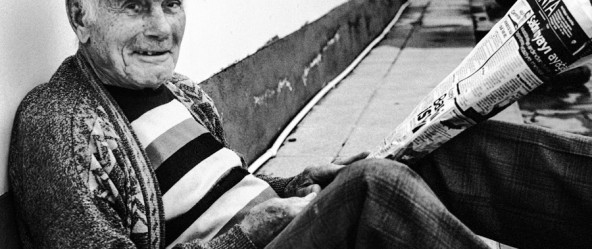
I arrived at noon in the drizzling rain and cried.
I went walking in the morning rain, and still I cried. After almost two weeks in Istanbul I returned to my old life having acquired even more questions, even more curiosity and a lot of new friends but most important of all, the newly gained knowledge that life can be so much more, If only you are willing to let it happen.
Dedicated to Sinan, Wladimir & Aritz
translated by Irene
Istanbul had not really been on my cities-I-want-to-travel-list 2015. For autumn I had actually planned to go to Israel again to visit all the places I had missed on my travels in May. (Please click here to see my Israel portfolio.)
In May, nevertheless, the first little hints could be gleamed that a trip to Istanbul was about to take place. On the return flight from Tel Aviv to Berlin the weather was marvellous, which allowed me to marvel at the great waters from the plane window and I could see and feel the Bosporus and the two seas, Black Sea and the Sea of Marmara. I still remember pressing my nose to the window and from such height perceiving Istanbul’s magnitude, the mosques and the other impressive buildings. … Five months from that day I would return to the city, this time under a depressing rain. Only the ships crossing the sea that could be seen from the plane were able to lighten my mood a little.
Until a few weeks ago a journey to Israel in autumn seemed exactly the right decision. Then however – news of even more battles between Israelis and Palestinians reached us, even more dead, in particular on the Palestinian side, unrest in the historical quarters of Jerusalem. Usually I am not a very fearful person; nevertheless I rather wanted to avoid travelling to a veritable powder keg. I postponed my travelling plans and remembered the Bosporus. It was once again the seas, that had eased my decision making process.
Later I realised, that not only had Istanbul been an alternative travel direction but that she exactly matched my life at that point in time. Studying more closely the religious customs of Islam and the culture of the orient, the upcoming elections, the circumstances for refugees in Turkey, the innumerable conversations, the daily dose of sea and longing, the interchanging of sun, wind and rain (never before had I experienced such intense autumn weathers) all that had appointed Istanbul to be the perfect city for me to spend October 2015.
That there had been attacks on Ankara, taking again oh so many lives, that took place one day prior the day I left from Berlin, I only fully realised when I had arrived in Istanbul. Facebook had been slowed down all over Turkey because no one knew the exact details and backgrounds to the attack. It was very interesting to discover the immense difference between what the German media reported and what the locals told me in reality.
Every day I could see, and smell and feel the sea. And I saw dolphins, really!
When the plane I took landed in Istanbul rain was pouring out of the skies and during that very first day the rain would not stop. It was a Sunday and my birthday. One hour after arriving at the airport, the airport shuttle dropped me of at Taksim Square, where I was immediately surrounded by taxi drivers, who all wanted to know my destination and flooded me with their “best” offers. I chose a cab and was taken through the magnificent city for the very first time by a silent taxi driver; across bridges, through narrow back streets, until we arrived in front of the hostel where I had decided to stay. It took us ages to settle the payment. The driver employing the help of hand and feet finally conveyed the message that he did not have change. I gathered a mixture of Lira and Euros which I handed over. Later that evening the reason for the haggling taxi driver became apparent: as I was now the proud owner of 100-Lira fake note, which he had managed to palm off on me. The taxi drivers of Istanbul and the tourists they manage to outwit / to gazump; there are hundreds of anecdotes on this theme. If you want to get through that kind of encounter safely, better note down the license plate, insist on the taxi meter being switched on and pay the exact amount asked (if possible). All I wished for that Sunday, however, was my bed. I had not slept in two days and become unobservant with fatigue and thus paid the price in the amount of 100 Lira. Nowadays that fake 100-Lira note has become a talisman which I always carry around in my purse.
At the hostel in the historic town of Istanbul I was greeted by Sinan – in perfect German with a hint of a … accent. Over coffee we talked for a little long while. And I realised quite quickly, that this place was going to do me a lot of good. The crazy Turk conquered my heart in a trice and even now that I am back in Germany, we keep writing to each other. It feels like a met a lot of people at that hostel that I now count among my friends. After a quick walk through the surrounding neighbourhood I finally went to bed.
That first night far away from home, celebrating a lonely birthday in this city of rains, I cried myself to sleep. These tears dried pretty soon, as the next morning greeted me with sunshine and the people of Istanbul with big open smiles.
I had decided to travel relatively lightly as far as my photographer’s gear was concerned; for example I had only taken a digital reflex camera body, but not one of my “new” heavy lenses. All my travel-lenses are very well travelled and have seen some years pass by; photography is photography, no automatism. I slowed my regard and took my time in finding the right subjects. I am not at all unhappy about the fact that some of these pictures are not as clear cut as I had gotten used to… and now that I am home again, I do actually use the “old” lenses ever so often because it just feels right.
My second day in Istanbul I spent exclusively at and on the sea. I took several ferries to several destinations and happily drifted along. Later I realised that I had not even brought a map to find my way back to the hostel. It did indeed take me a couple more days to find my way around without getting lost. But that second day, I was lost and excited to see where the winds would take me. I bought an Istanbulcard for the public transport system and just sailed along for a good while; from the European side to the Asian Side and back again. Eventually I went ashore somewhere and went exploring.
And just like that I met Mehmet. At first I had taken pictures of him from further away but something just drew me closer and closer. He had such an air of elegance about him, sitting on the stones and absorbed in his newspaper. I approached him, introduced myself and politely asked whether he spoke English. He introduced his city to me in broken English, smiling the whole time. At the end I handed him my little notebook so that he could jot down his name. Inside I had forgotten a photo strip with my face from one of those photo booths in Berlin. Mehmet asked whether he could keep one of the pictures and I stopped him just in time from tearing the photo strip in half. I offered him the entire set and he asked me to sign my name on the back. Last I saw of Mehmet, was him kissing a photo strip from a German photo both. I smiled.
After that encounter I took a seat at the shore among the many other people and just enjoyed the waves, the sunshine and the feeling of all those souls around me. For a very long time I watched the pidgin ladies who seemed to never tire of feeding the birds. I watched the girl next to me who stared at the water listening to music, the light getting caught in her hair most exquisitely. That day mere chance had brought me to that place by the water and I was grateful for it.
The time in Istanbul felt very different. People are generous with their time. They made time for me. The city moves a lot more slowly than I expected. Waiting was not at all tedious. Little breaks were important; as were encounters. People talked, smoked, watched the sea, eat, drank tee, talked some more using hands and feet and smiled often, very often. The Turkish people are so much more polite than in the streets of my German home town. I was offered a seat every time I took the tram. Every time someone sat next to me I was greeted. This had already baffled me during the flight, when a Turkish couple in their seventies was placed next to me. They greeted me at the beginning of the flight and said good bye at the end – and in between they supplied me with sweets.
The next day was cold and rainy. Wearing a headscarf and cardigan ready to fight the storm, I started a tour of the Bosporus in spite of the weather. Autumn in Istanbul is rather mad as far as the weather is concerned; from one day to the next it can change from the heat and sun of summer that can still cause sunburn, to cold and uncomfortable floods of autumn rain. However, my heart went out to Istanbul for that very reason, for its often whimsical and very changeable moods.
I bought some roasted chestnuts from a stall, took up position on some boat and enjoyed the wind trying to blow me away. In the evening I watched the fisherman of Eminönü, decoratively casting their fishing rods from the Galata Bridge in their raincoats. It was almost dark and the fish were biting.
To me Istanbul is “the city of men and cats”. Everywhere both can be found aplenty. Men can be seen everywhere with mugs of tea and cigarettes, or bathing their feet before entering mosque, or fishing from bridges and shores; intermingling with the gangs of cats which are usually either on their way to having food or to finding more food.
Animals that can be found on the street (zoo) of Istanbul are: cats, dogs, seagulls, fish, pidgins, jellyfish, storks, sheep and many more. My friend Sinan told me, that the municipal authorities of Istanbul have special clerks who care for the health and wellbeing of our four-legged friends (dogs & cats). They are in charge of ensuring that all animals are chipped, vaccinated and catalogued. At different parts of the city cat stations and water dispensers have been put up. And, there are some animal shelters.
Cats are the great love of the city and the city is the great love of the cats, both is accurate. Some cats are almost unbelievably beautiful, others are as ugly as the night is dark, many are young, and almost all are slender and sleek. Generally I am not a friend of animals, that is to say I am not a friend of pets. In Istanbul, however, I did start enjoying the company of cats; many hours I spent with them and oftentimes waiting became so much nicer because of them. The people of Istanbul take great care of their city cats; so many of these felines are given eloquent names, fresh meat and fish is regularly laid out for them, on sidewalks or murals cat treats are placed and snacks or sandwiches are shared with them. The people of Istanbul love their city cats they do not, however invite them into their houses. In Istanbul the houses are for man, the streets are for the cats. And it feels absolutely brilliant that way,
The street dogs of Istanbul are mostly big beast, which can be found sunbathing on the big plazas and on mosque stairs. Tourists are the ones who pay attention to them. The dog is seen as impure in Islamic legal tradition – everything that has been touched by a dogs tongue for example has to be washed seven times before considered clean again. Usually a Muslim would not keep a dog as a pet.
There are the following Hadiths (collections of the reports claiming to quote what the prophet Muhammad said verbatim on any matter, as well as quotes of any apostles accepted by Muhammad) concerning dogs: Narrated Abu Talha: „I heard Allah’s Apostle saying; „Angels (of Mercy) do not enter a house wherein there is a dog or a picture of a living creature (a human being or an animal).“ – From Bukhari Vol. 4, #448. Al-Bukhaari (2145) narrated that Abu Hurayrah (may Allaah be pleased with him) said: The Messenger of Allaah (peace and blessings of Allaah be upon him) said: „Whoever keeps a dog, a qiraat from his good deeds will be deducted every day, except a dog for farming or herding livestock.“ Muslim (2978) narrated from Abu Hurayrah (may Allaah be pleased with him) that the Messenger of Allaah (peace and blessings of Allaah be upon him) said: „Whoever keeps a dog that is not a dog for hunting, herding livestock or farming, two qiraats will be deducted from his reward each day.“ (Source Material: Wikipedia, selected quotes)
The children of Istanbul have great fun with the phlegmatic animals. Some whistle until they are disorientated enough to look for shelter with the tourists. And, of course, these dogs – like the many other animals – are a favourite subject of all photographers.
The men of Istanbul I found to be very polite and attentive. Note, that I had no trouble whatsoever as a woman traveling alone, quite the opposite was true. It was very enjoyable to be treated as attentively, I was offered seats on tram and ferry, freely given cups of coffee or tea and invited to chats along the way. Never did I feel molested or disrespected. The women of Istanbul I did meet very little, it’s true. Until now, I hadn’t really thought about that.
Fatma I met in front of the New Mosque (Yeni Mosque). She sat next to me to finish her Dürem and have a smoke. Fatma was 78 years of age and can neither read nor write (passers-by helped our chat with the occasional translation). Here I discovered that in Istanbul as in the rest of Turkey a lot of people over the age of 70 are illiterate. Some consider the reason for this high rate of illiteracy to be the set of language reforms of 1928 implemented by General Attatürk. Part of this reform was the substitution of the Arabic script with the Latin alphabet. During the transitional period unfortunately, for a lot of different reasons, a lot of people were left out of the educational implementation.
Who was General Attatürk, Some of you might ask.
He was as indicated a general, a social reformer and the founding father of the Turkish Republic.
(29th of October 1923).
Atatürk’s Reforms were a series of political, legal, cultural, social, and economic policy changes that were designed to convert the new Republic of Turkey into a secular, modern nation-state. Reforms began with the modernization of the constitution, including enacting the new Constitution of 1924 which replaced the Constitution of 1921, and the adaptation of European laws and jurisprudence to the needs of the new republic. This was followed by a thorough secularization and modernization of the administration, with particular focus on the education system. Central to these reforms were the belief that Turkish society would have to Westernize itself both politically and culturally in order to modernize. Political reforms involved a number of fundamental institutional changes that brought end of many traditions, and followed a carefully planned program to unravel the complex system that had developed over the centuries.
It is very exciting to research which other European countries also practise the separation of church and state, which are not as many as one would think. Among them can be found: France, Portugal, Czech Republic, Kosovo – not Germany, mind you.
The reforms of the 1920s and 1930s saw a movement of the Turkish laws towards its European neighbours. In 1926 a new civil code modelled after the Swiss civil code was implemented: introducing monogamous marriage, divorce rights, and equal rights for men and women. This was followed by the introduction of a penal law modelled after the Italian penal code and a new commercial law modelled after the German code. On December 11th 1934, women were granted full political rights to vote and be elected. In 1925 the International time and calendar system (Gregorian calendar, time zone) were adapted as well as a change of headgear and dress codes. Ten years later Sunday took the place of Friday as weekly holiday, the metric system was introduced and the Turkish academic standard language was declared official government language (as opposed to the common language that had ruled before). The end of the reforms saw the introduction of the Family Name Law in 1934, requiring all citizens of Turkey to adopt the use of surnames. (Source Materials: Wikipedia, summary.)
The reforms were accepted and implemented by the Turkish middle class. The people in rural areas stayed on the more traditional Islamic paths. During the entire journey I only met Turkish people who very much adored Atatürk. His picture can be found in so many places in Istanbul, most often right next to the Turkish flag. Nevertheless, the recent elections of November 1st 2015 have shown a new trend among the Turkish people back to the more traditional and seemingly less free, more dogmatic and conservative ways. Maybe not everyone likes to handle freedom? Maybe some traditions are wired too deeply into the socio-cultural structures? Maybe power can only be combined with dependence?
I did fall in love with the city and the country. I want to see more of both in future. The recent political developments which had their beginnings in 2013 with the upheavals at Taksim Square, unsettle and worry many of my new Turkish acquaintances.
Eyüp
My one day journey in Eyüp felt all light, historical and very human. The Islamic architecture of the northern part of the district Golden Horn can be travelled to most “scenically” by ferry. The view from the Loti-hills remains famous despite the many many Selfie-Tourists.
When I went ashore, I was completely engulfed by the history and the rural charm of this part of the city. Eyüp is one of the oldest municipalities of Istanbul. Everywhere history can almost be smelled, be it on the graveyard or on the plaza in front of the Eyüp Sultan Mosque (I took the cable car up the Cafe Piyer Loti hill and walked downhill across the graveyard to the mosque). I had seen a lot of mosques, including the famous Sultan Ahmed Mosque as my hostel was around the corner, but until that point never had the desire to actually visit one of them.
That day my sentiment had changed. Maybe it was also due to my conversation with Ahmet, sitting in front of the mosque reading in the Koran, who approached me. He talked to me about his faith and explained some of the Islamic rites, and also about his life in general. My initial uncertainty passed. I put on the hijab that I was always carrying with me and took the narrow staircase up to the women’s room of prayer. Instantly I was taken in by the stunning light, the colourful variety of women and the overall atmosphere. People were even talking on their mobile phones; children were jumping and dancing about. That was not what I had expected. I felt happy.
Earlier that day, during my walk across the graveyard I read all the inscriptions on the wall surrounding the graveyard. One carried the following words:
Herkes GÜLÜN, GECENIN ve DOSTUN
Güzelini ister.
Önemli olan gülü DIKENIYLE,
Geceyi GIZEMIYLE,
Dostu tüm DERDIYLE,
sevebilmektir …
Everybody wants the better of
ROSE, NIGHT and FRIEND,
The important thing is
To love the rose with its THORN,
The night with its MYSTERY.
Later that day, sitting in front of the mosque, happily munching those fried potato slices on wooden sticks and once again people watching, I had a „modern“ encounter at this historical spot on earth, that still makes me smile today. Two young women in their early twenties were sitting next to me on the bench. Both were wearing a hijab. One of them then started breast feeding her newborn, in a public place, in front of the mosque, everything just covered by a very thin piece of cloth. I just had to ask them whether that was regular practice and both started laughing and answered: “Oh no!”. I went back to the ferry and met the three bathing boys again. It was early evening and rather chilly. Unfazed they were still jumping around in the fountain like happy little wild animals.
In the neighbourhood
The Blue Mosque (Sultan-Ahmed-Mosque), the Hagia Sophia, the Topkapi Palace, the Grand Bazaar – all the great sights of Istanbul I could reach easily on foot from my place of residence. Sometimes I walked on by, observed tourists or the natives who worked there. I never actually visited any of them, however. At that moment I was just not interested. After the Mosque in Eyüp I went to visit one other small mosque in the neighbourhood, and found it sufficing. It was a lot more interesting to enjoy freshly made orange juice, on the wonderful roof terrace of a restaurant. As it was mostly empty until noon, I usually had the view and the sun for myself.
Balat and Fener
The streets are colourful, so are the houses, everywhere washing is hanging out to dry, children are playing on the street, cats and birds are immersed in little games. Balat. There I met two boys playing. They were quite cheeky, indeed. I enjoyed that. That part of the city I liked a lot.
Almost no tourists, and thus most of the attention was on me. For example when I met a group of young men who wanted to know where I was from and as soon as I had answered everybody started speaking German. They were Roma. Most of them had already been to Berlin, working, living, making music, I do not recall now. Everyone got busy and all of a sudden there were musicians surrounding me, playing for me. Now that’s what I call nice. Generally the place was filled with so much humanness; so many doors were open, so many people invited me in. That day I talked with the help of hand and feet, so that I was utterly exhausted in the evening. That was my favourite place in all Istanbul, beside all the wonderful water worlds.
In Balat one can find a very beautiful café, with very little seats and the best coffee in all Istanbul. At first only the pretty girl in the colourful clothes was there to serve coffee, later we were joined by her father who is the owner of this picturesque treasure chest. The girl and her father only spoke Turkish. Since they wanted to know more about me and my travels, the girl called her uncle in Germany to be our interpreter via Skype. Father and daughter sat opposite me, their smart phone as a life line to the interpreting relative in Germany, on the table between us. It turned out to be a lot of fun. Afterwards I took a very long walk through the streets of Balat until I reached the next district: Fener.
Fener is how I had always imagined Paris to be, before I went to Paris for the first time. The whole place is full of sentimental little Cafés, music from record players, the walls covered on bric-a-brac from times long past, cats sitting or sleeping on tables and seats. A bit like travelling through time. I felt out of place and at ease at the same time. I discovered a flea market store and was there discovered by a leather bag and a folkloric skirt.
The little encounters
I met a lot of souls along the way: the neighbour from the broken wood house, the window lady with the dog, the smoking old woman in front of the pink house, children, so many children. I dearly recall the six sisters from the neighbourhood. They sang, they played games on the street on Sunday and were between two and ten years of age. They all introduced themselves to me, but unfortunately I cannot recall a single name. They loved to have their pictures taken by me; they conveyed a feeling of freedom and lightness.
Büyükada (Princes‘ Islands)
Büyükada is the largest among the Princes‘ Islands, located on the Asian side of the city. In the olden days these islands were used as places of exile (e.g. for Leo Trotzki). The people of Istanbul would travel there for recreational purposes, now they have become a magnet for tourists. Taking the ferry it takes just under an hour to reach the Princes‘ Islands, four of which are inhabited. On Büyükada one can rent a bike or a coach. It can also be very exciting to go exploring on foot and to take a look behind the touristy façades. I wandered aimlessly without neither plan nor agenda, with the only goal to get away from the overcrowded port. On this late day in October the temperatures were summery hot and I enjoyed the holiday resort atmosphere in the back roads of the island. I was awed by the beauty of the houses and the large colourful gardens. The local children had just finished their school day and were running through the streets. From time to time a coach would pass me by.
Eventually I found myself standing on a huge plaza, among dozens of coaches, neighing horses and the rather bestial smell that goes with it. The horses’ parking lot. I stayed there for a good while and studied the horse shoeing and the other “business” behind the “nice” coach rides for the tourists.
On the return ride I stood at the ferry rail, watching seagulls that were being fed by tourists. At that point I was approached by Nooral from Kuwait. She told me that she had seen me taking pictures on the island. At first our conversation circled around mere small-talk. She told me that she worked as a lawyer. The wind turned and all of a sudden she asked me what my faith was. I answered her that I did not believe in God. And through the darkness that had now set around us she looked at me and told me that she always felt like crying when she met an “unbeliever”. I responded that she should feel free to start crying any time if she wanted. She laughed. Then she started to tell me about Islam and I did indeed listen carefully. At one point she put a smart phone to my ear, someone was reading or singing from the Koran. Of course I understood nothing of it, nevertheless I let it touch me. In front of me the half-moon of the Turkish flag was swaying in the wind, in the sky the actual moon was shining, the wind was bellowing, the waves were breaking noisily around the ship and I felt that this was a very special moment, not in a spiritual way, the universe just seemed harmonious at that moment.
The Host Istanbul
This hostel which gives a temporary home to so many far travelled, inspired people has turned my journey into an unforgettable experience; for example Sinan, the Turkish guy who was born and raised in the south of Germany and fluently speaks several languages, who – guided by the Turkish part of his soul – talks about religion, politics, women and the world, enjoys good music and told me so many important things during so many days.
Or take Wladimir, the rather enlightened Russian gentleman from Wladiwostok, who liked Eurodance. And I really thought, that was a stupid cliché about Russians; but no, here was a Russian who really liked Eurodance.
I was able to watch Wladimir dancing to it, as well as to Dieter Bohlen (don’t ask) and Modern Talking. Those evenings at the Host, when we had beer and wine, talking in so many different languages, were the greatest pleasure. Wladimir was a former teacher who had stranded in Istanbul, while searching for a new place to spend his life. He has earned a permanent place in my heart. There was so much of that beautiful Russian melancholy in his soul. We talked a lot about our respective pasts in Russia and the former GDR. He talked about his home country and told me about his travels to Asia. Thinking of his often involuntarily funny tales still makes me smile to this day.
Then there was Ilona. We almost never talked as my Russian is just not good enough for any kind of a decent conversation. One day though, she showed me a picture of a Russian duchess on her smart phone and told me with a big smile on her face that she thought I looked like the duchess or the duchess looked like me. It was uncannily true.
I got to meet Ismail, a Turkish guide. He told me about his country and his work. A charming and funny little encounter which was far too short; as was meeting the young architect, Tatjana, who is soon going to live in St. Petersburg, where I will hopefully be able to see her again.
Some traveling companions from Kazakhstan arrived during the last days of my stay, and brought a new wave of entertainment with them. They talked about their home and showed me what their money looked like. The bank notes were especially interesting as their layout is vertical rather than horizontal; and they are rather beautifully coloured. One of the notes has now become a permanent companion to my lucky fake 100-Lira note.
This list of wonderful encounters I could continue for quite a bit. But let it be enough for now. Oh, no, hang on: There was Aritz, the Basque. He had just travelled from Iran to Istanbul and had planned to stay for just one night. He actually stayed for five or six. Aritz allowed me to see the world through a new set of eyes, or rather, a new set of glasses. We talked a lot; about the world in general, about religion, about war, about travelling, about the stories of our lives. Now that I have returned to “my” world, I dearly miss those conversations that opened the doors to so many magical places and had me grasp so many connections. I really enjoyed our time. The evenings we spent together with Wladimir and Sinan were and will always be something very special.
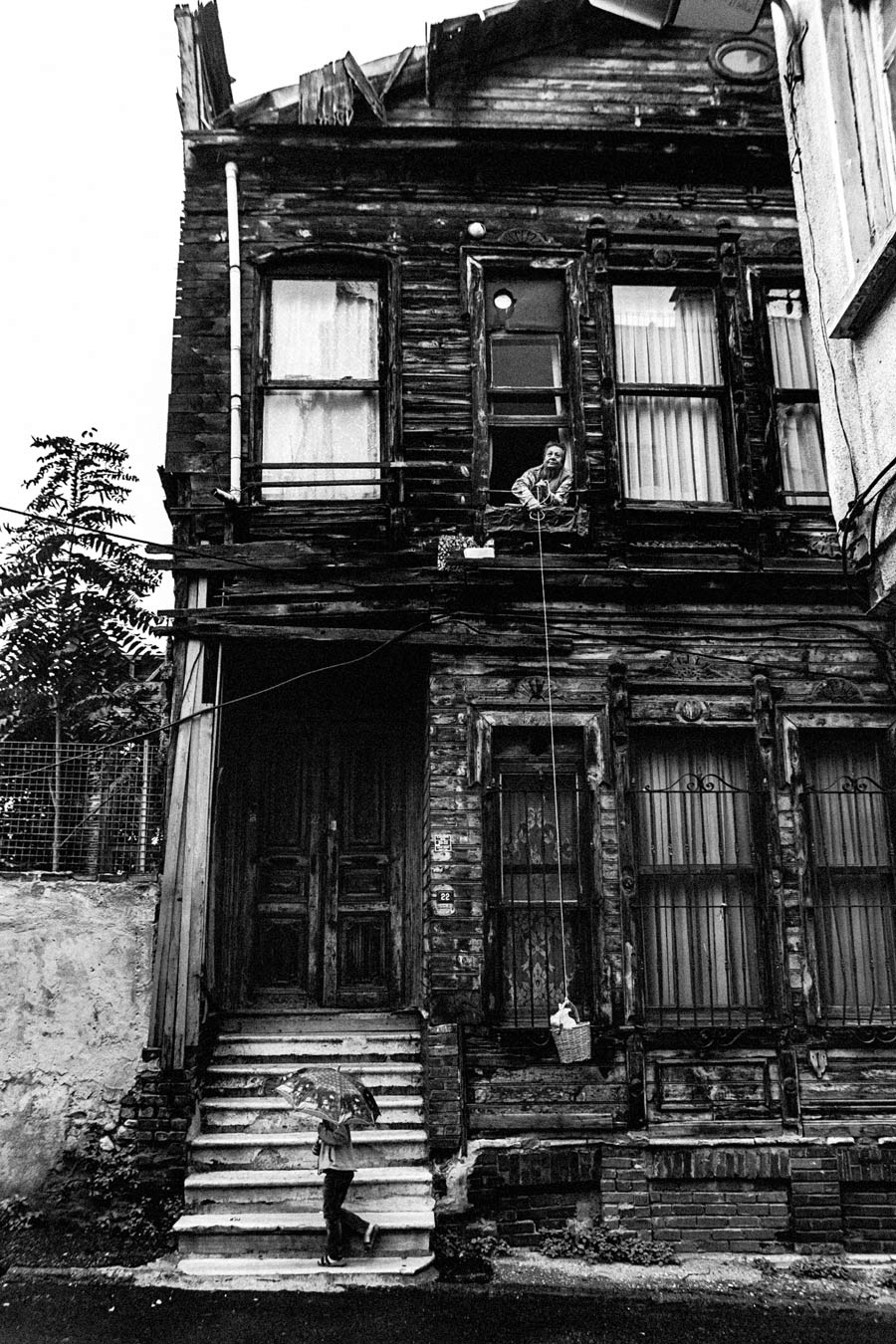
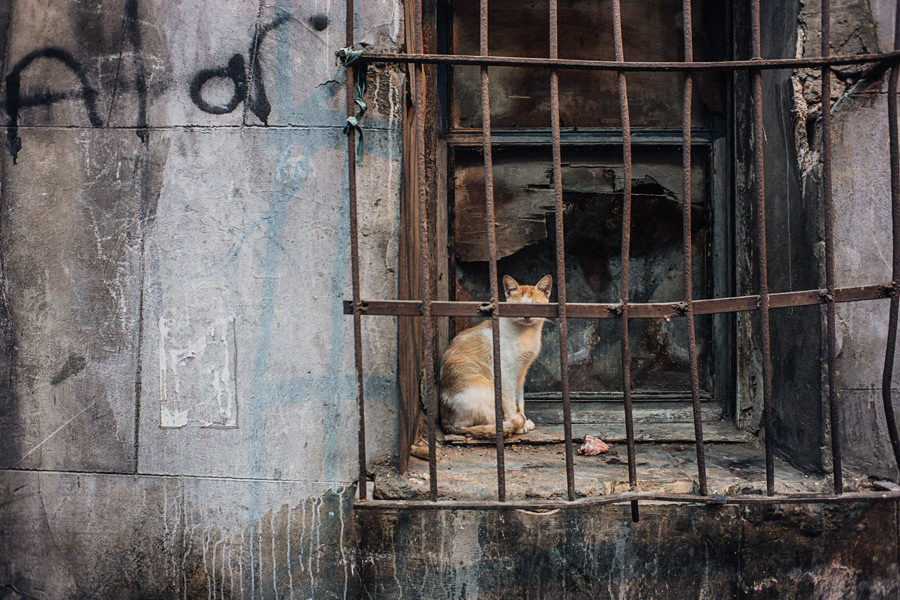
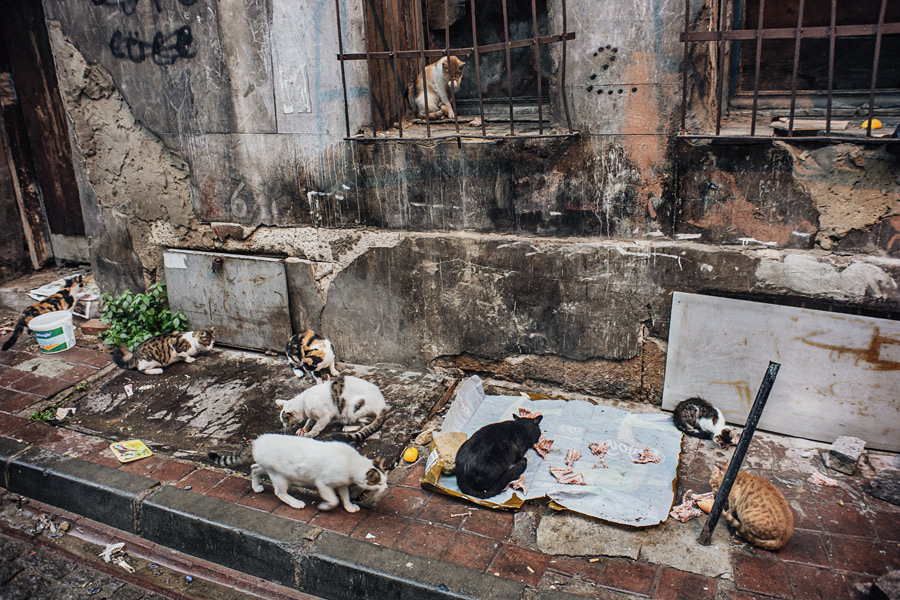
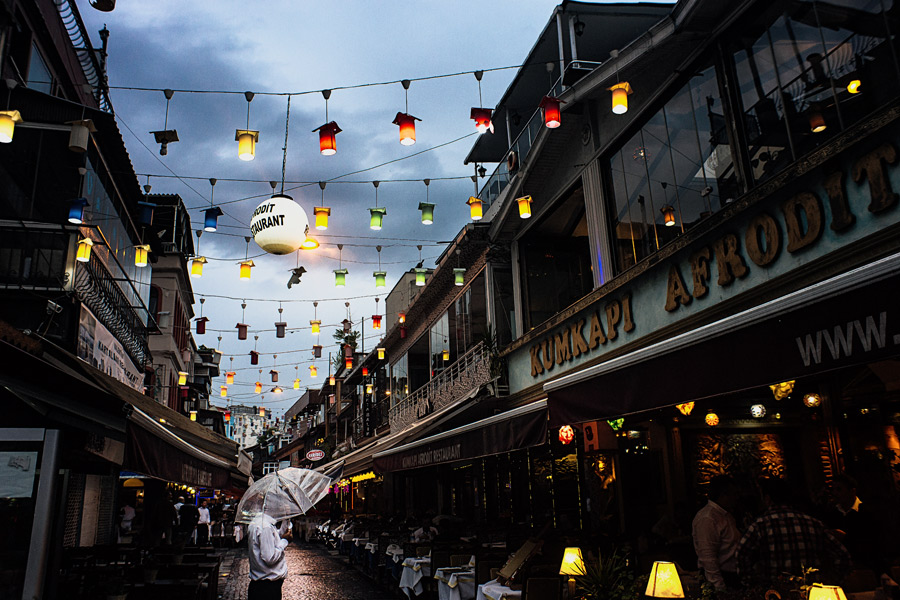
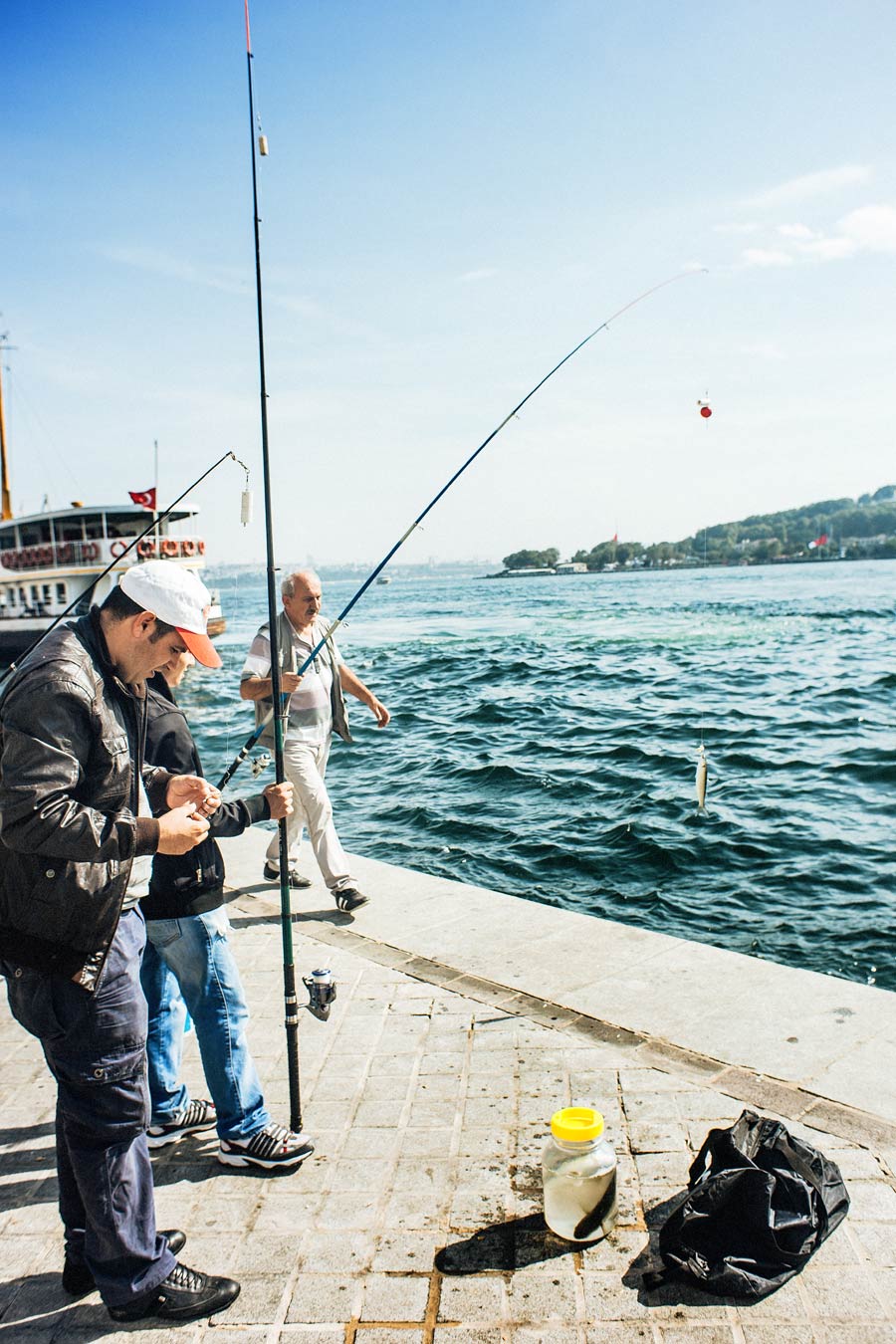
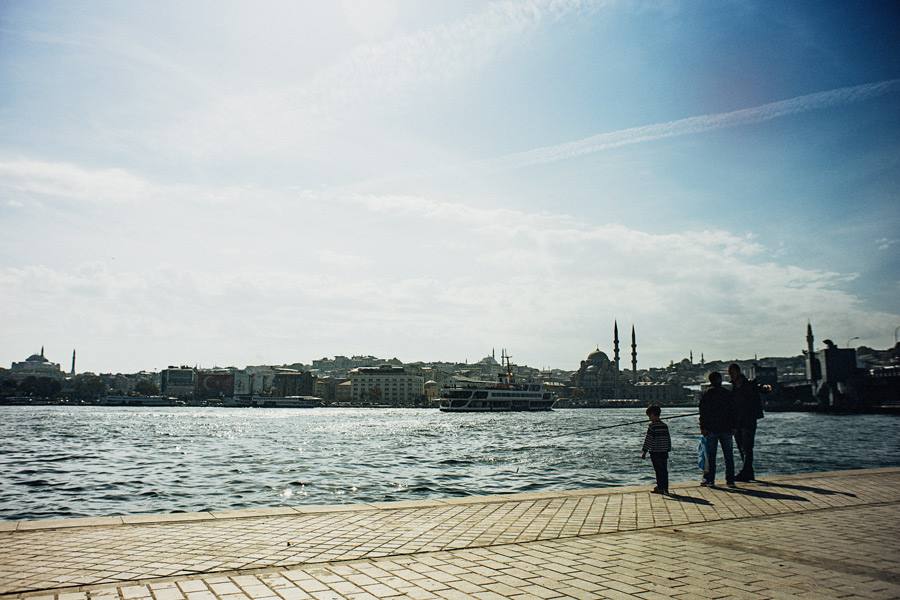
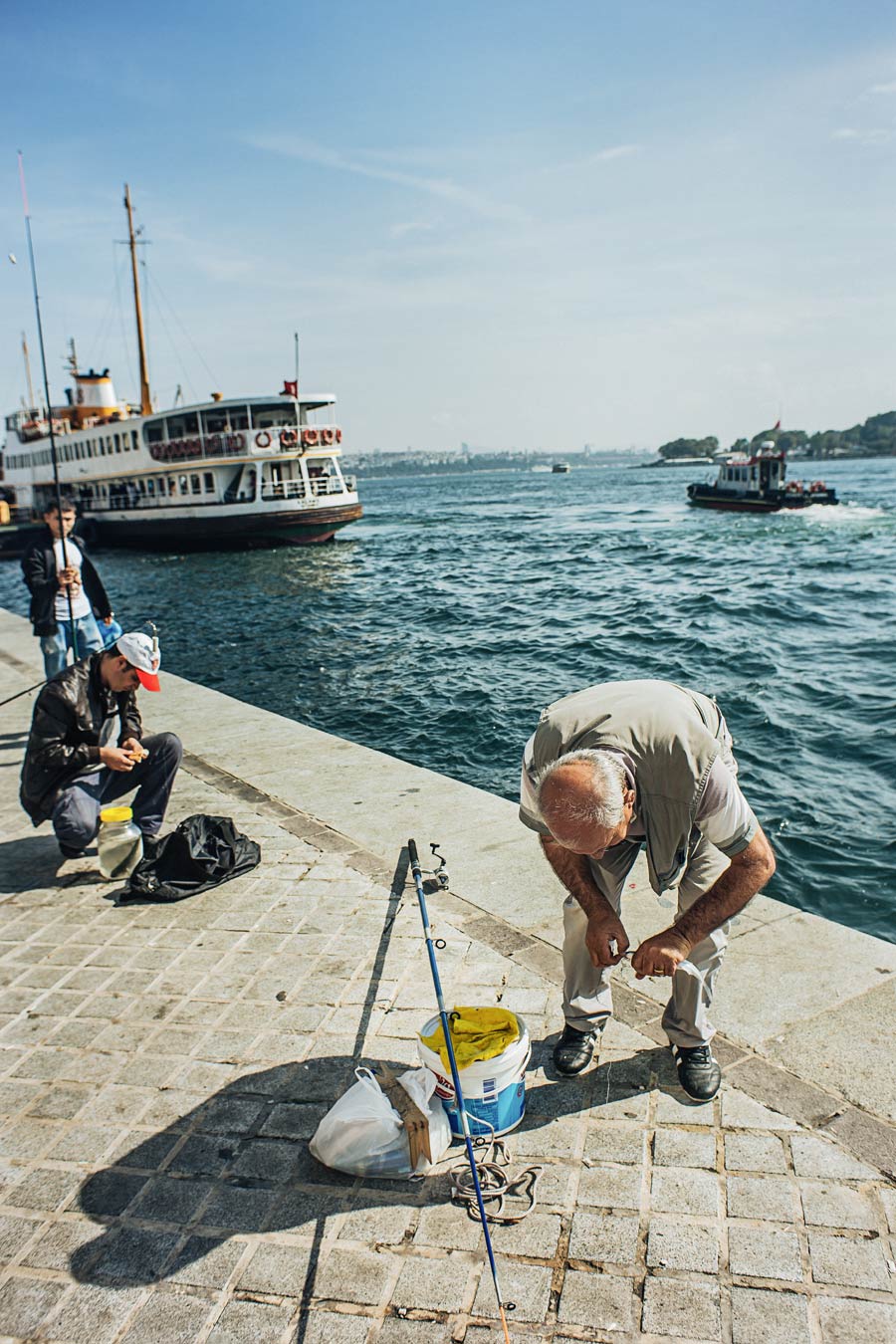
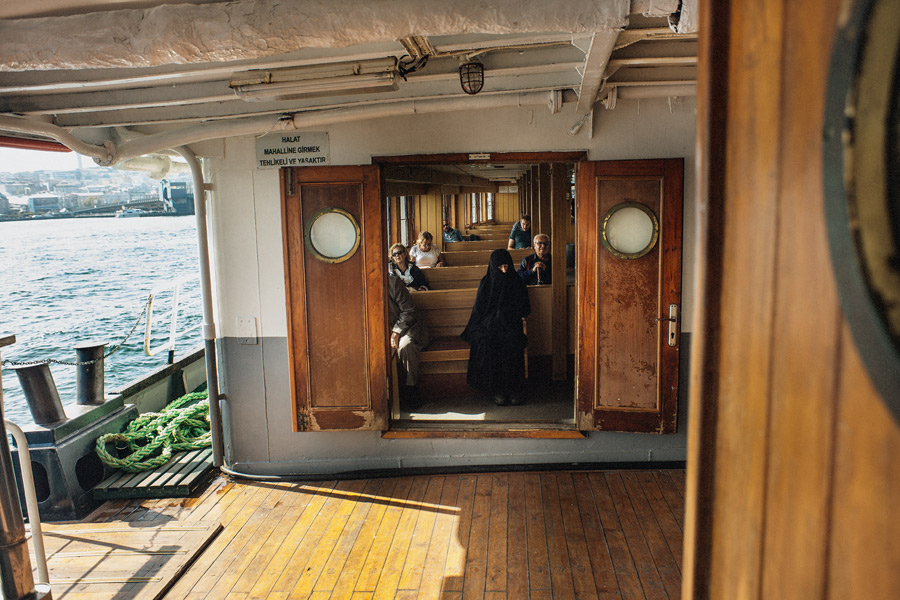
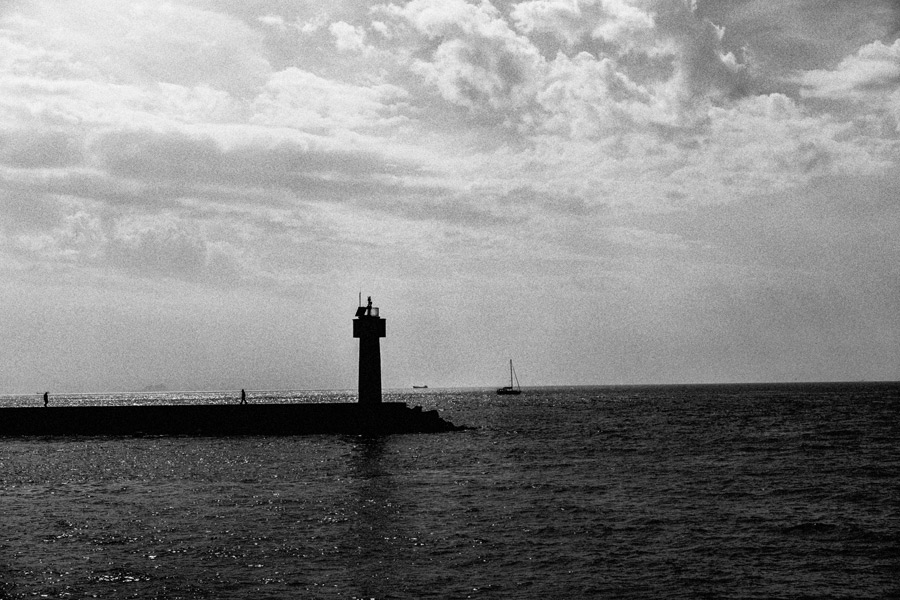
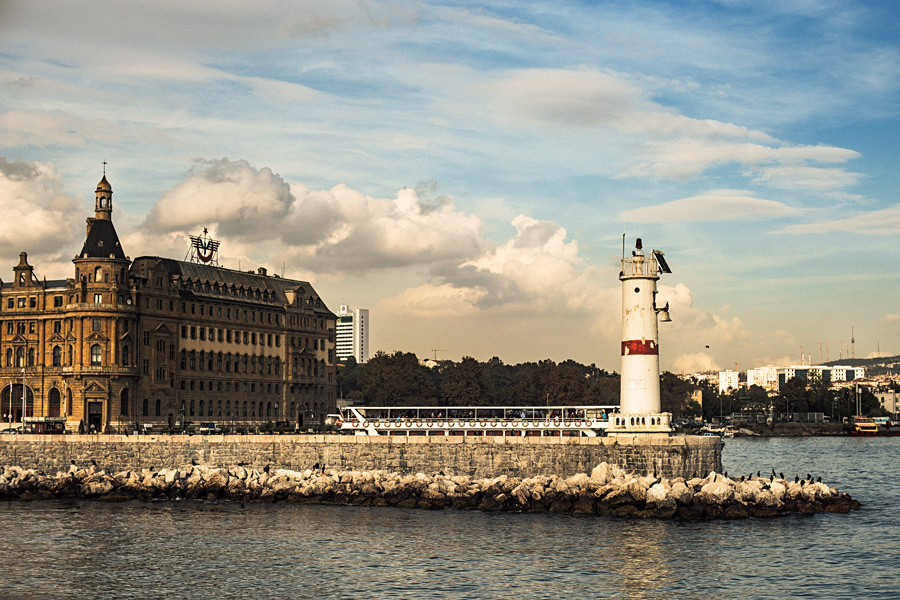
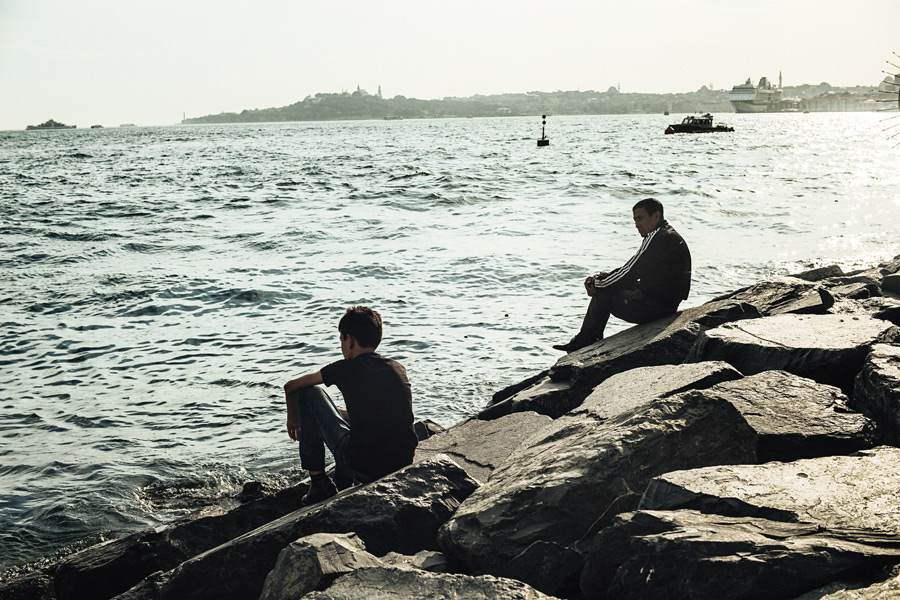
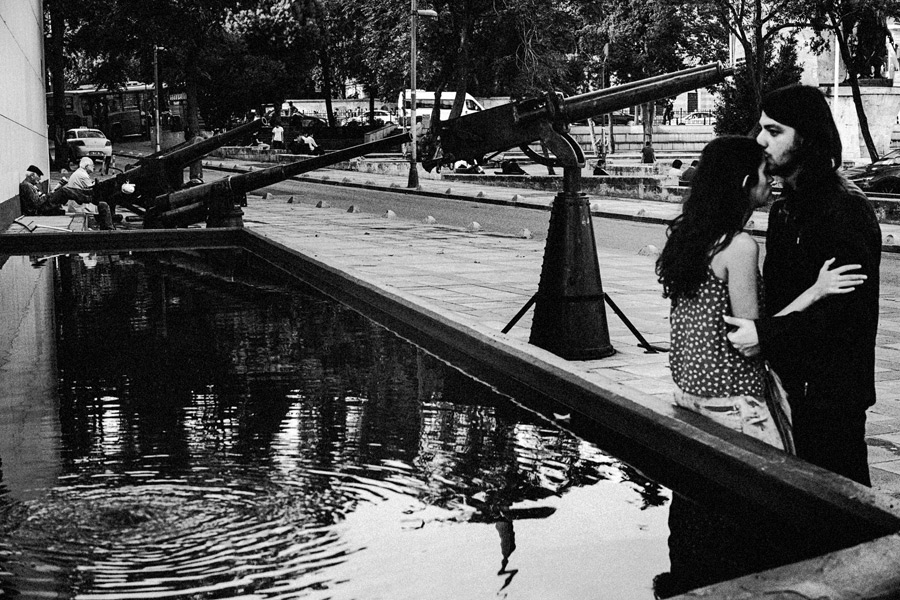
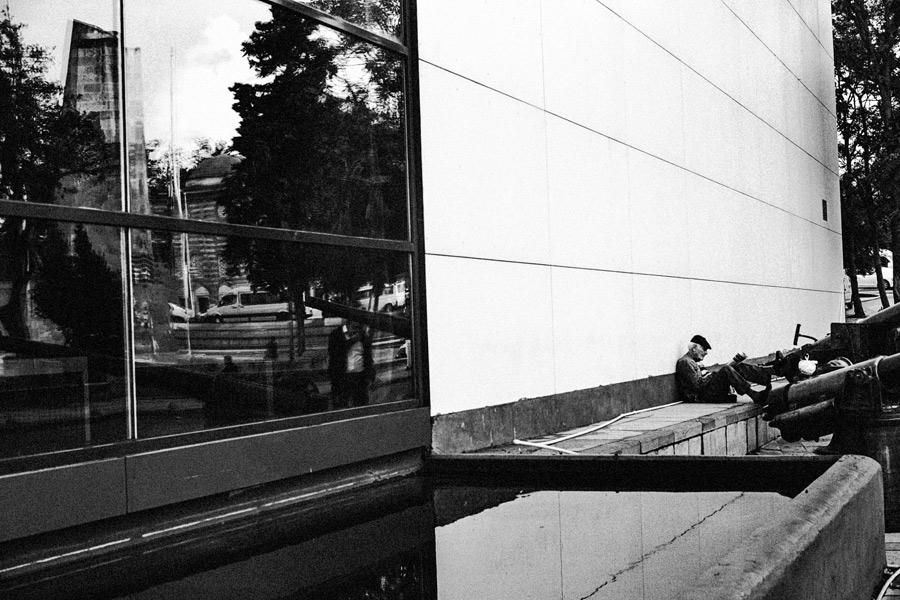
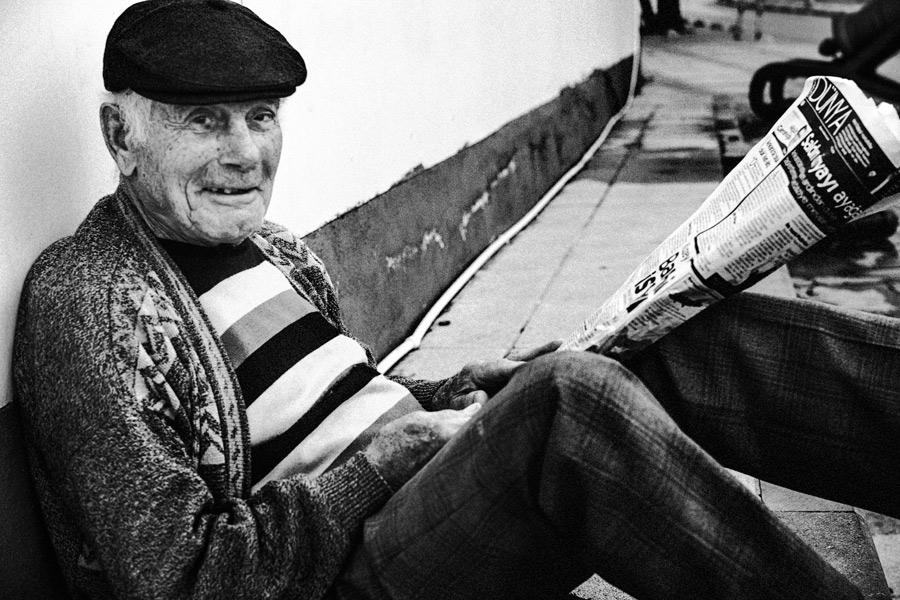
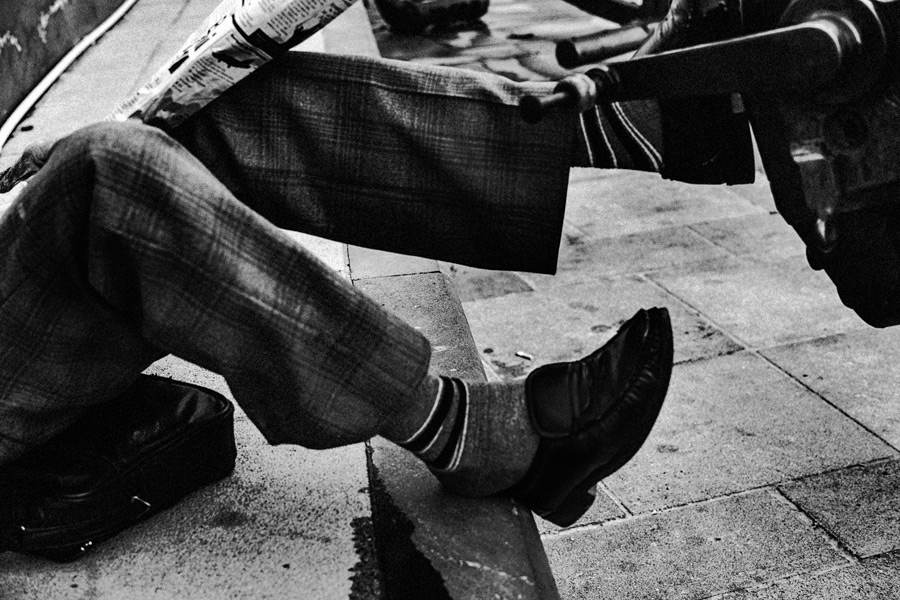
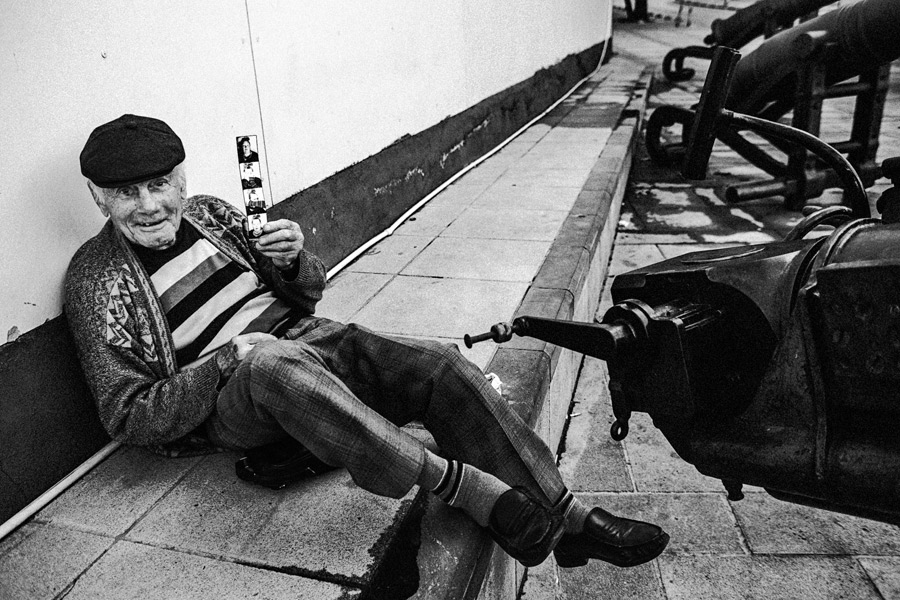
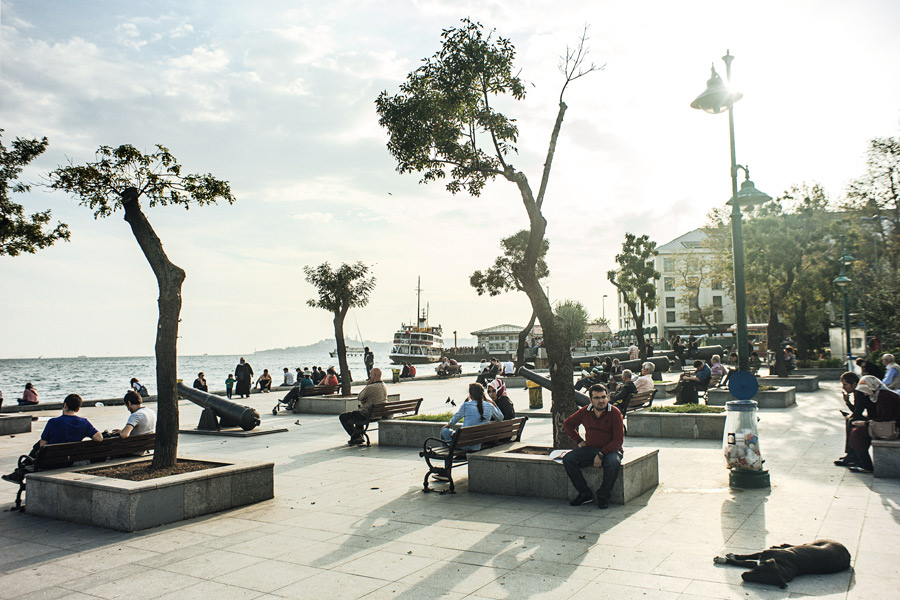
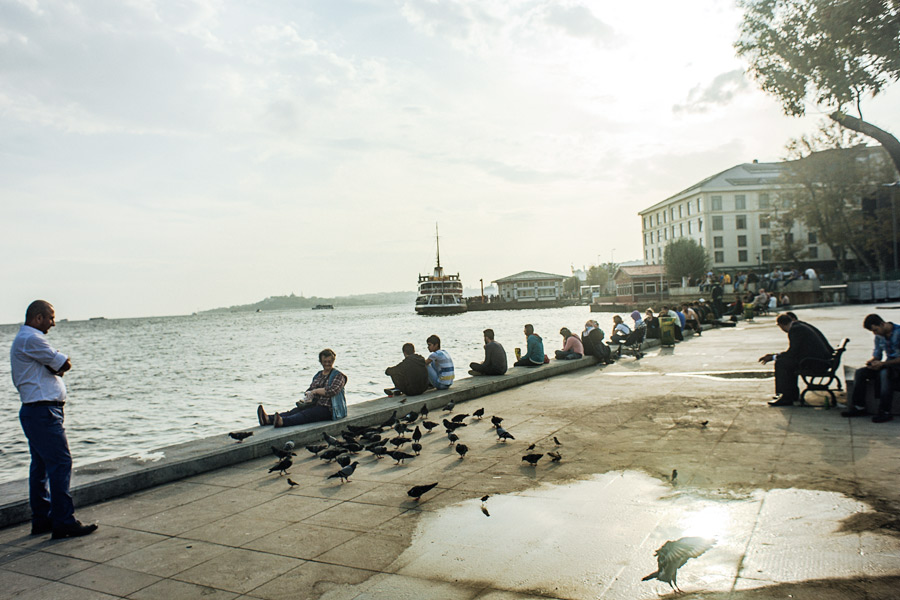
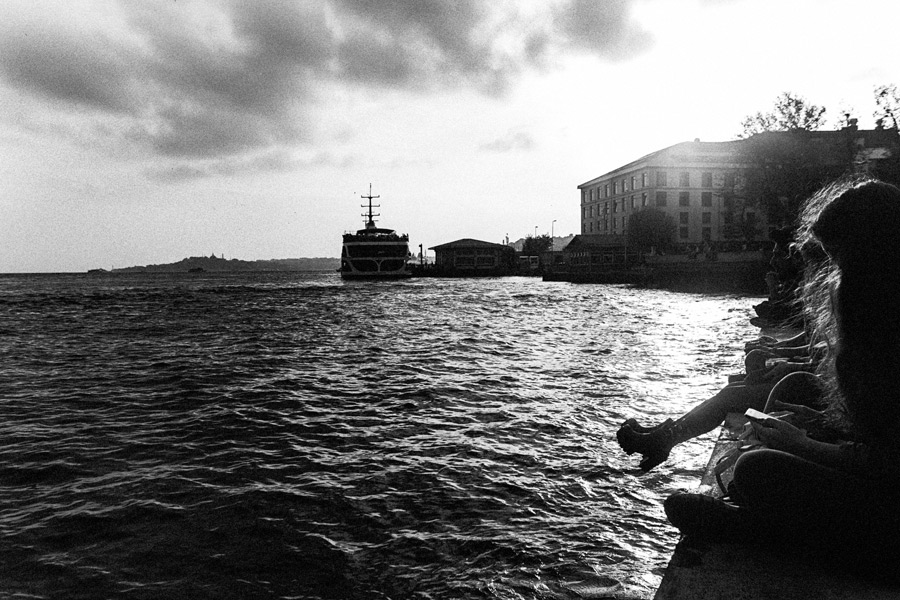
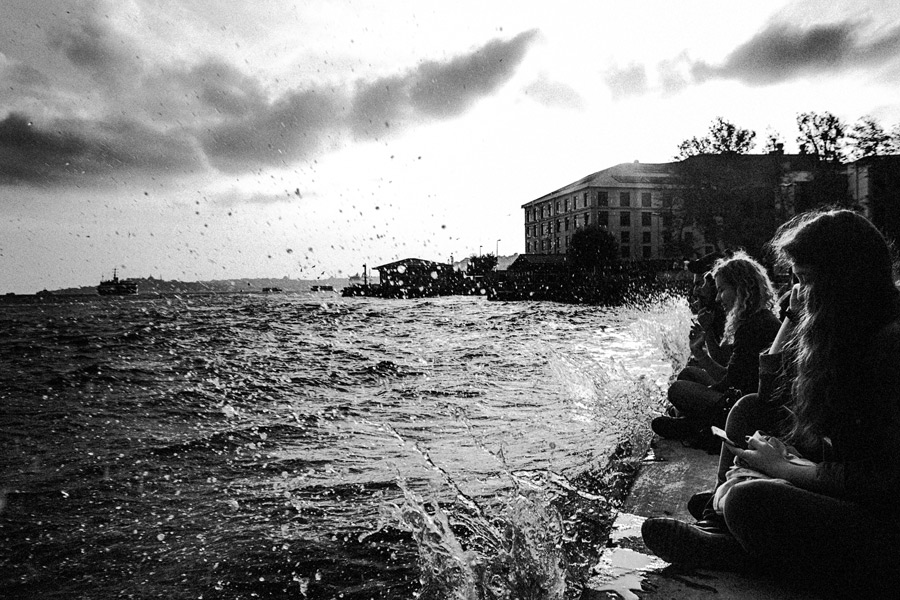
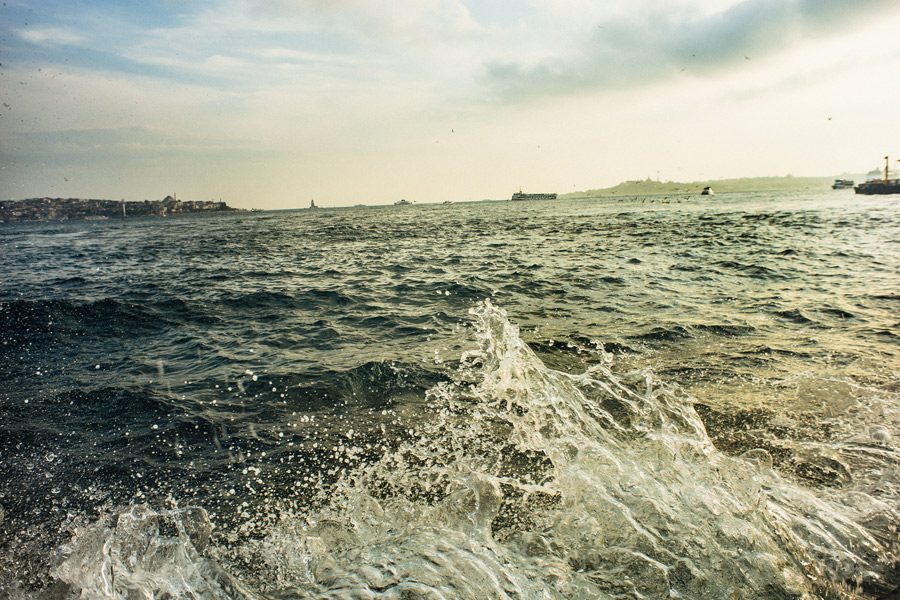
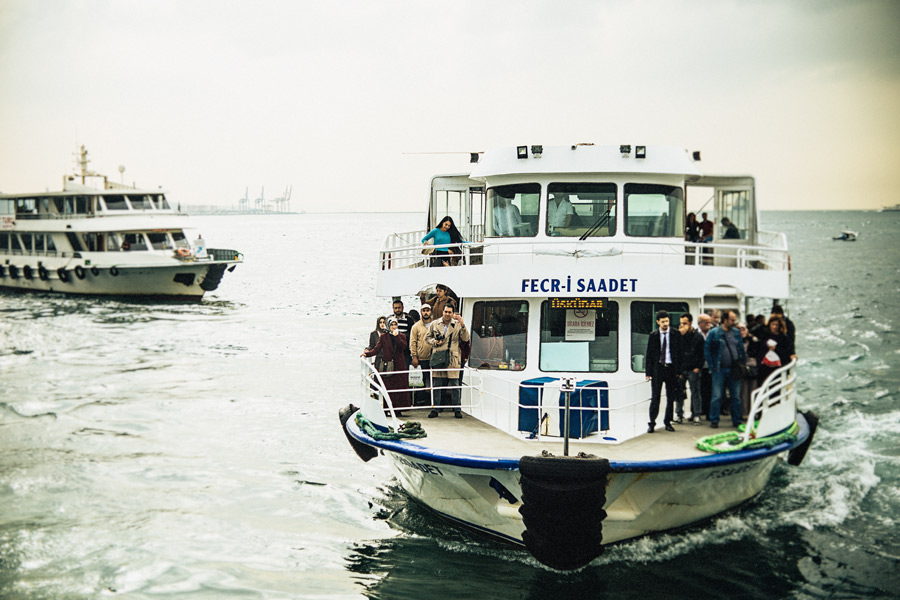
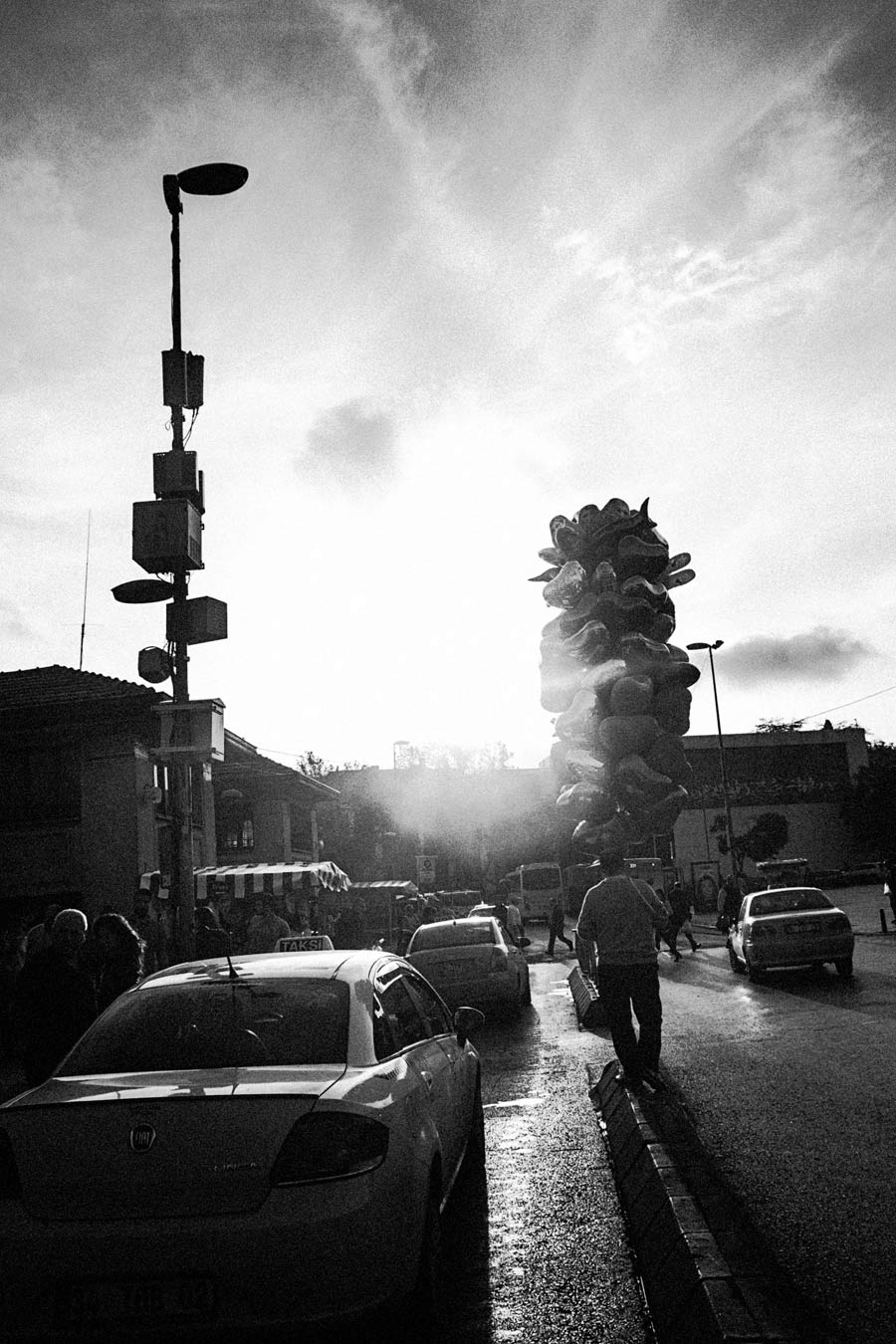
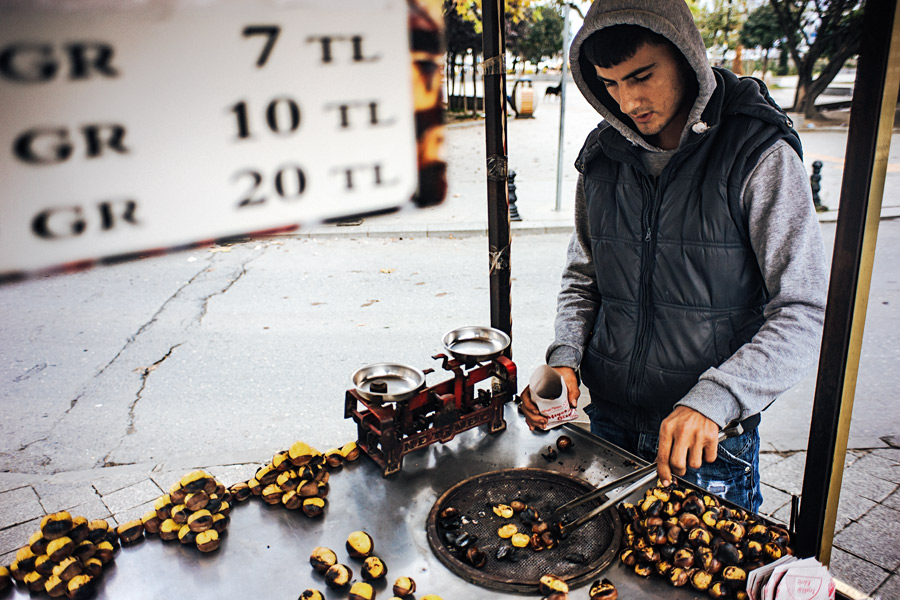
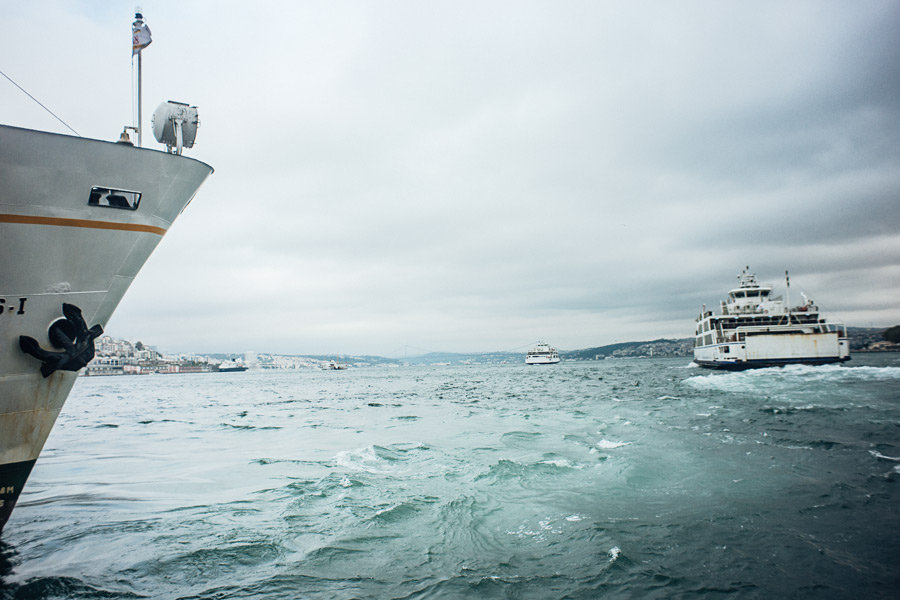
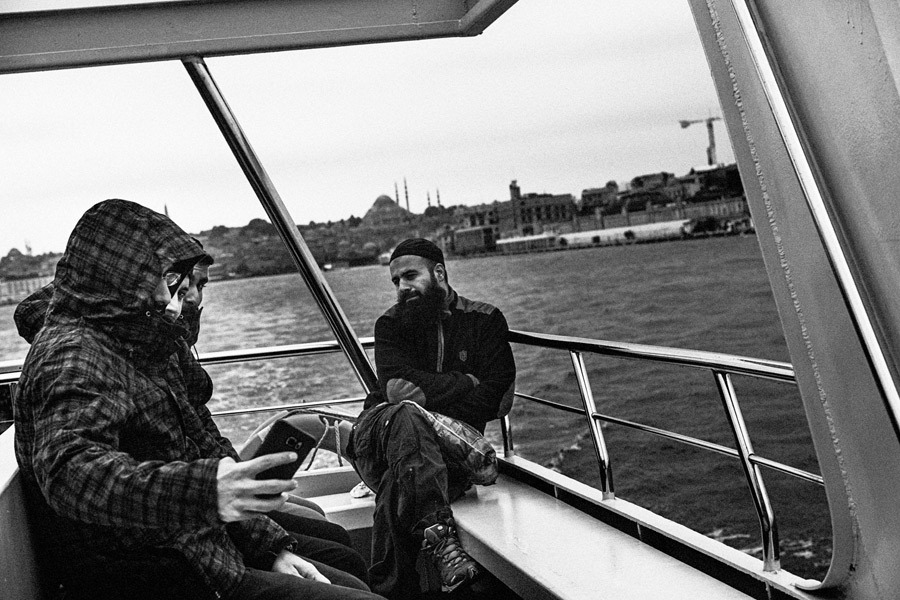
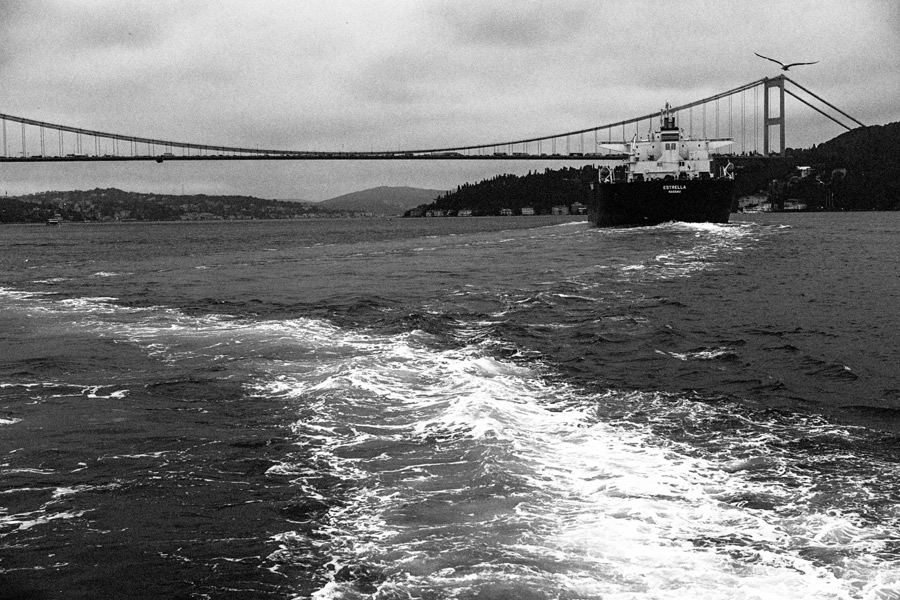
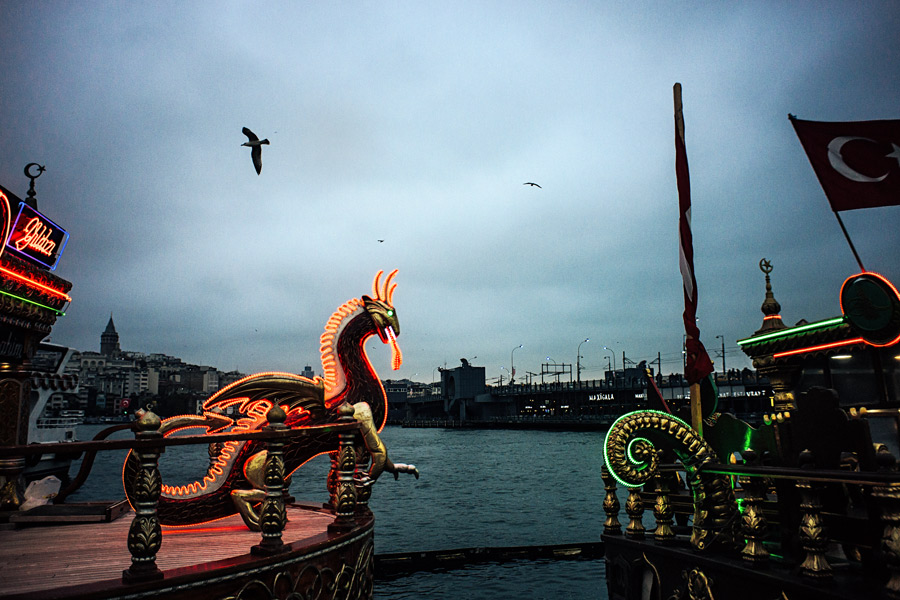
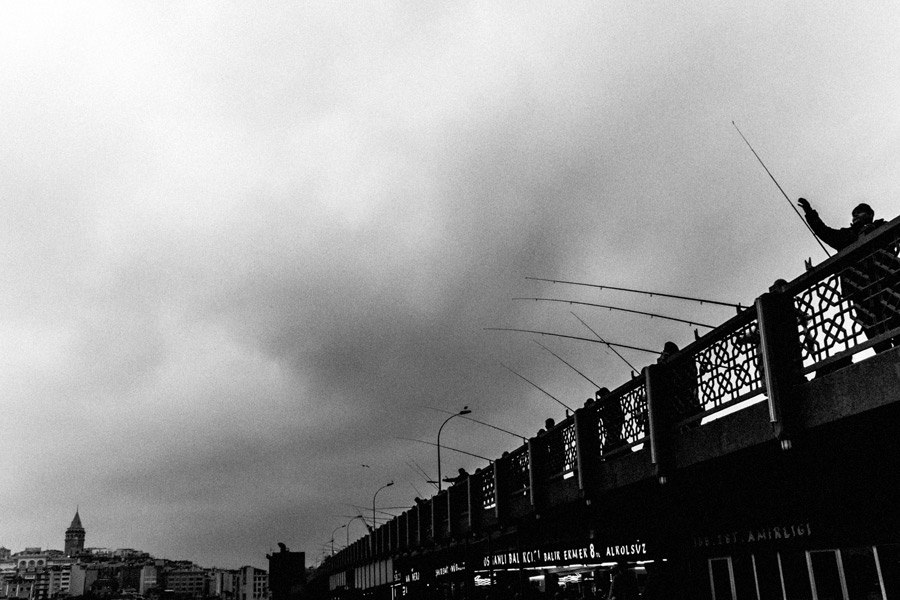
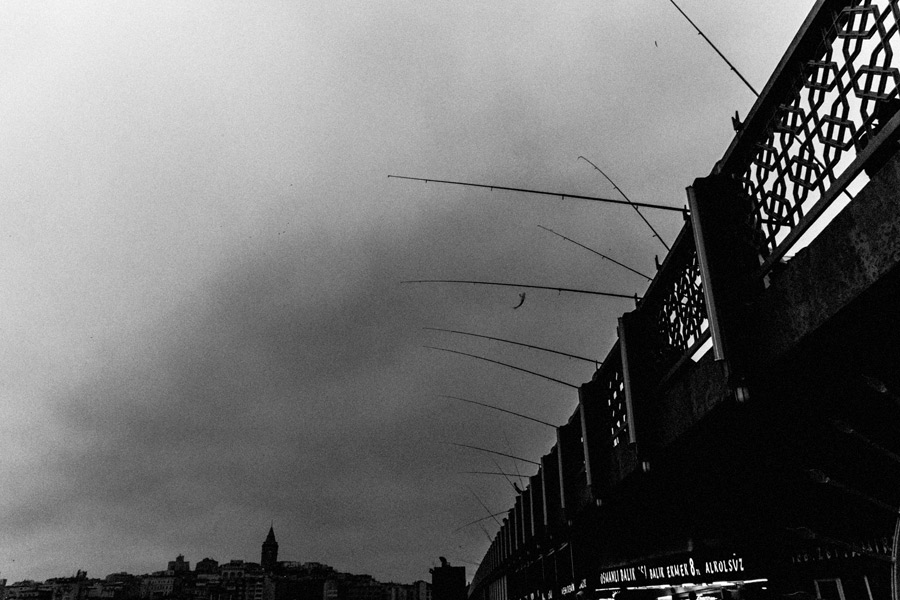
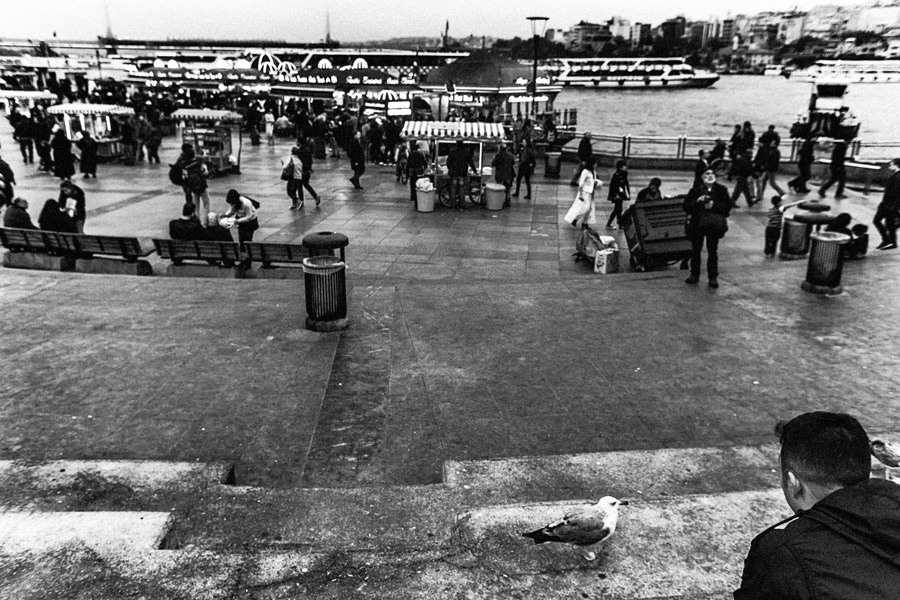
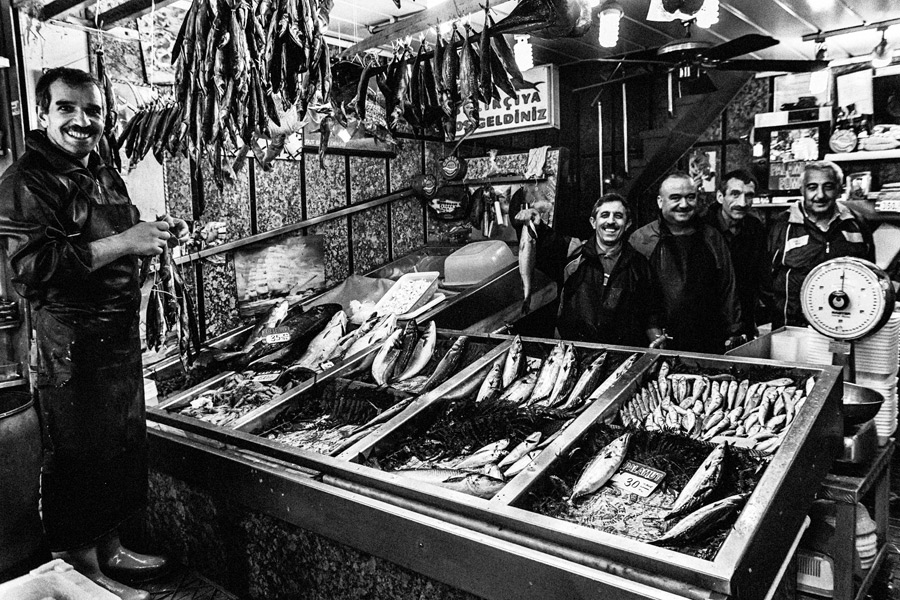
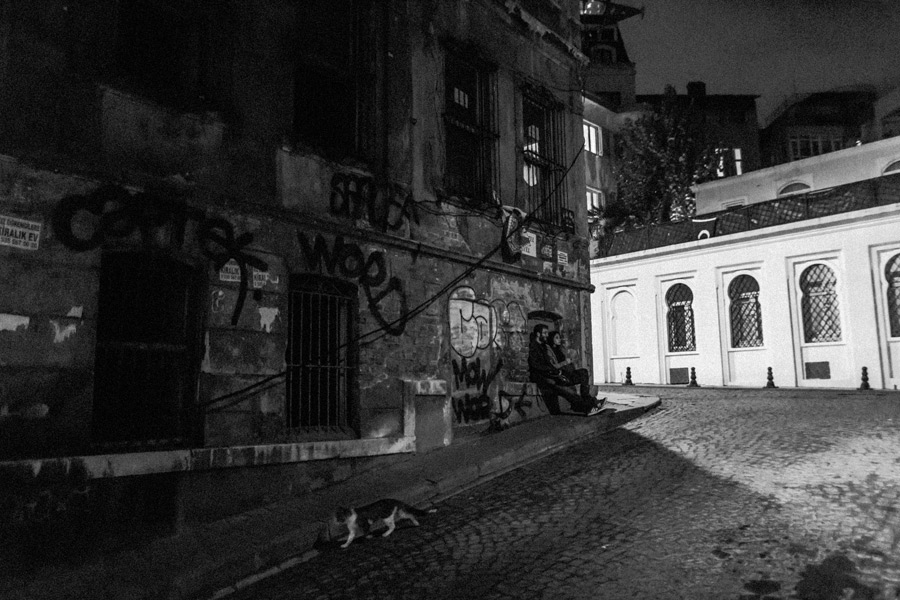
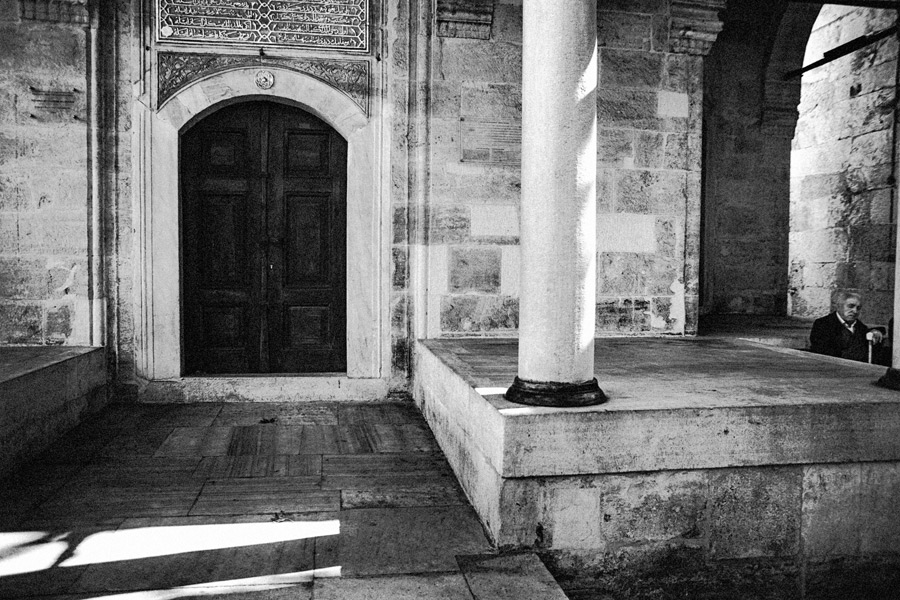
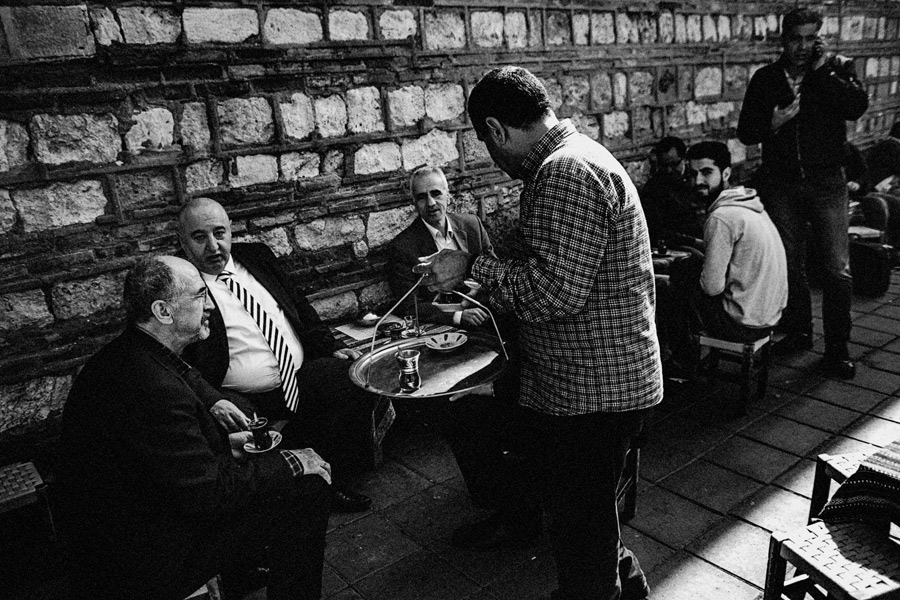
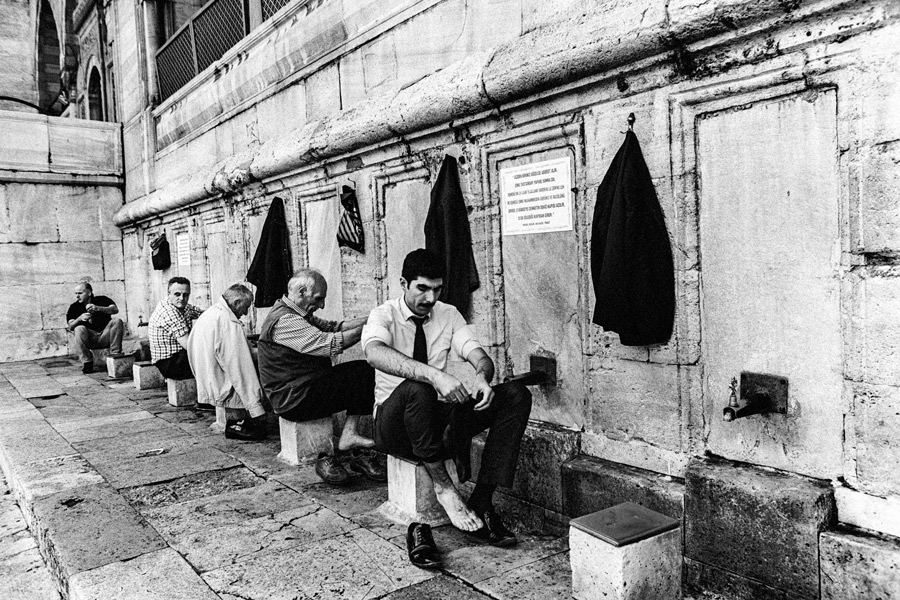

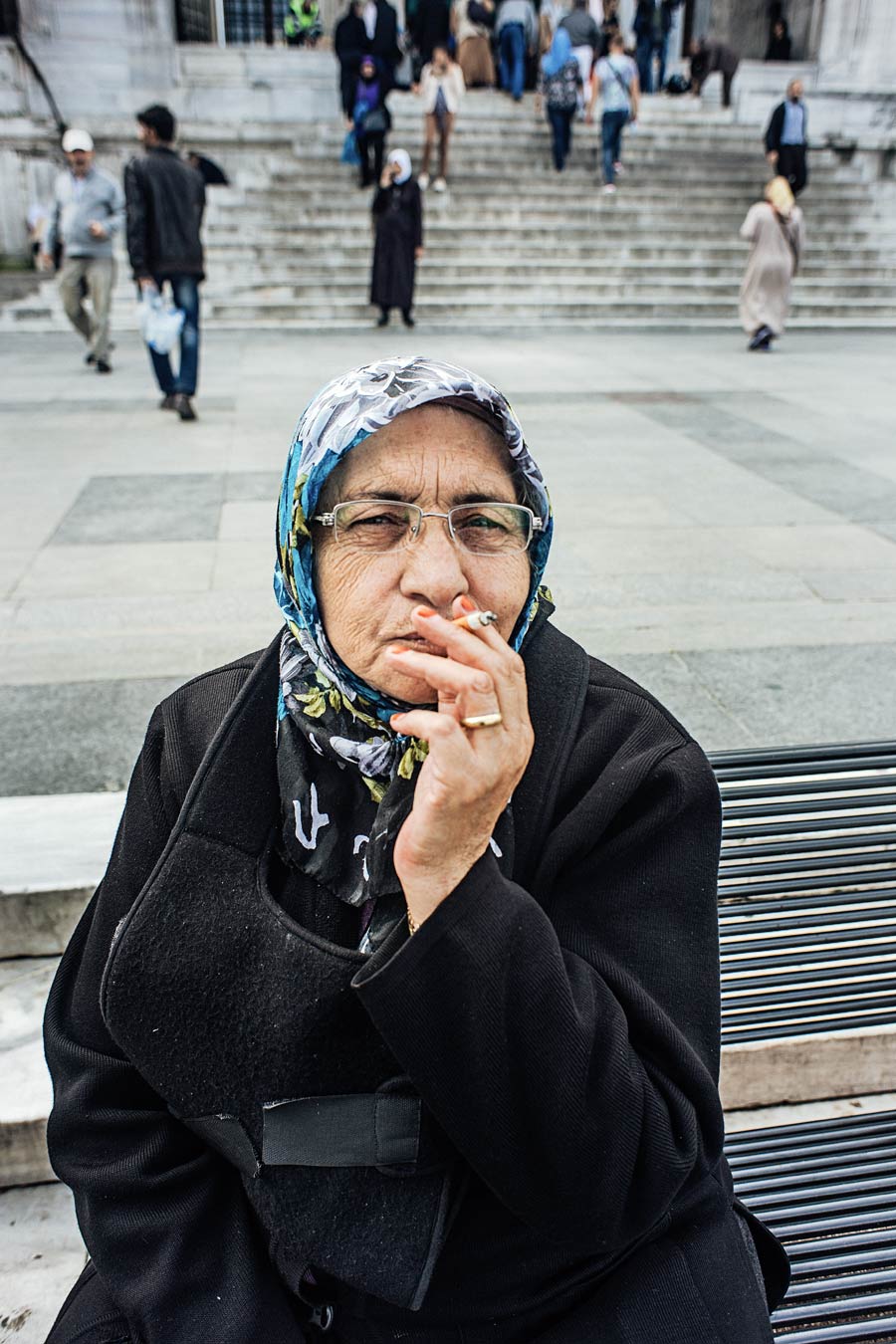
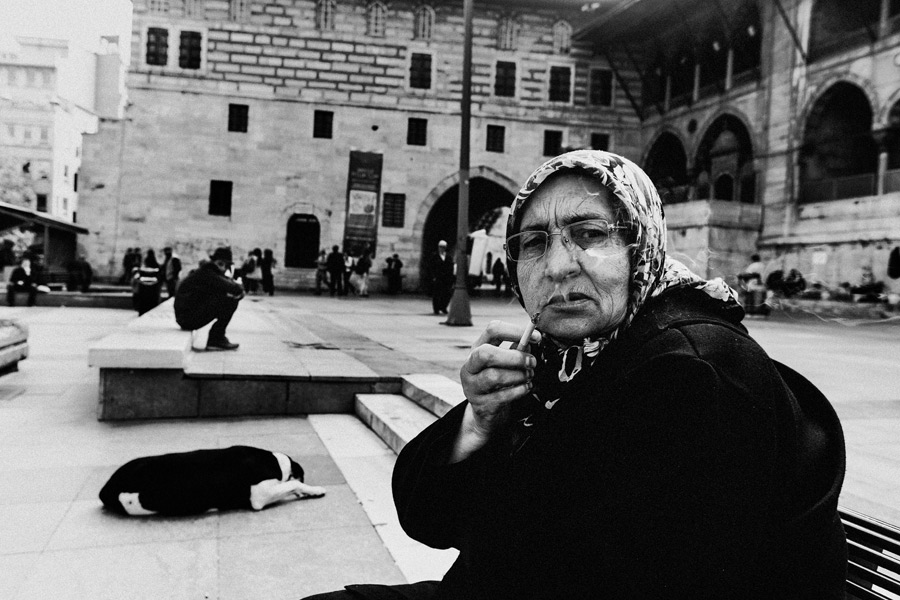
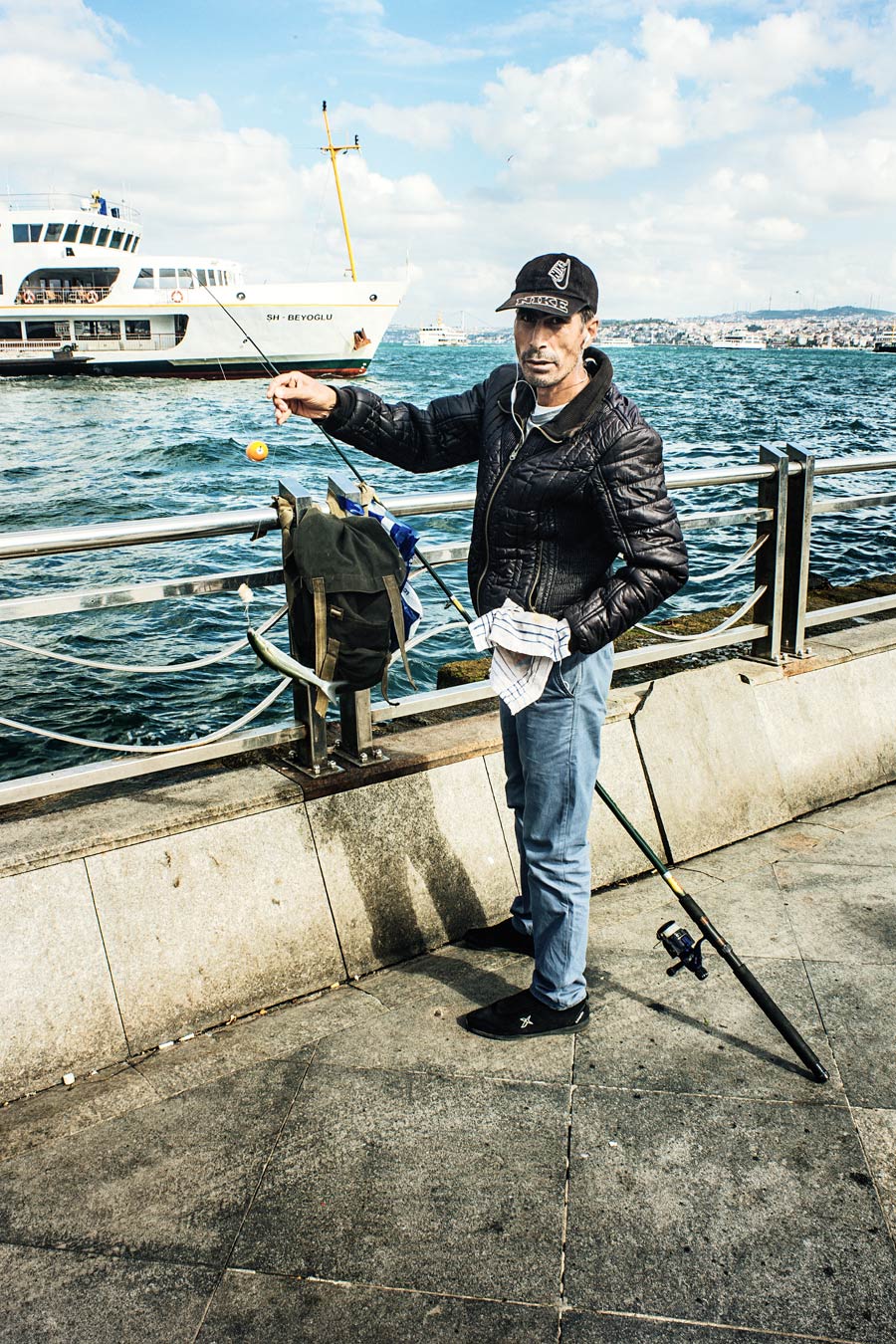
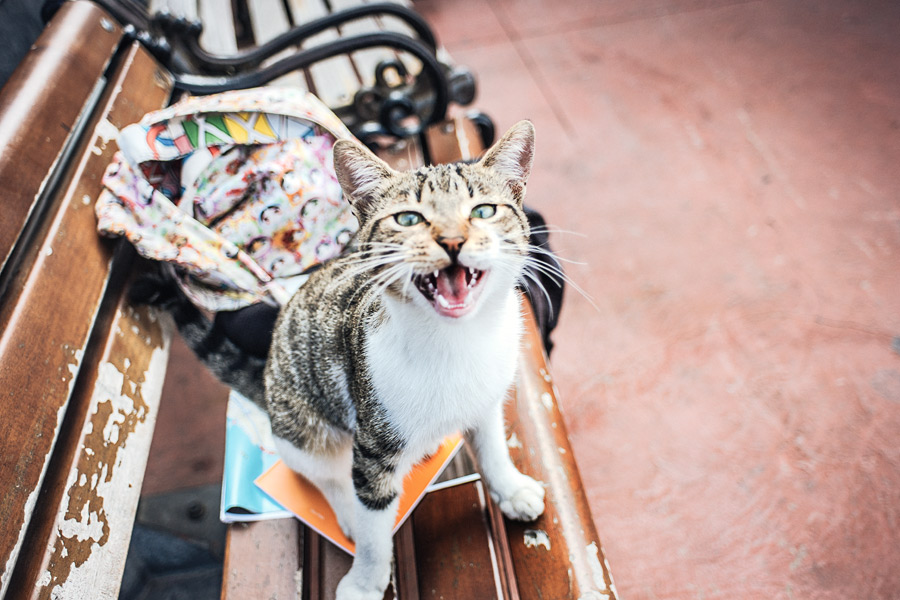
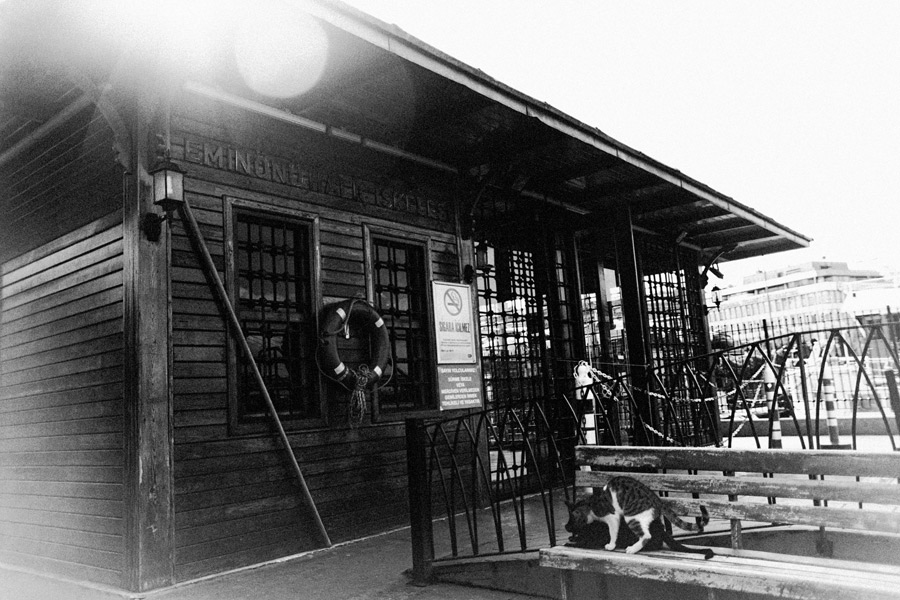

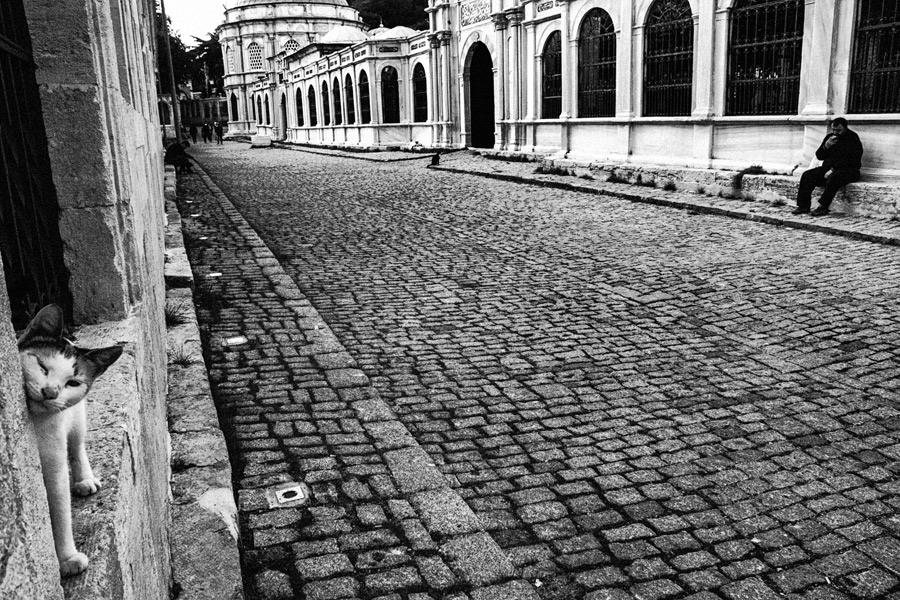
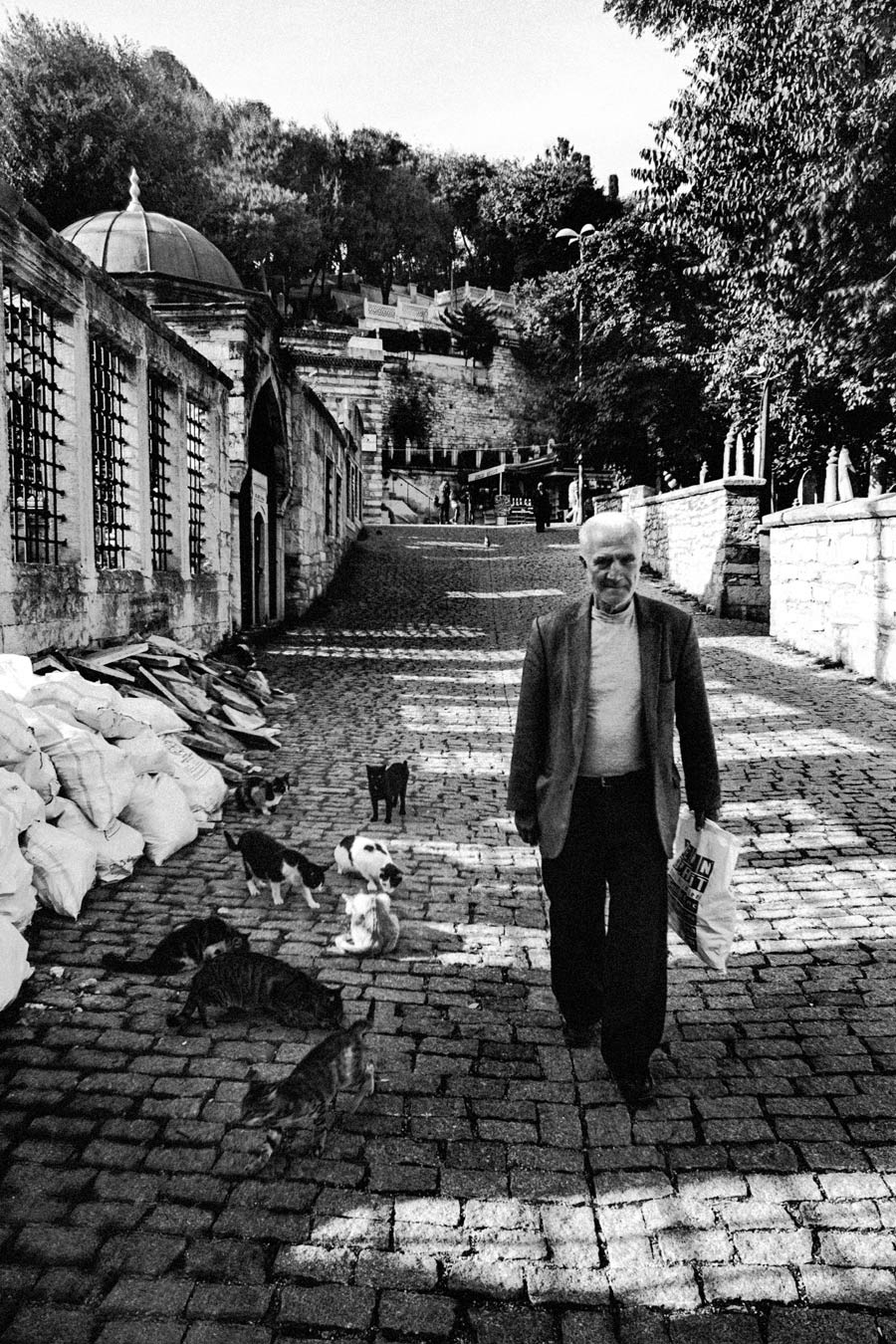

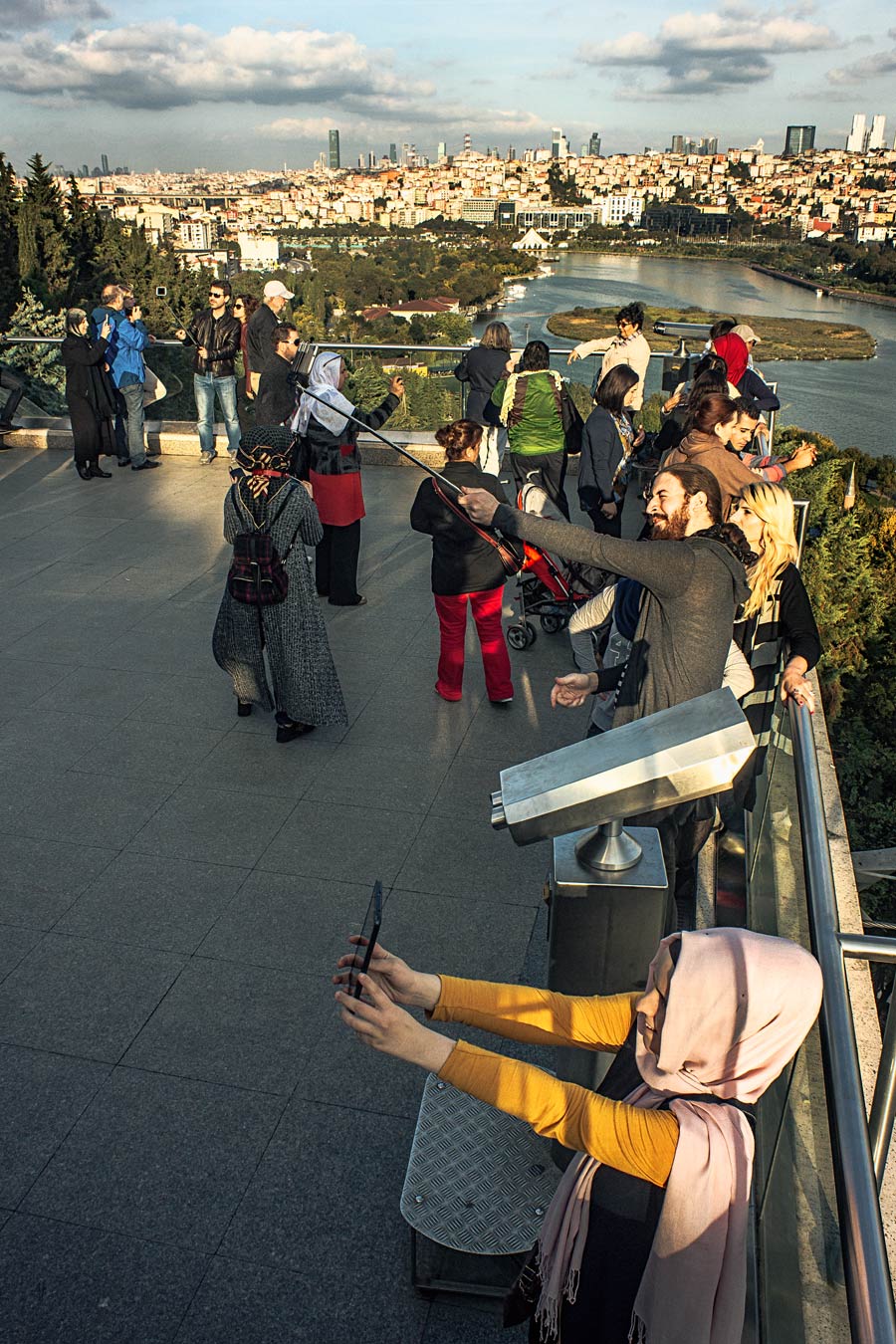
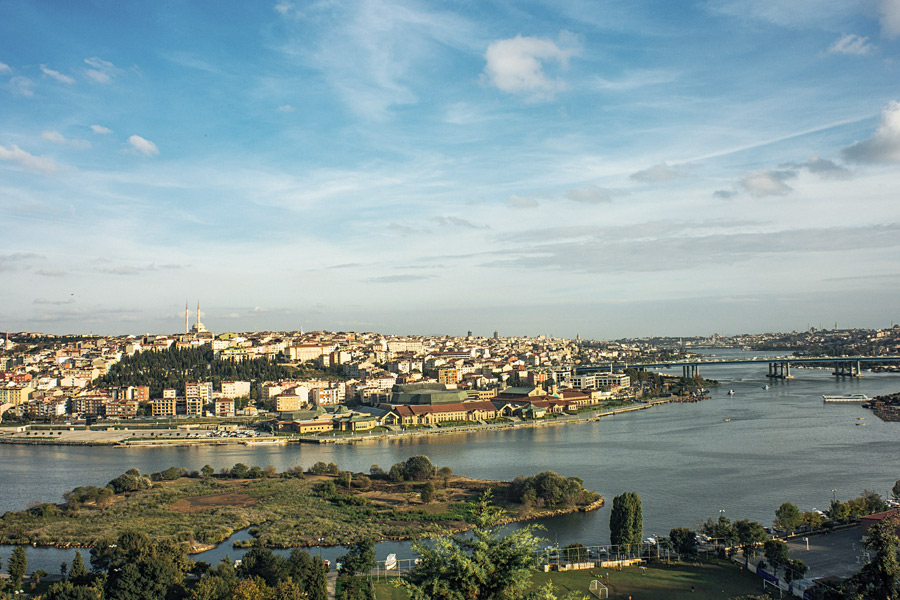
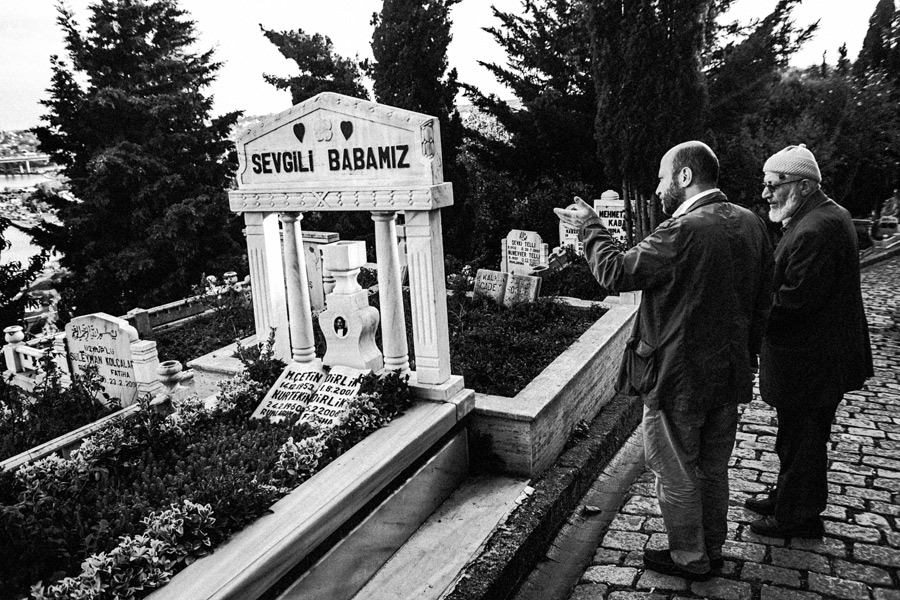
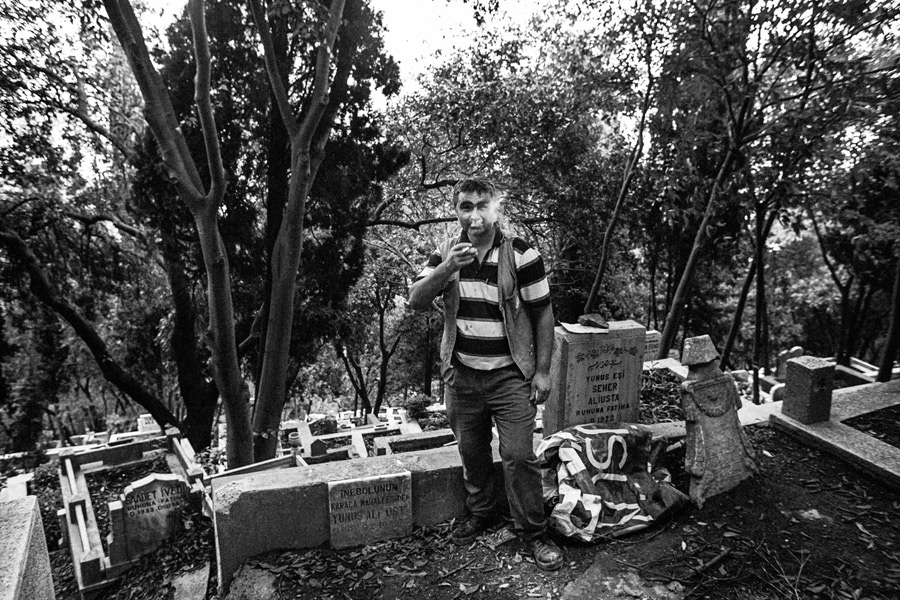
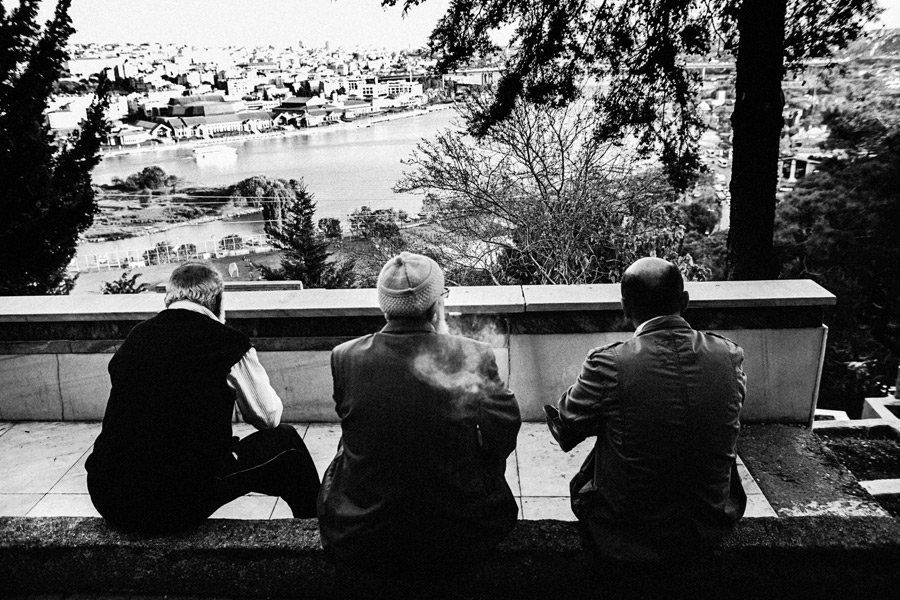
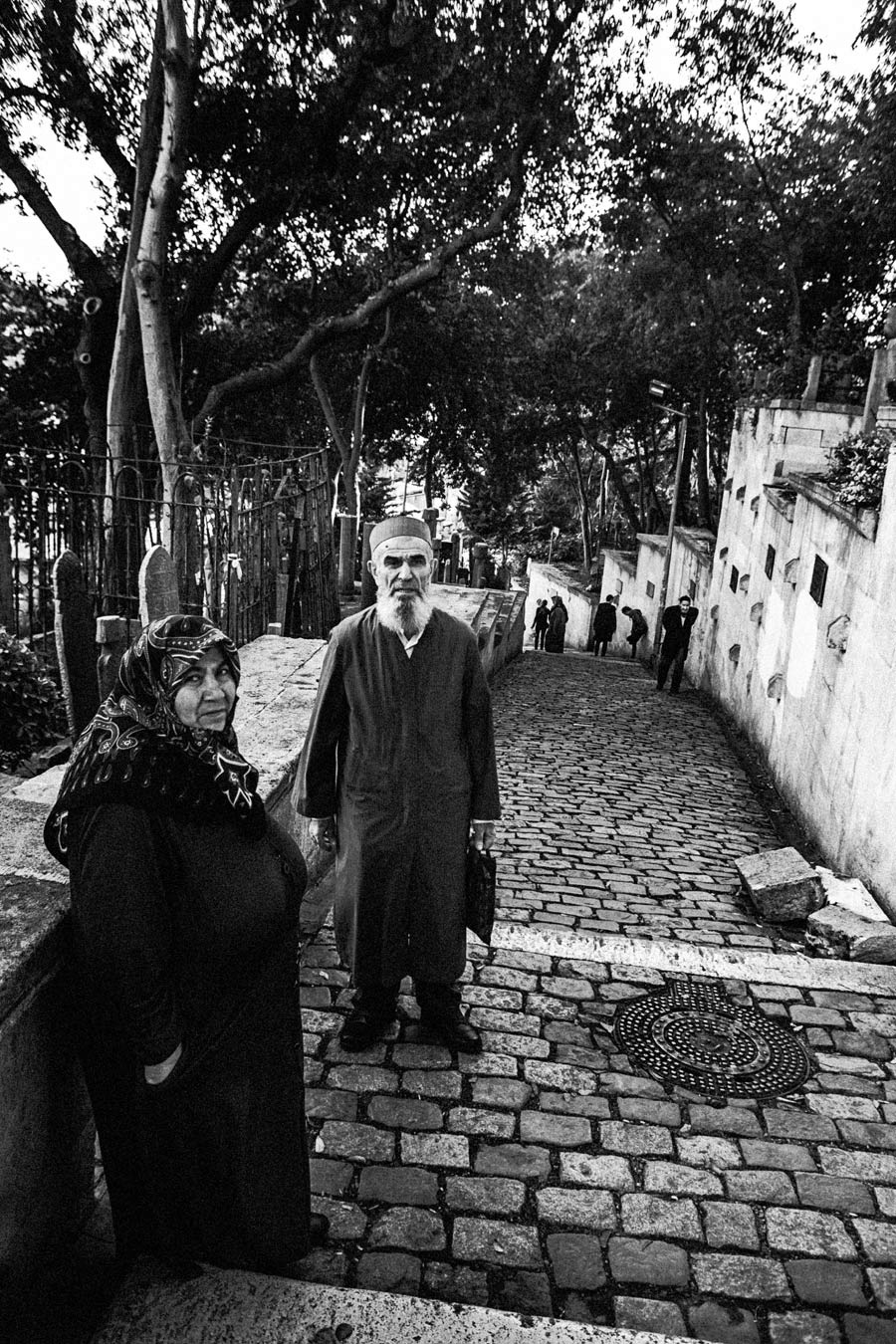
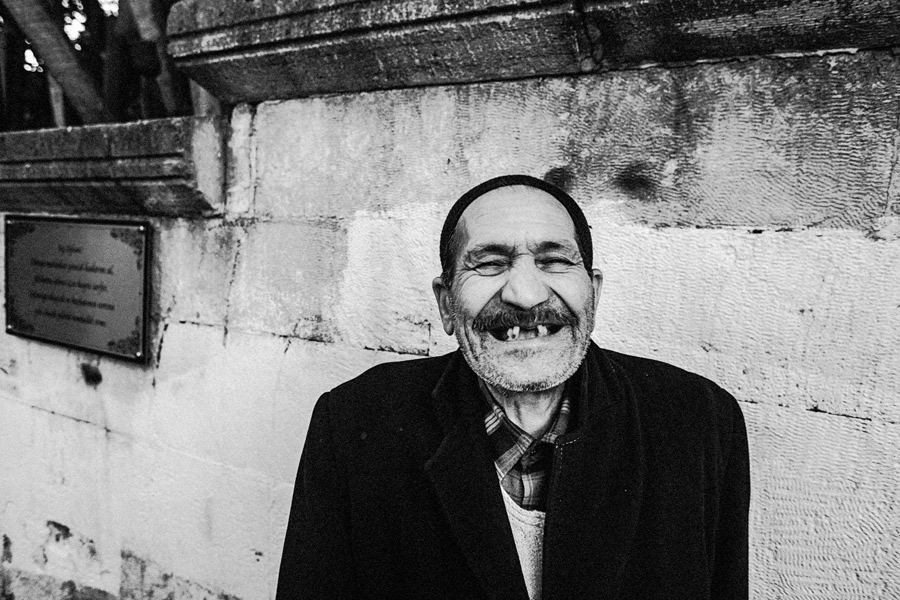
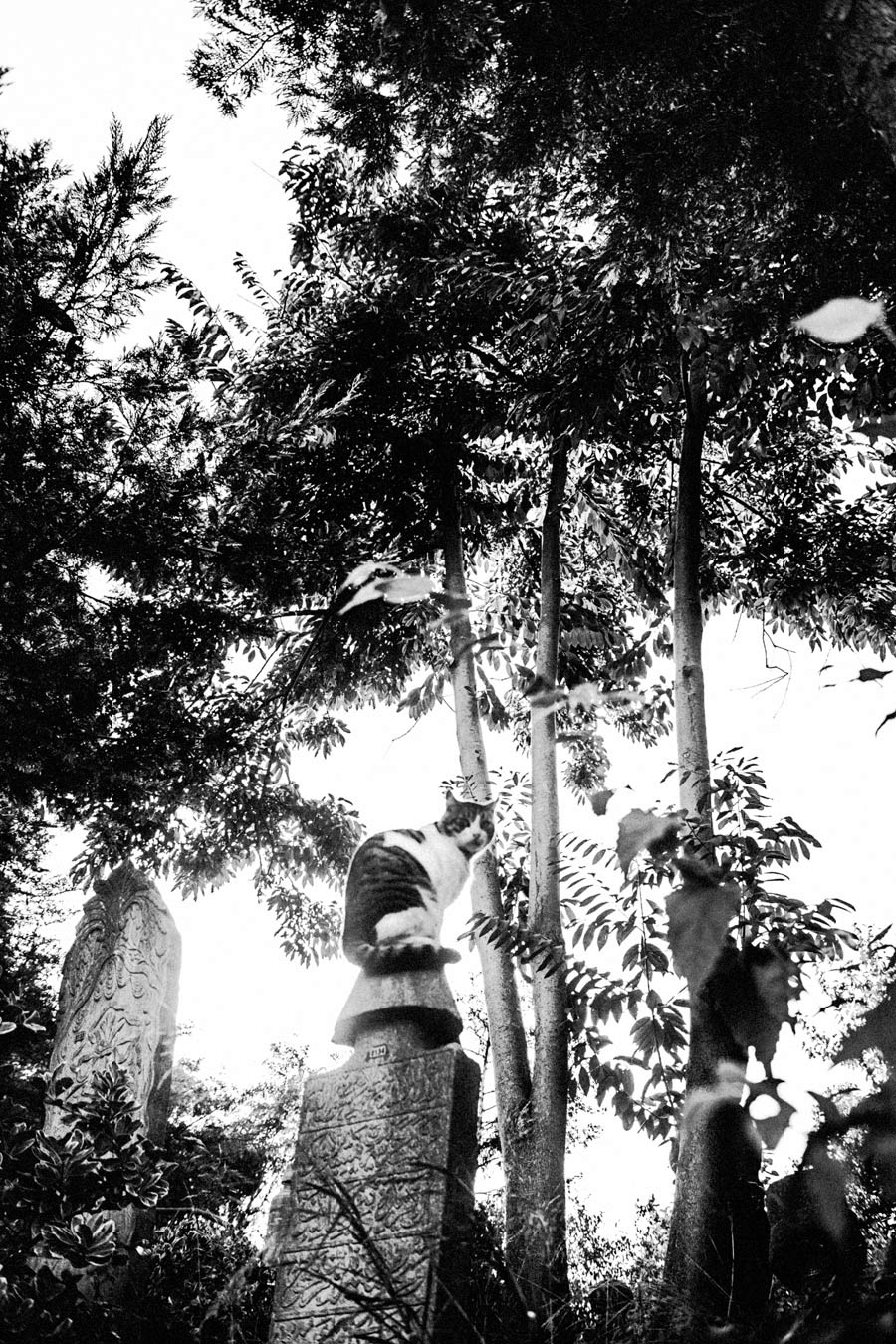
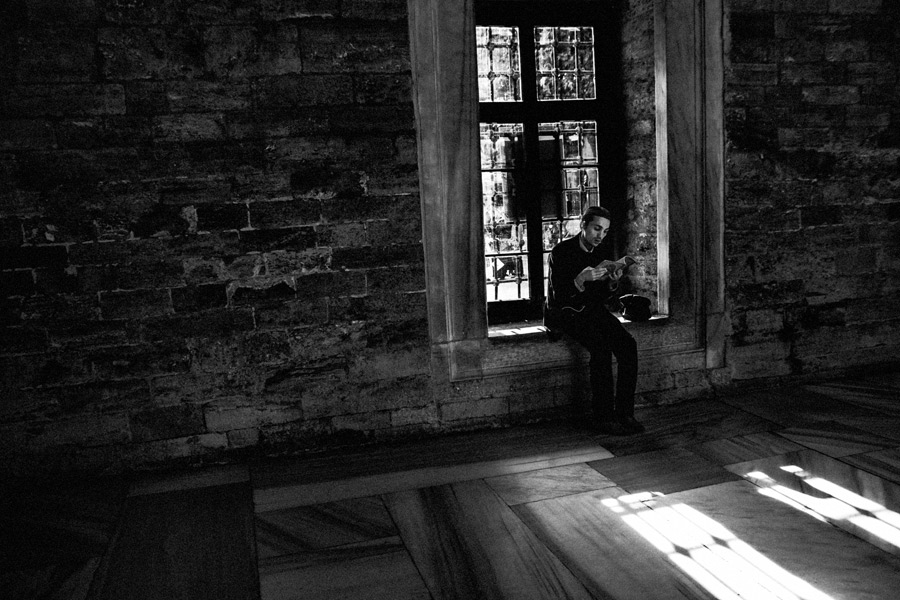
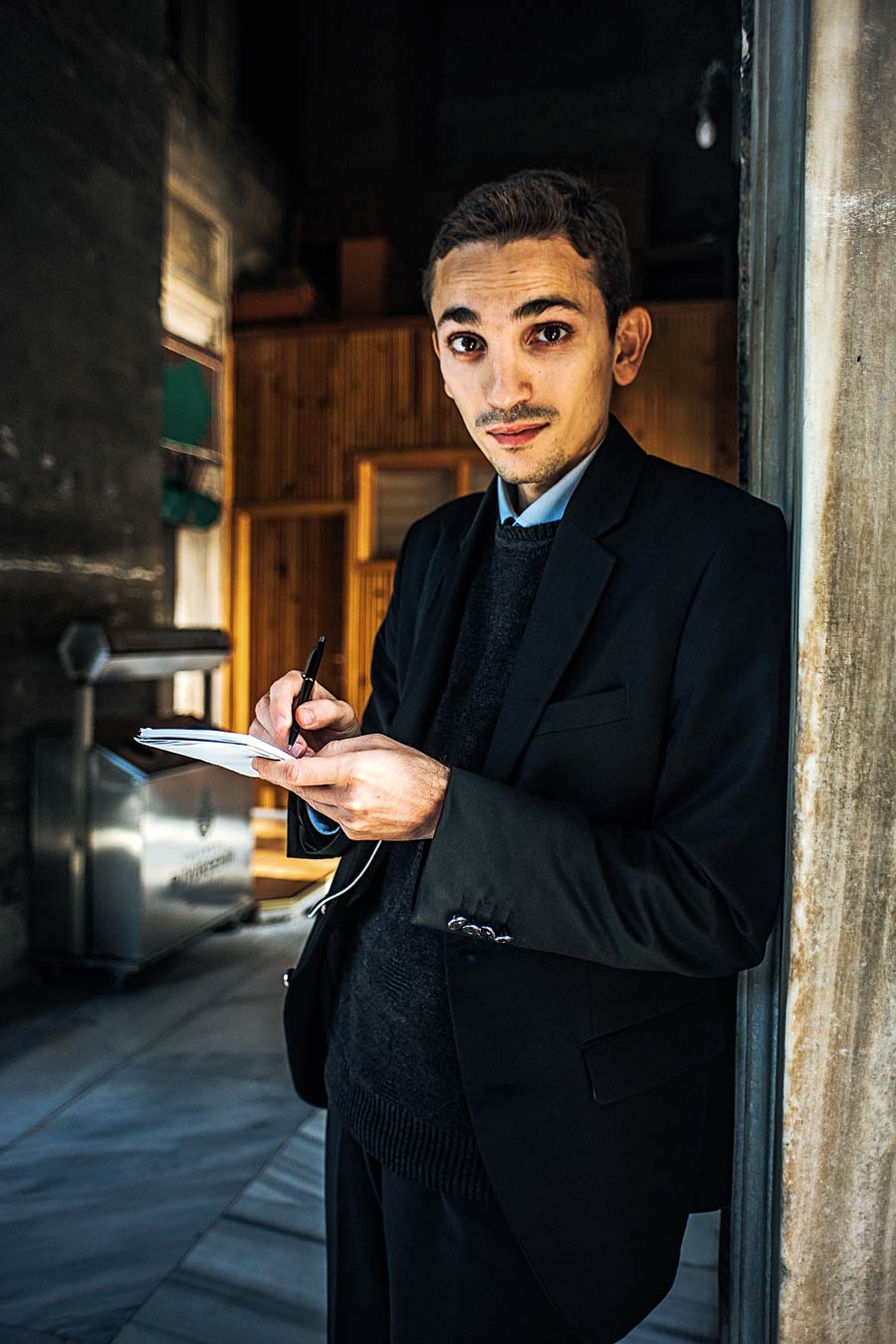


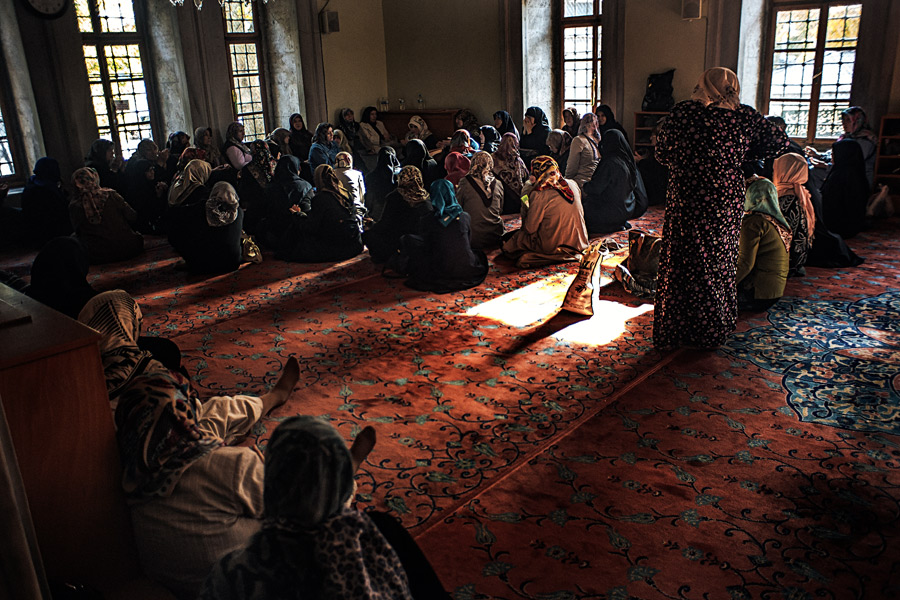
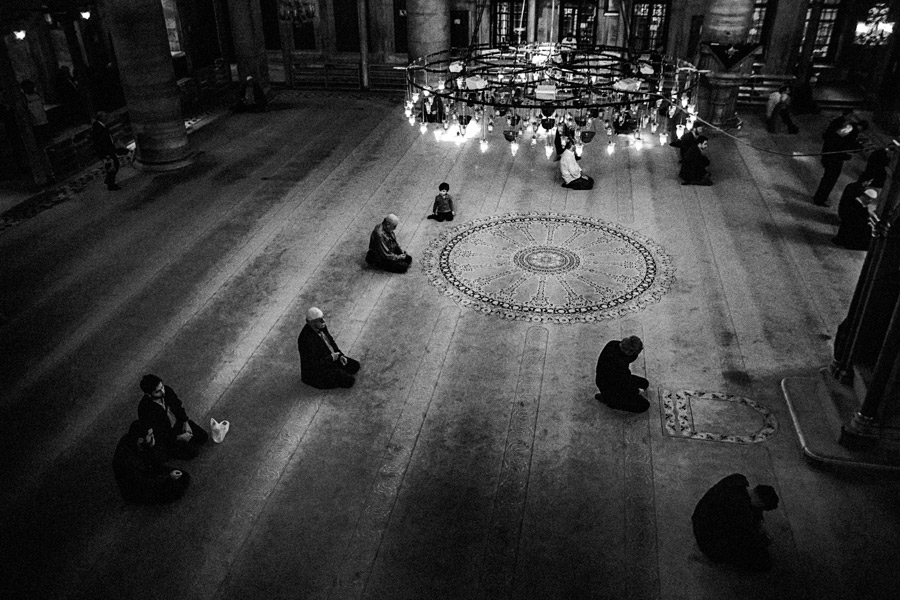
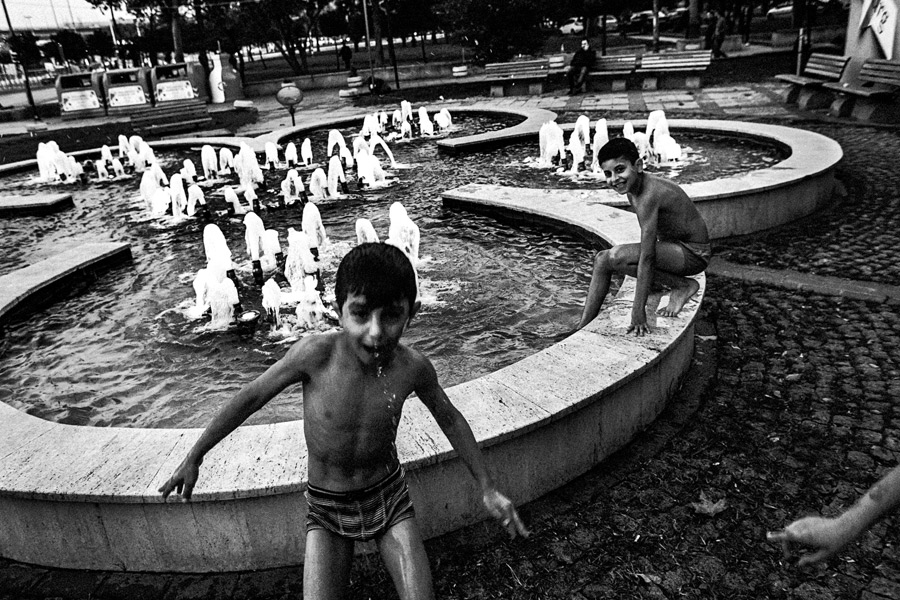
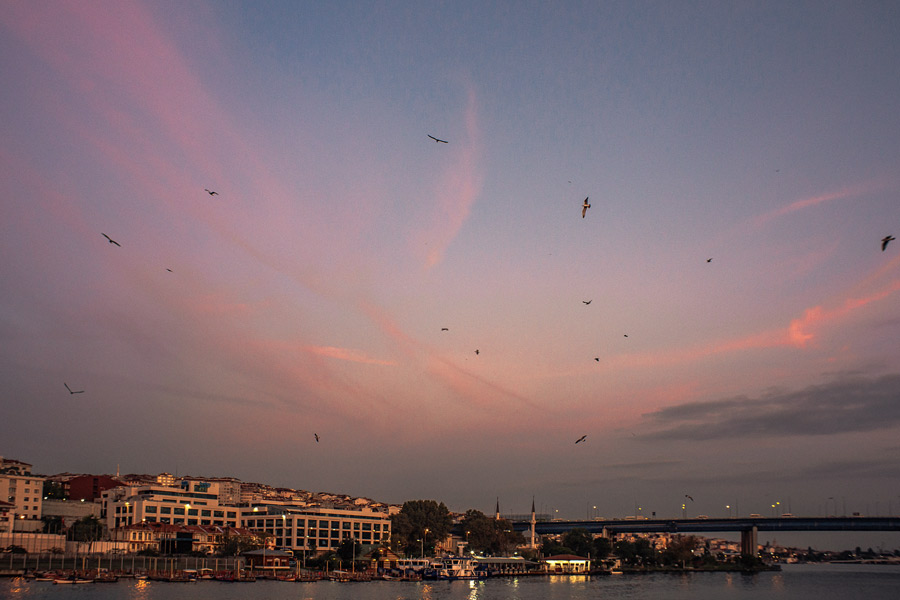
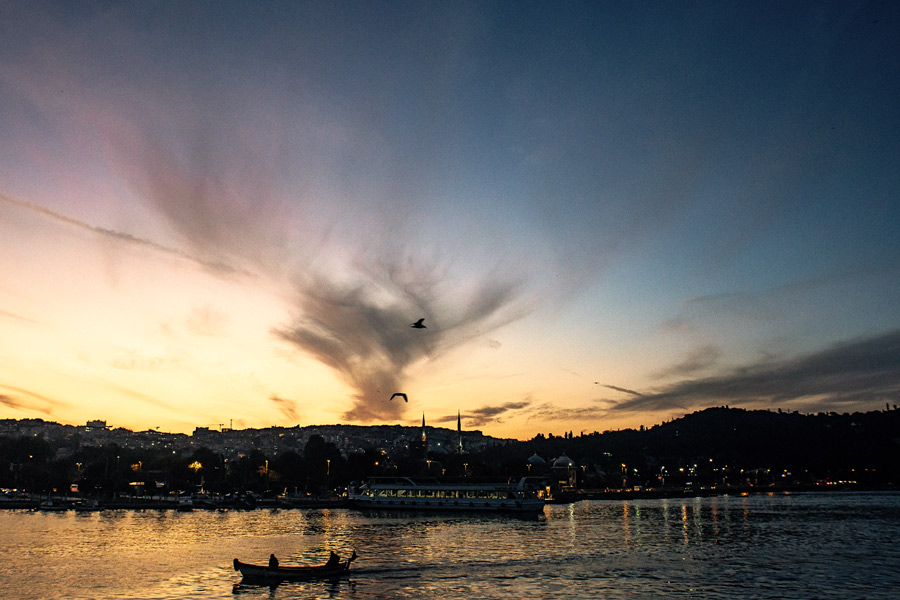
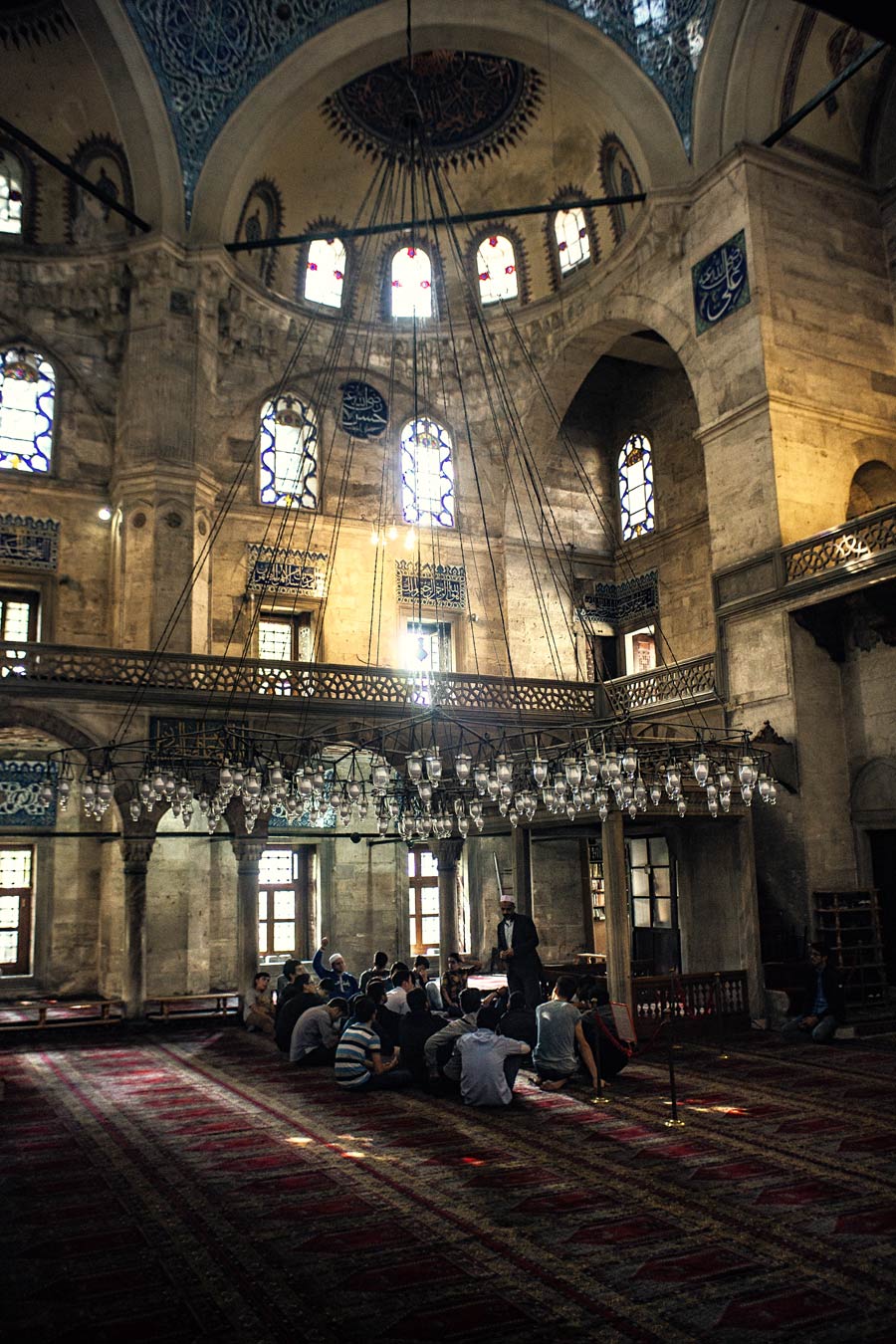
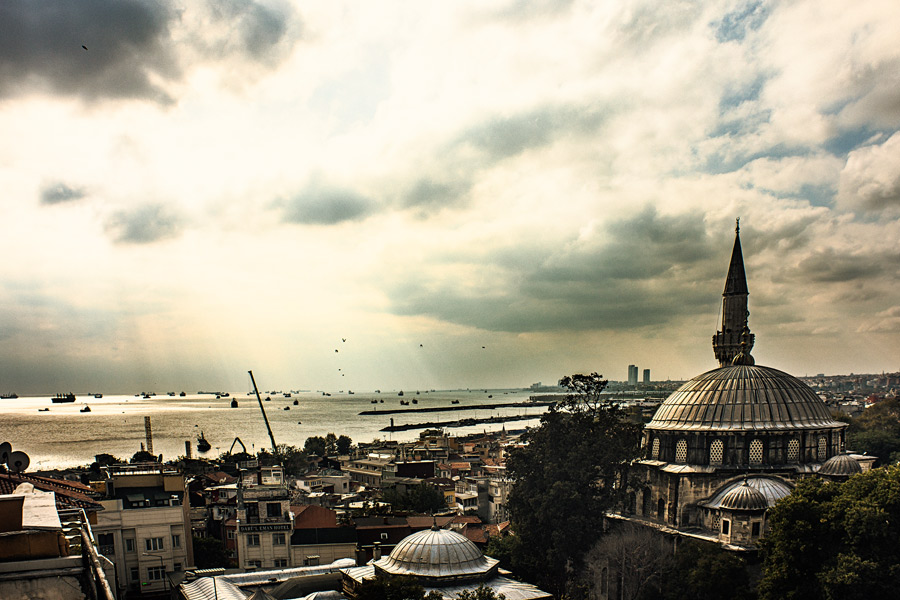
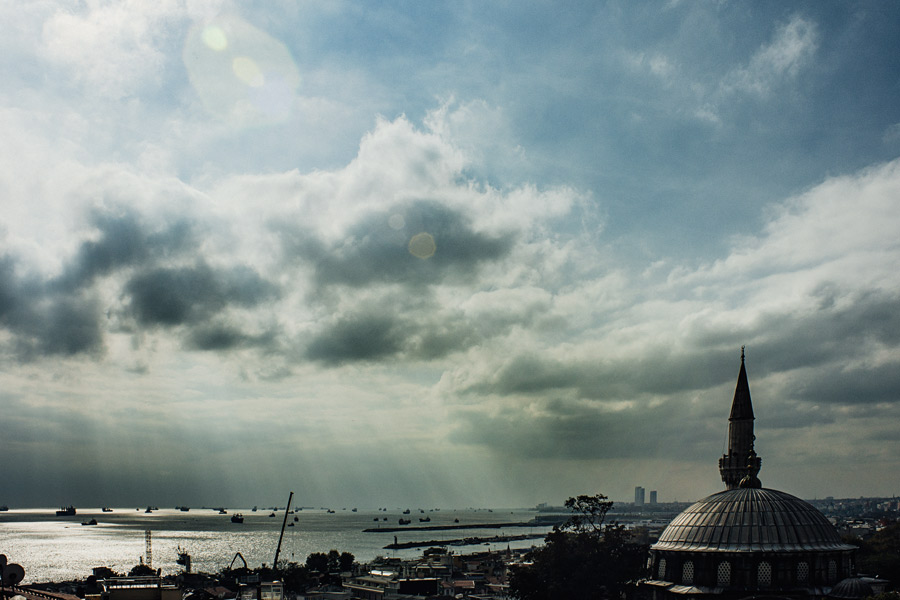
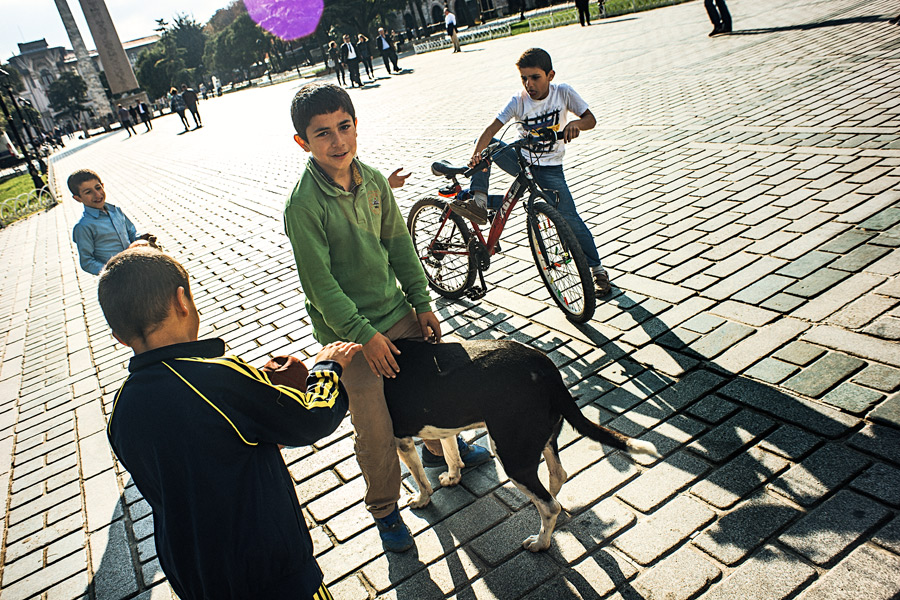
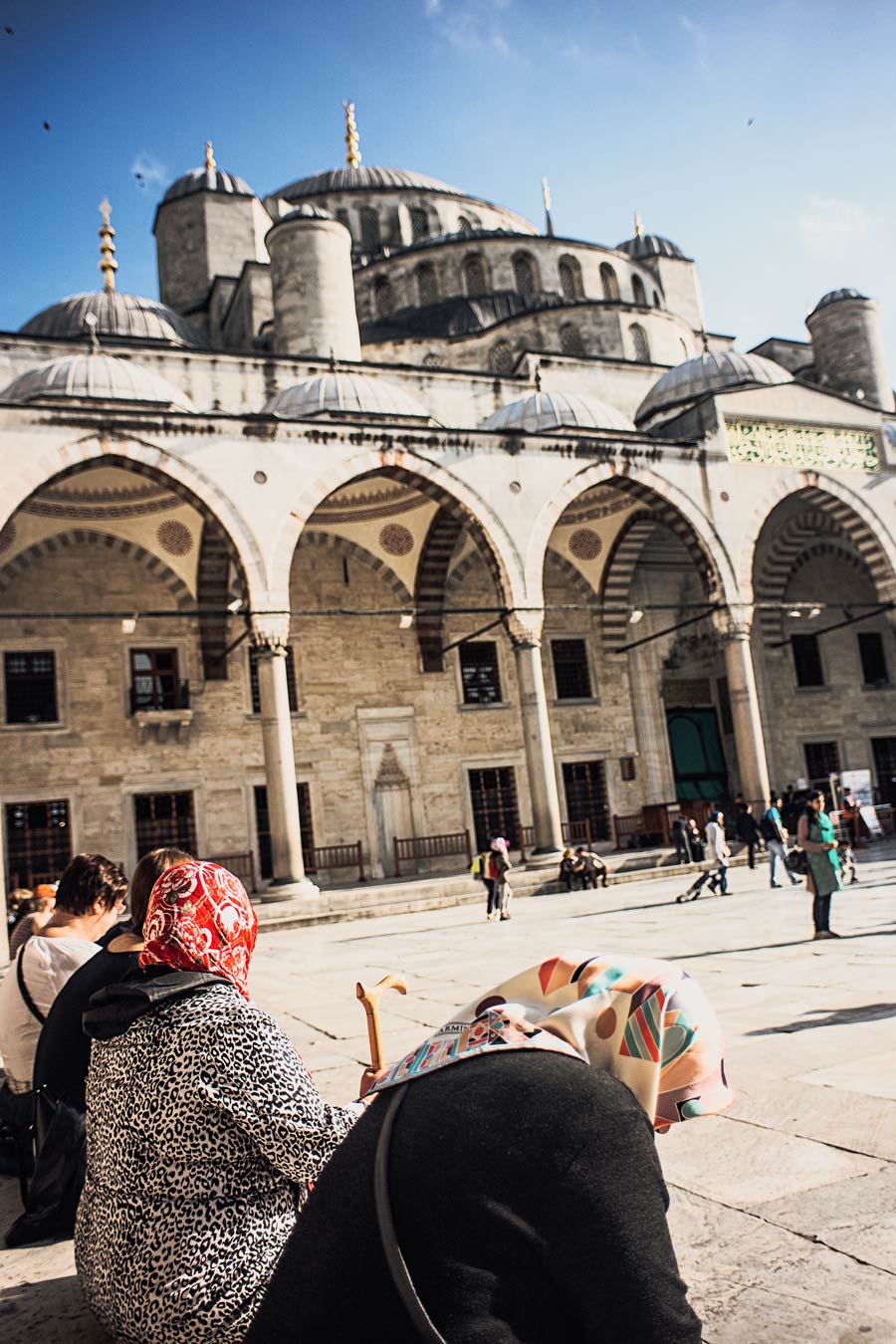
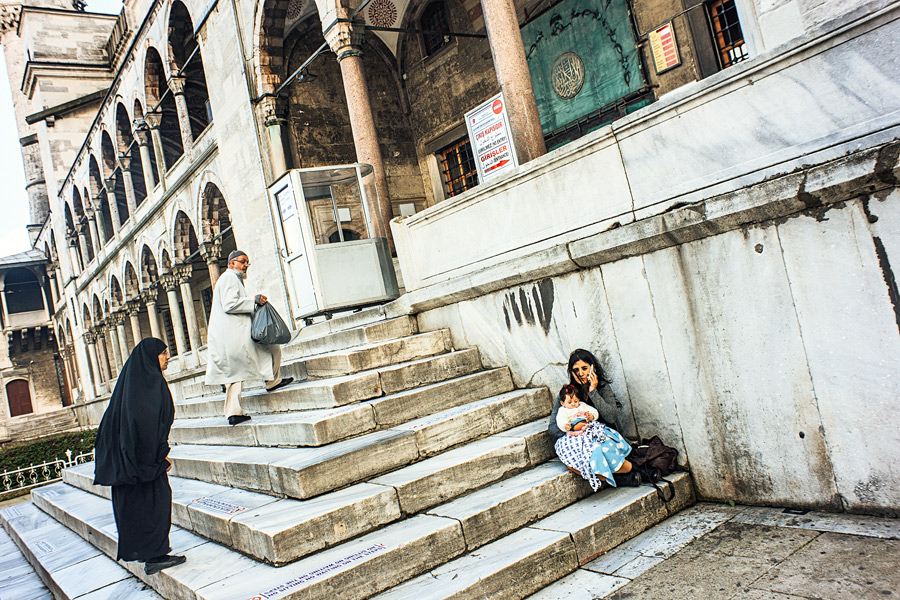

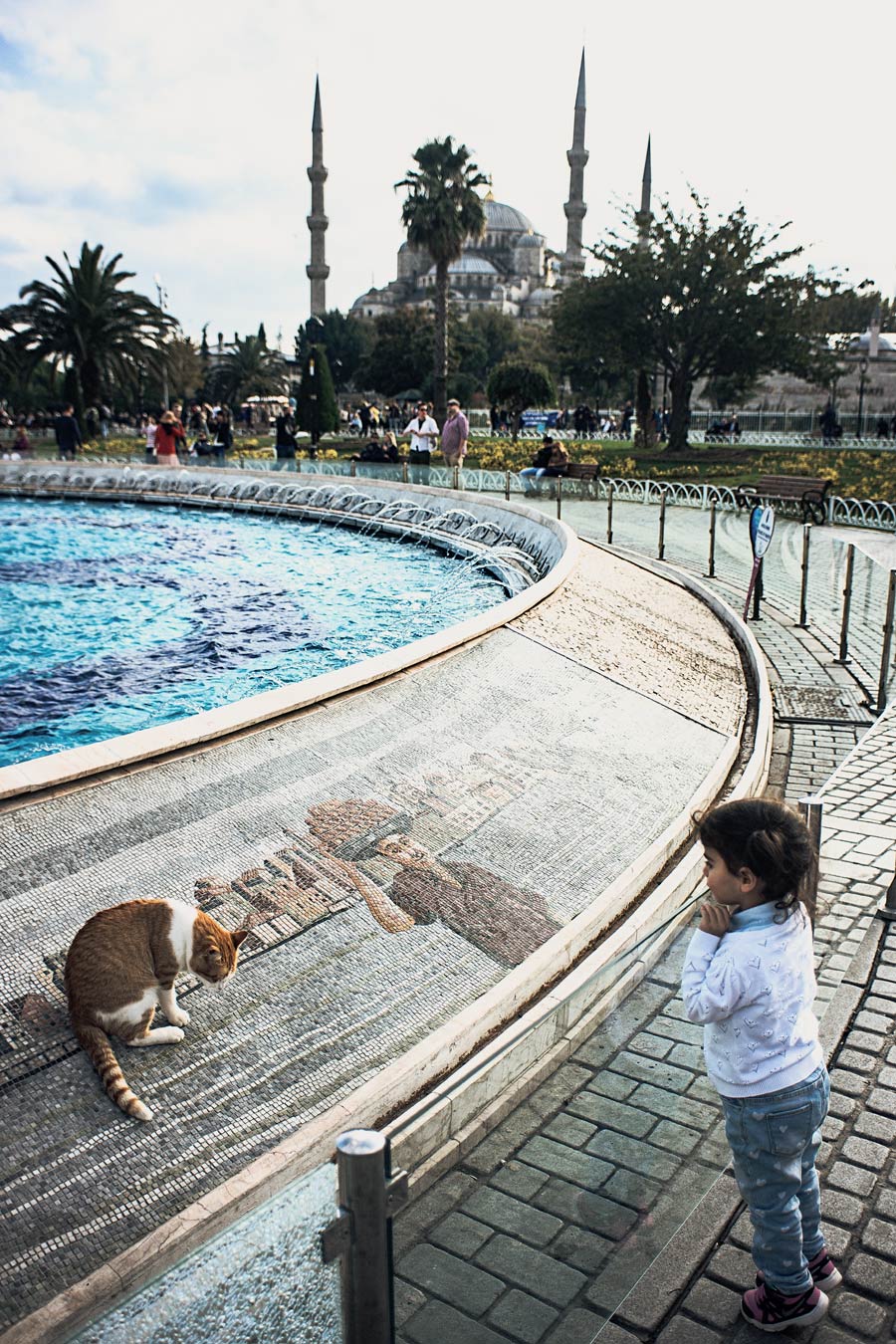
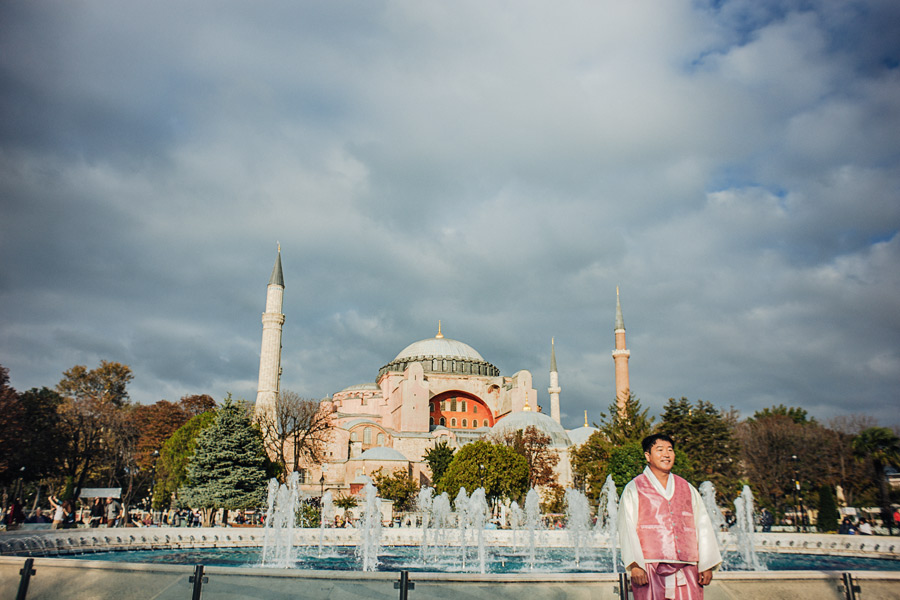
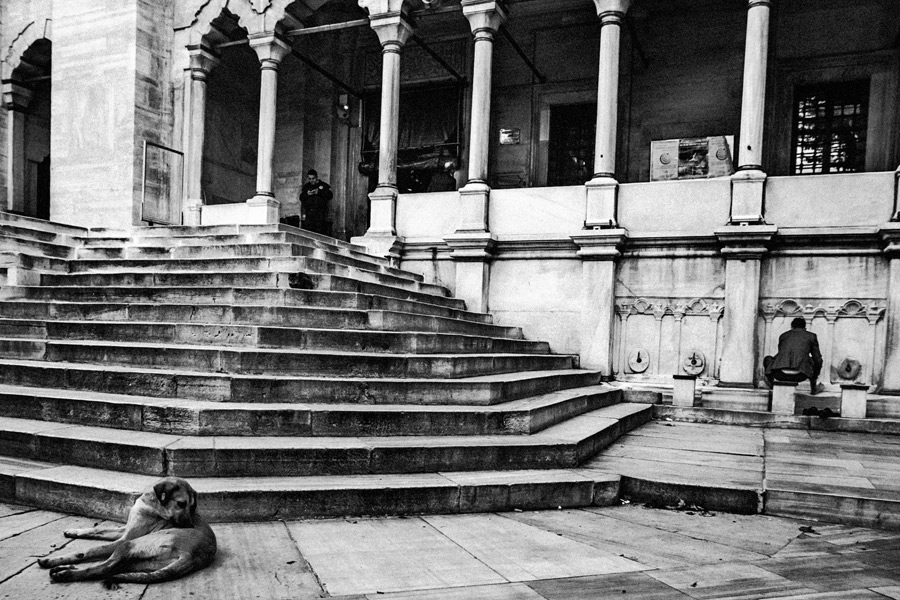
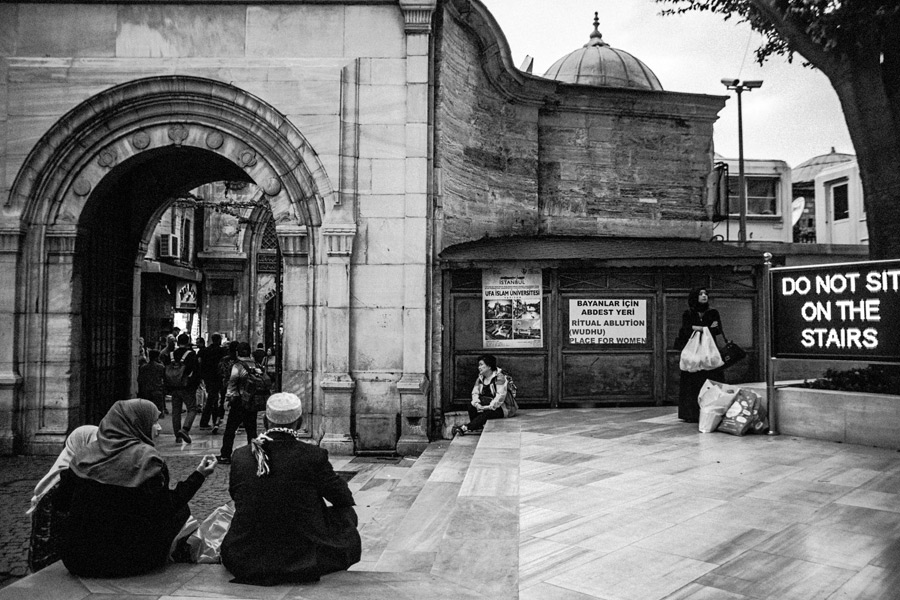
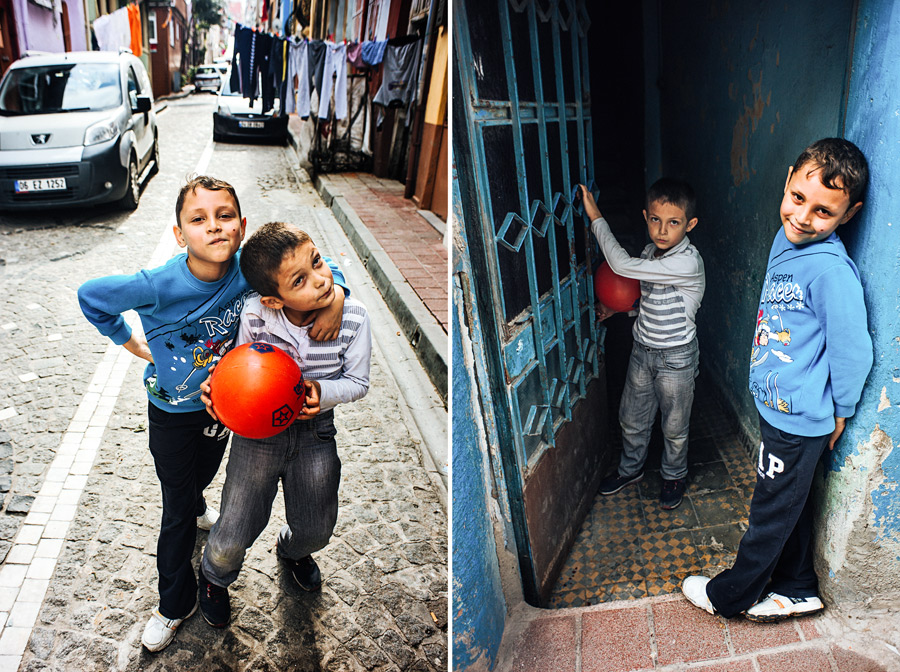
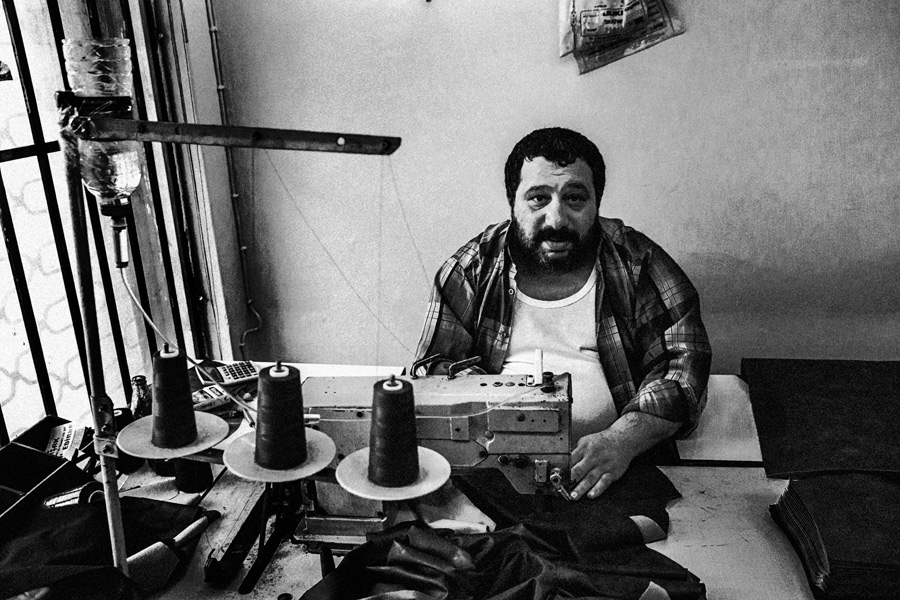
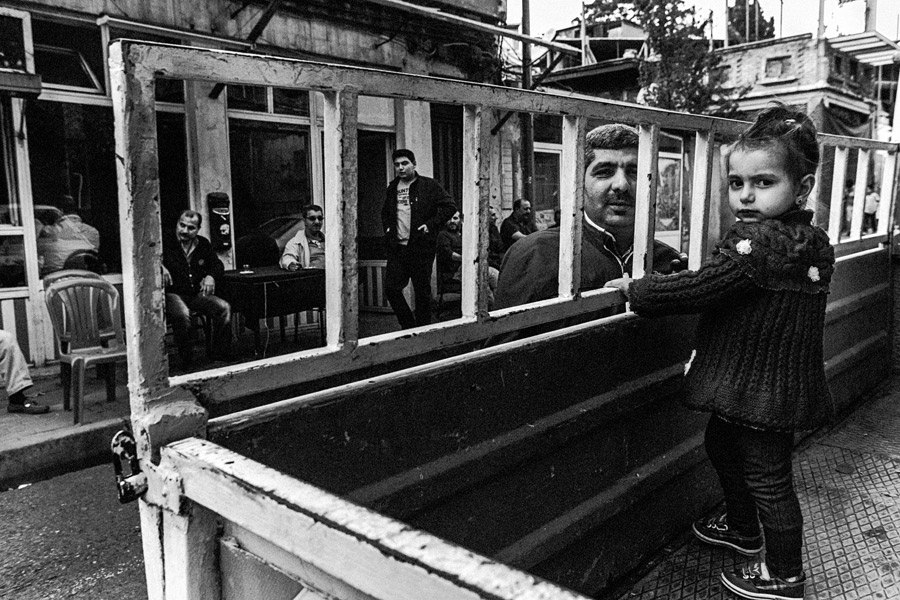
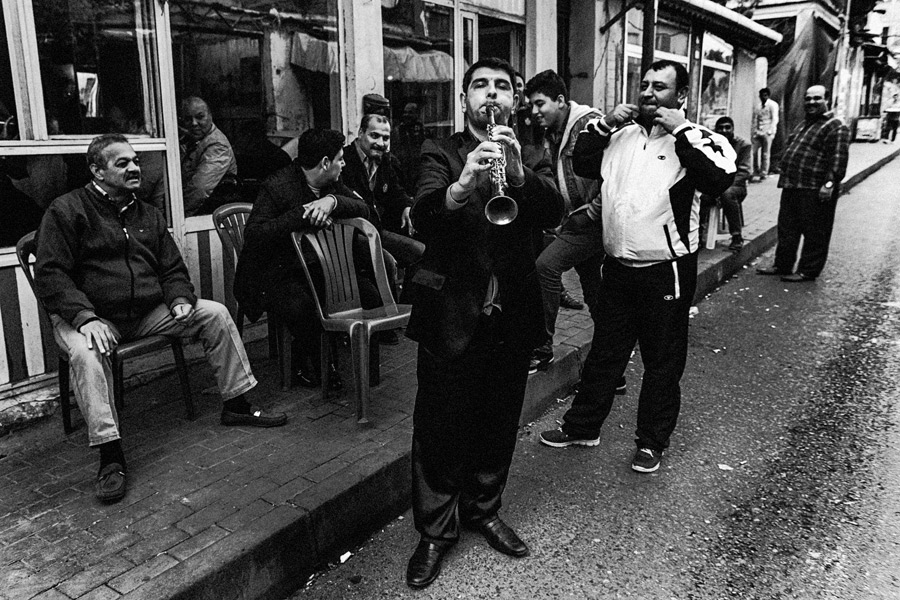
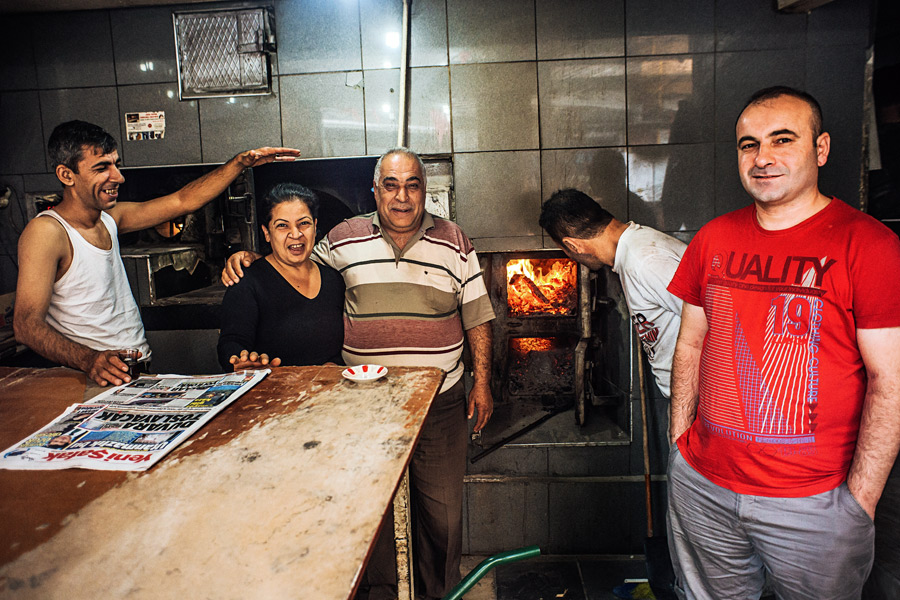
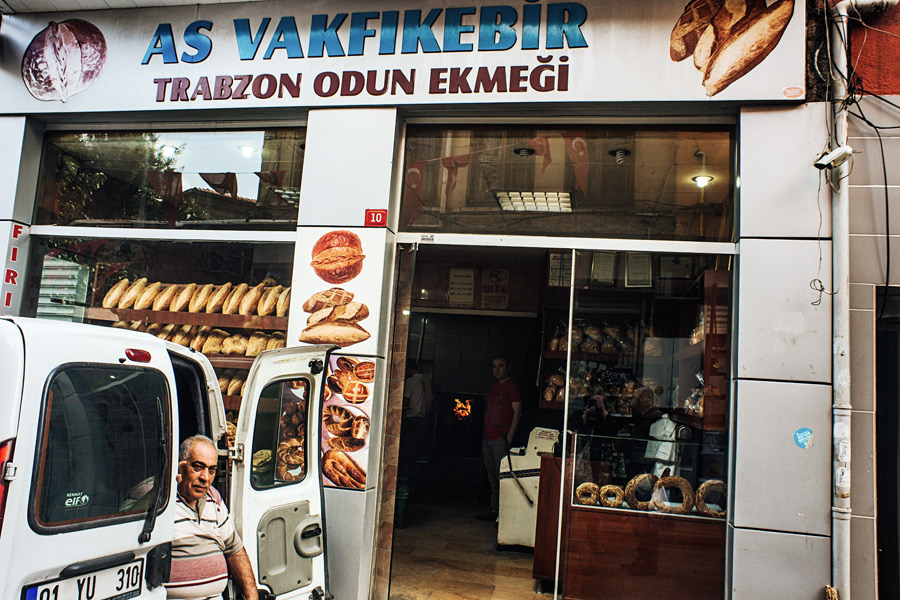

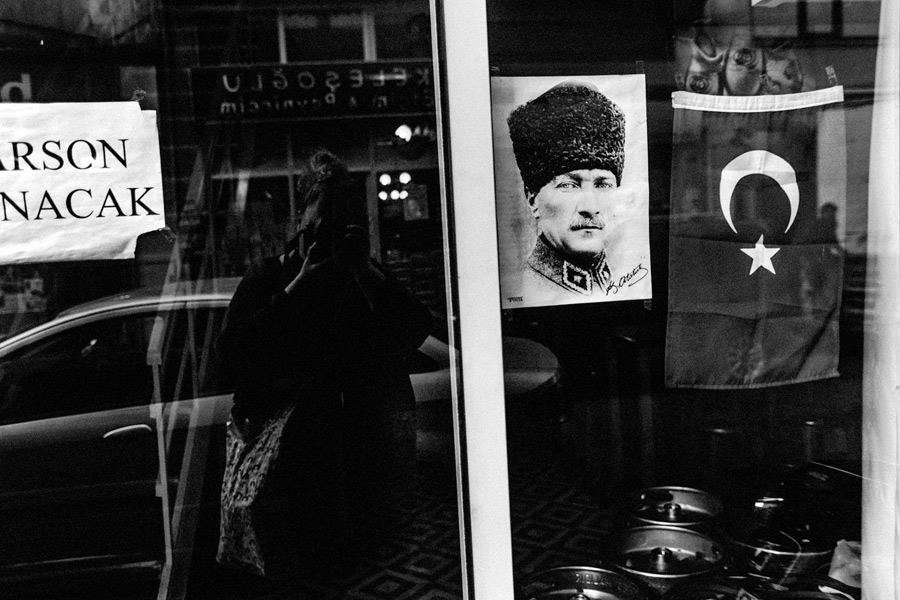
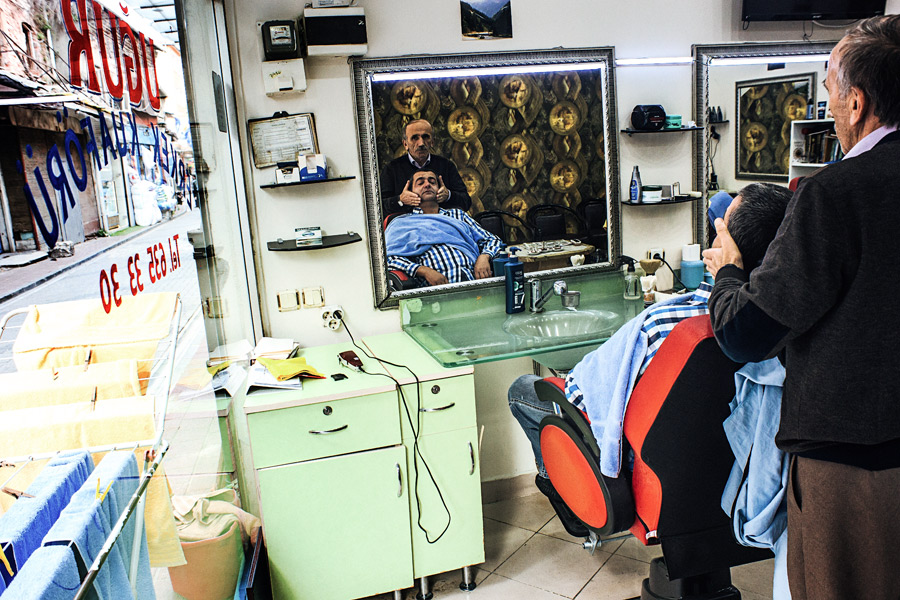
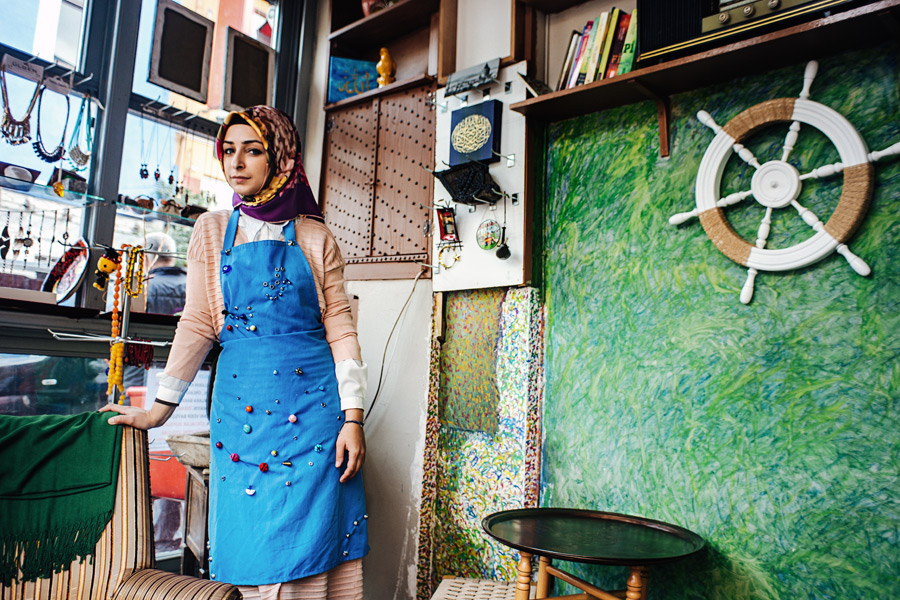
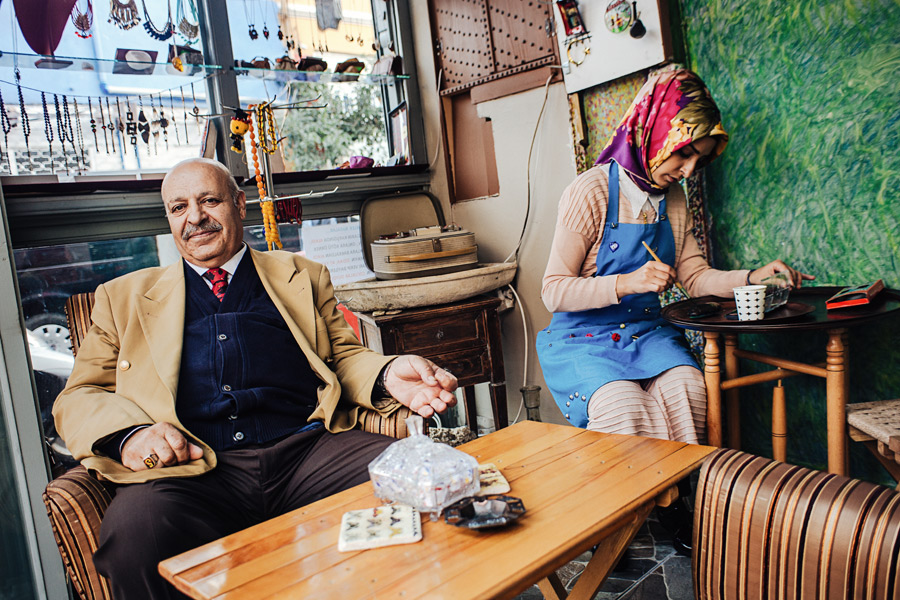
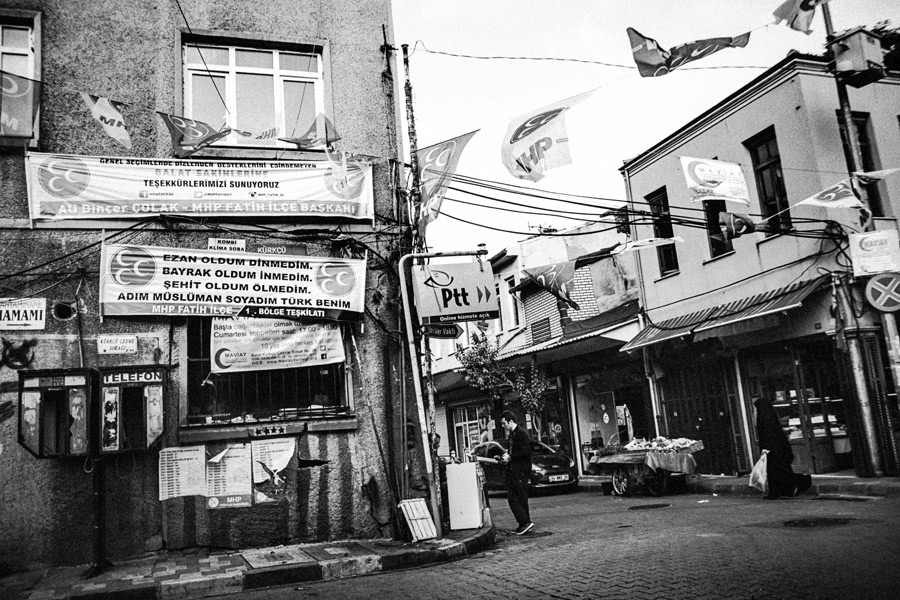
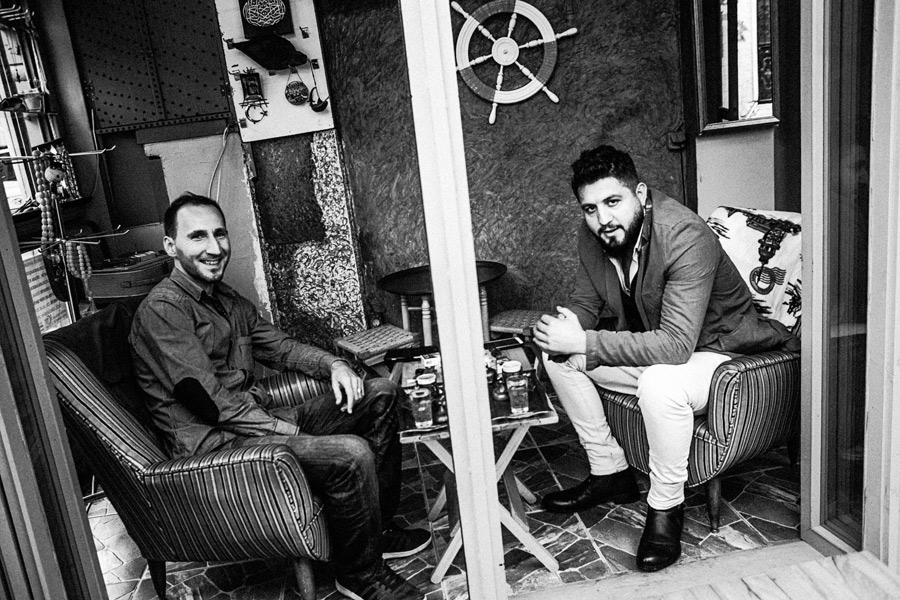
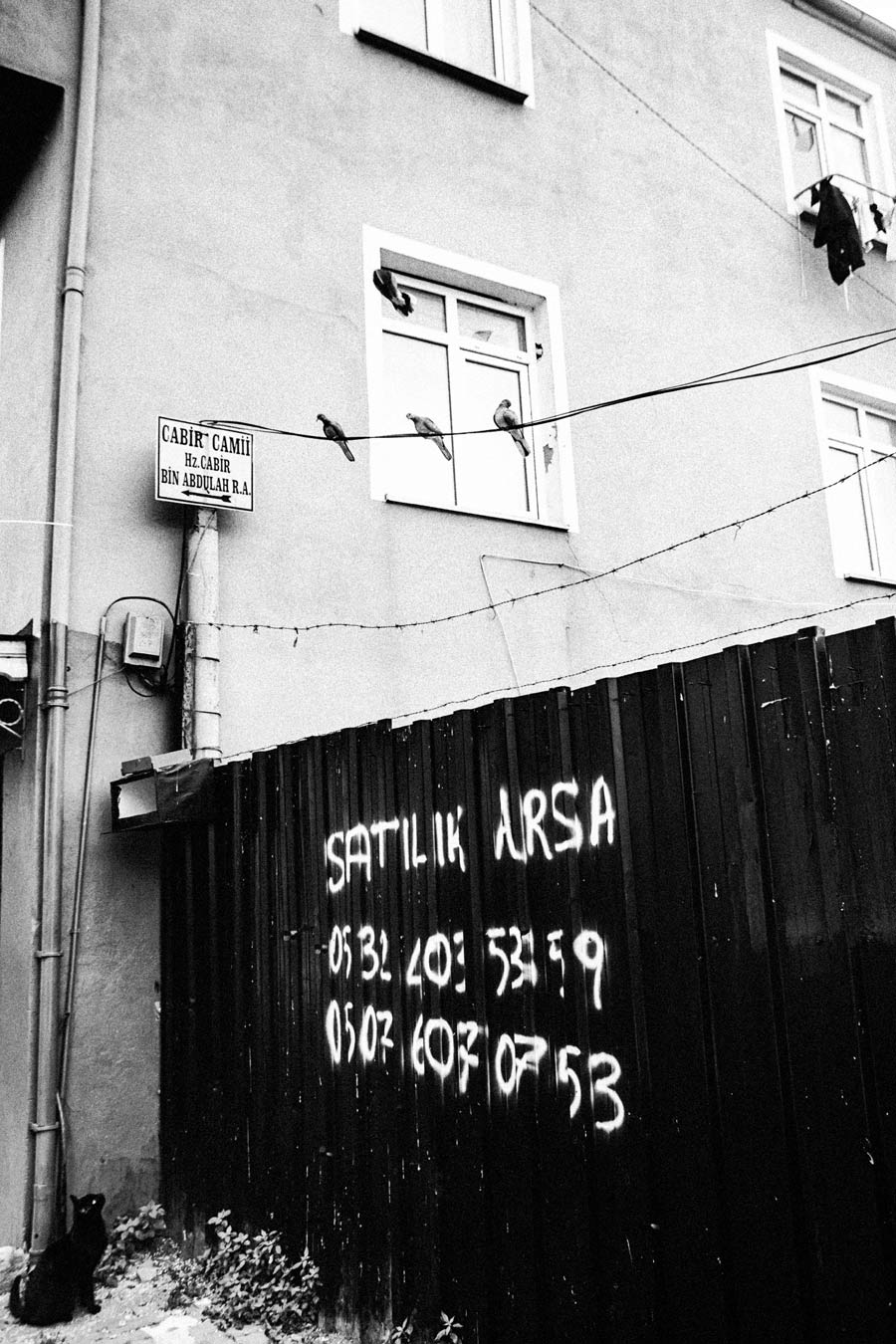
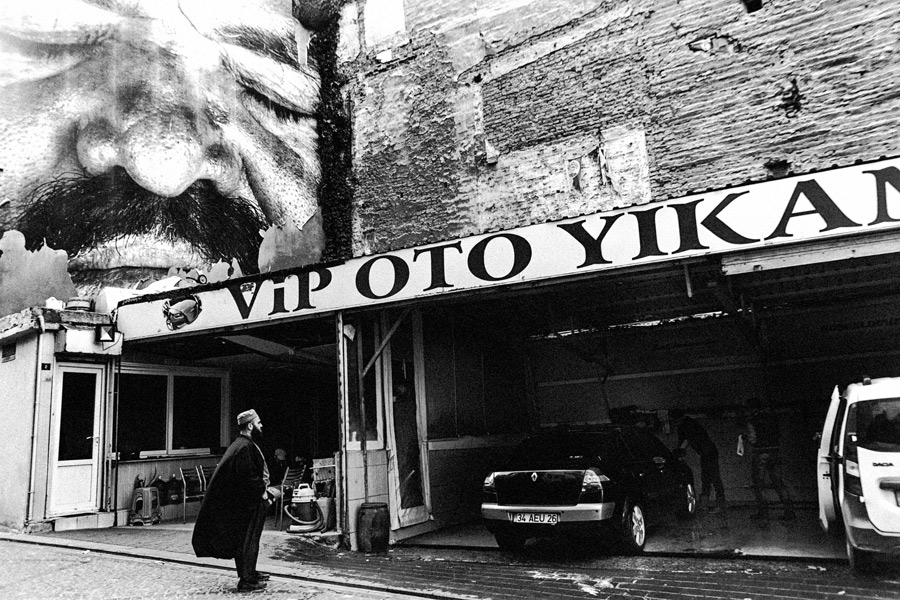
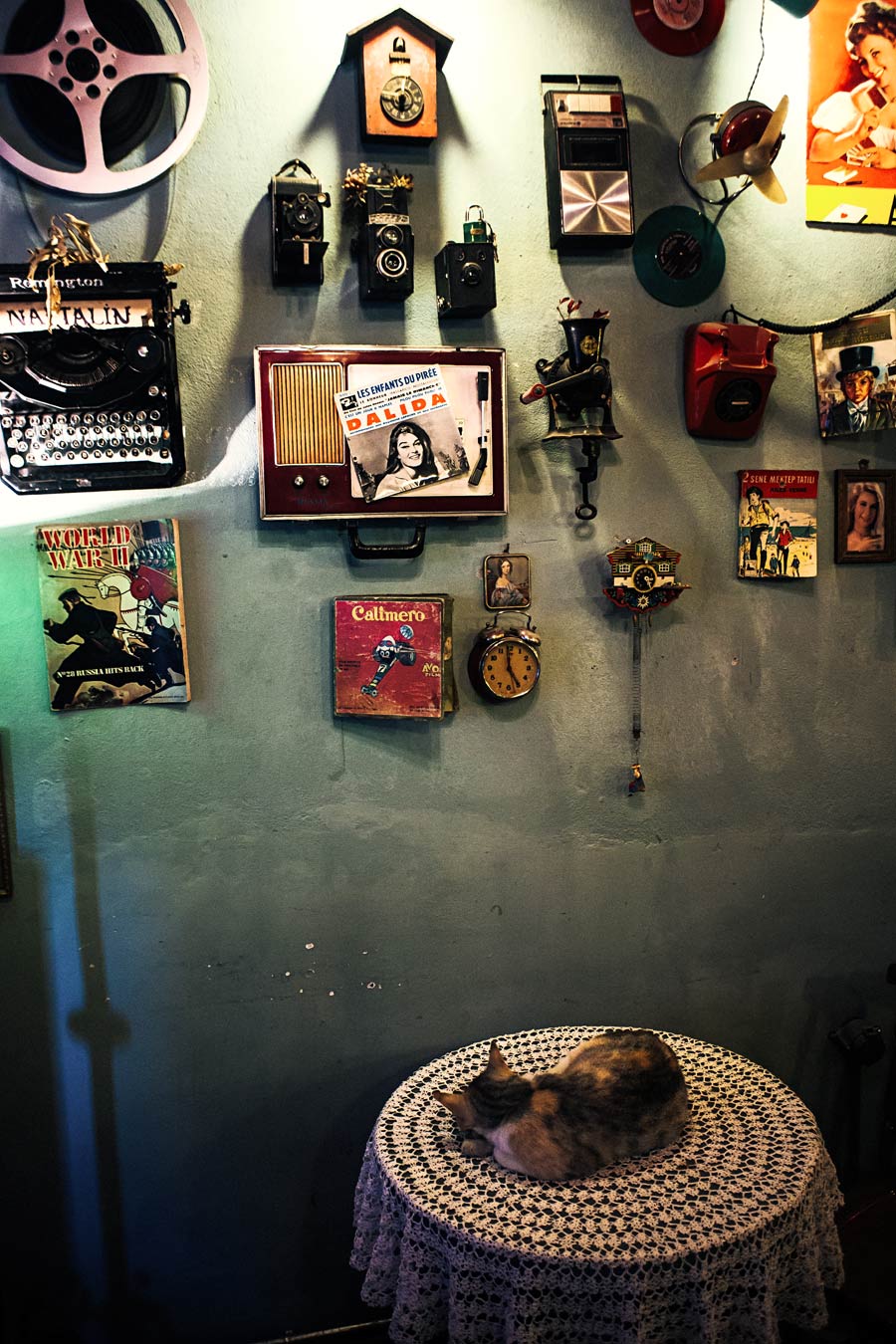
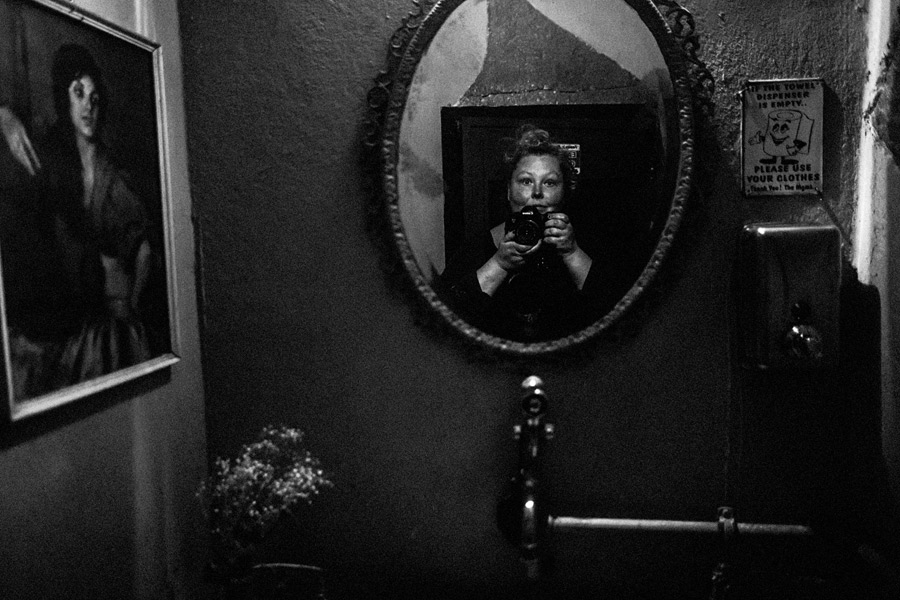
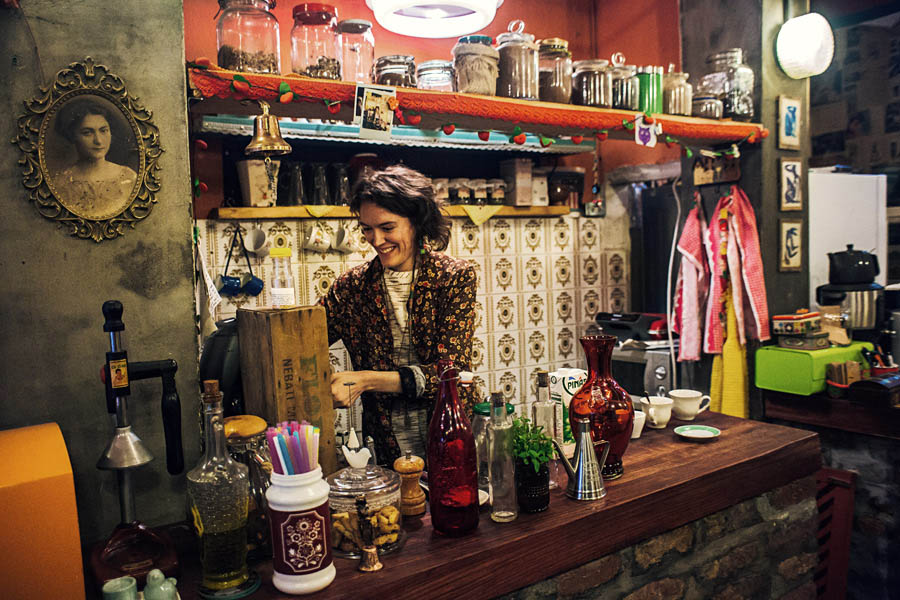
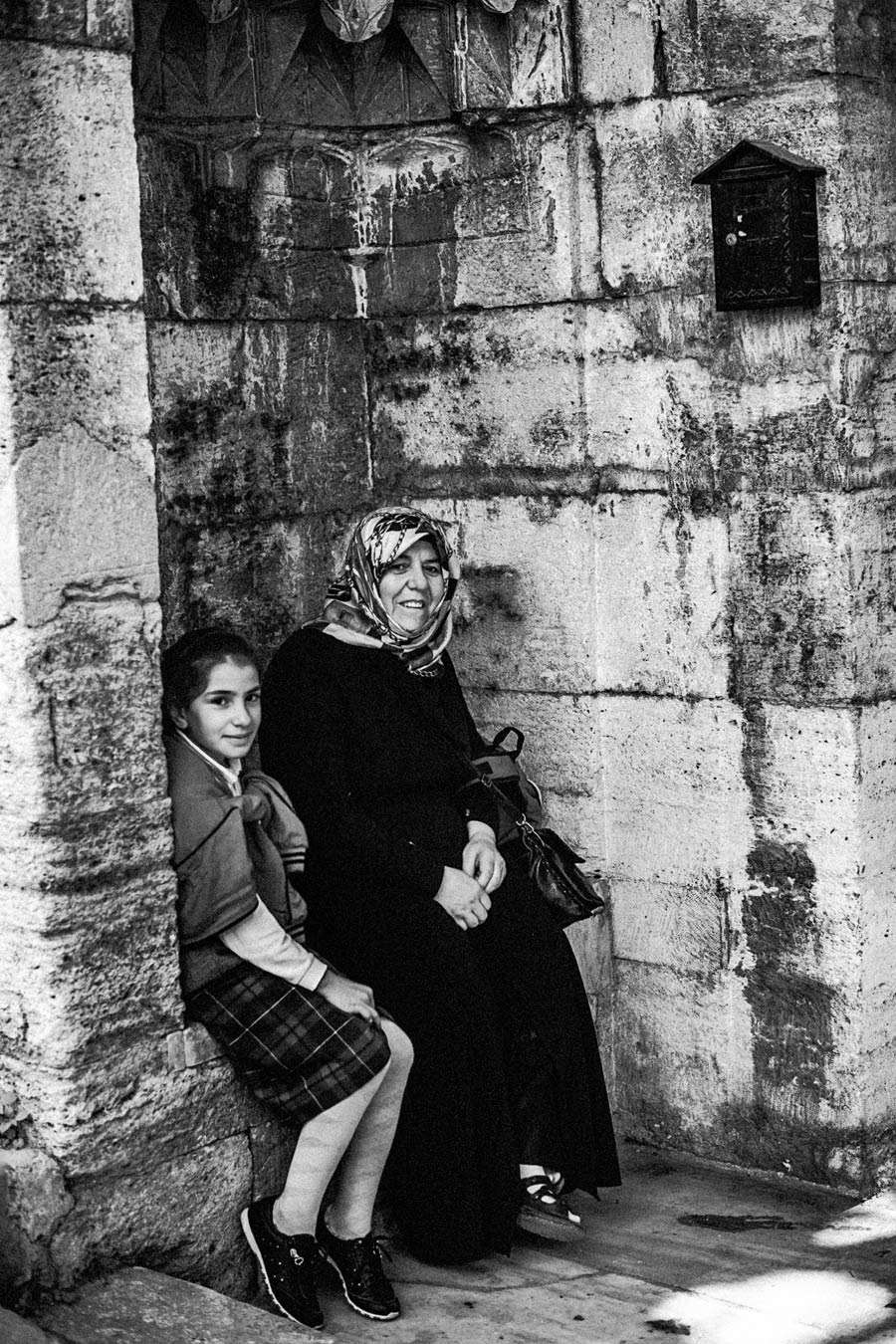
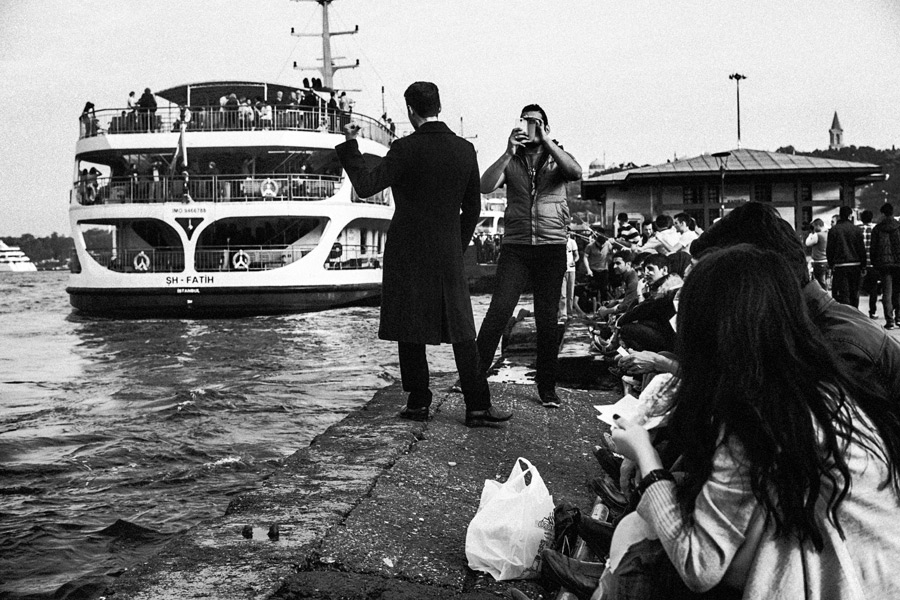
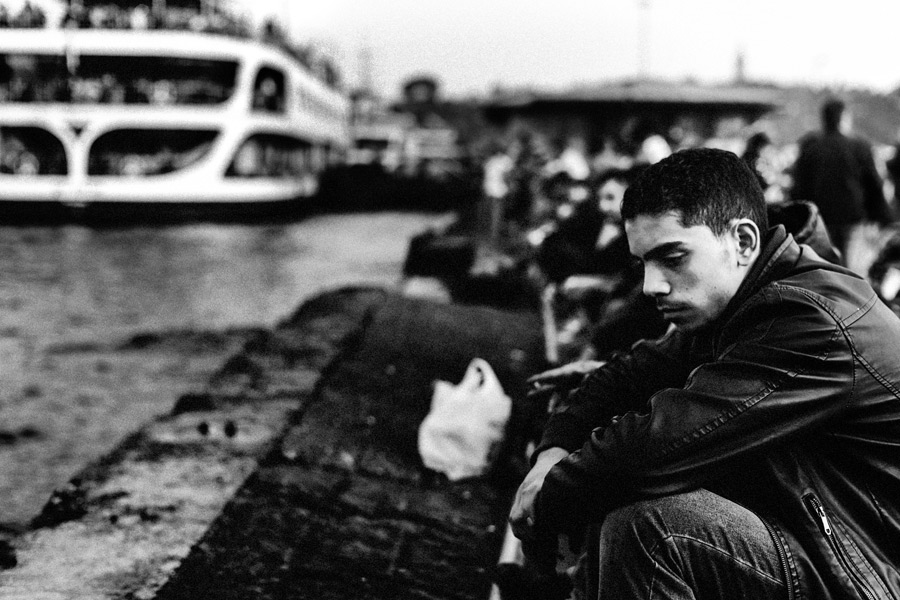

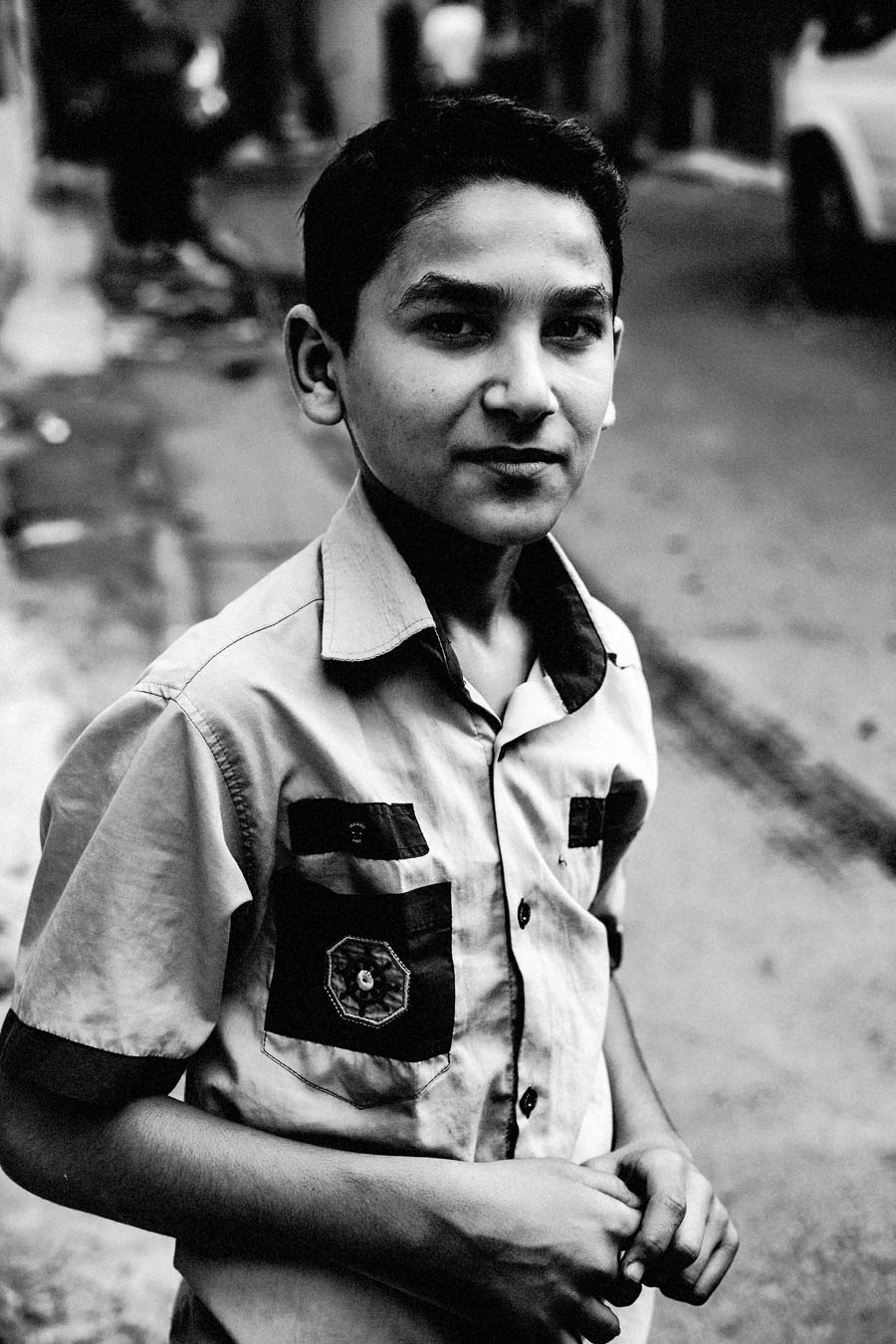
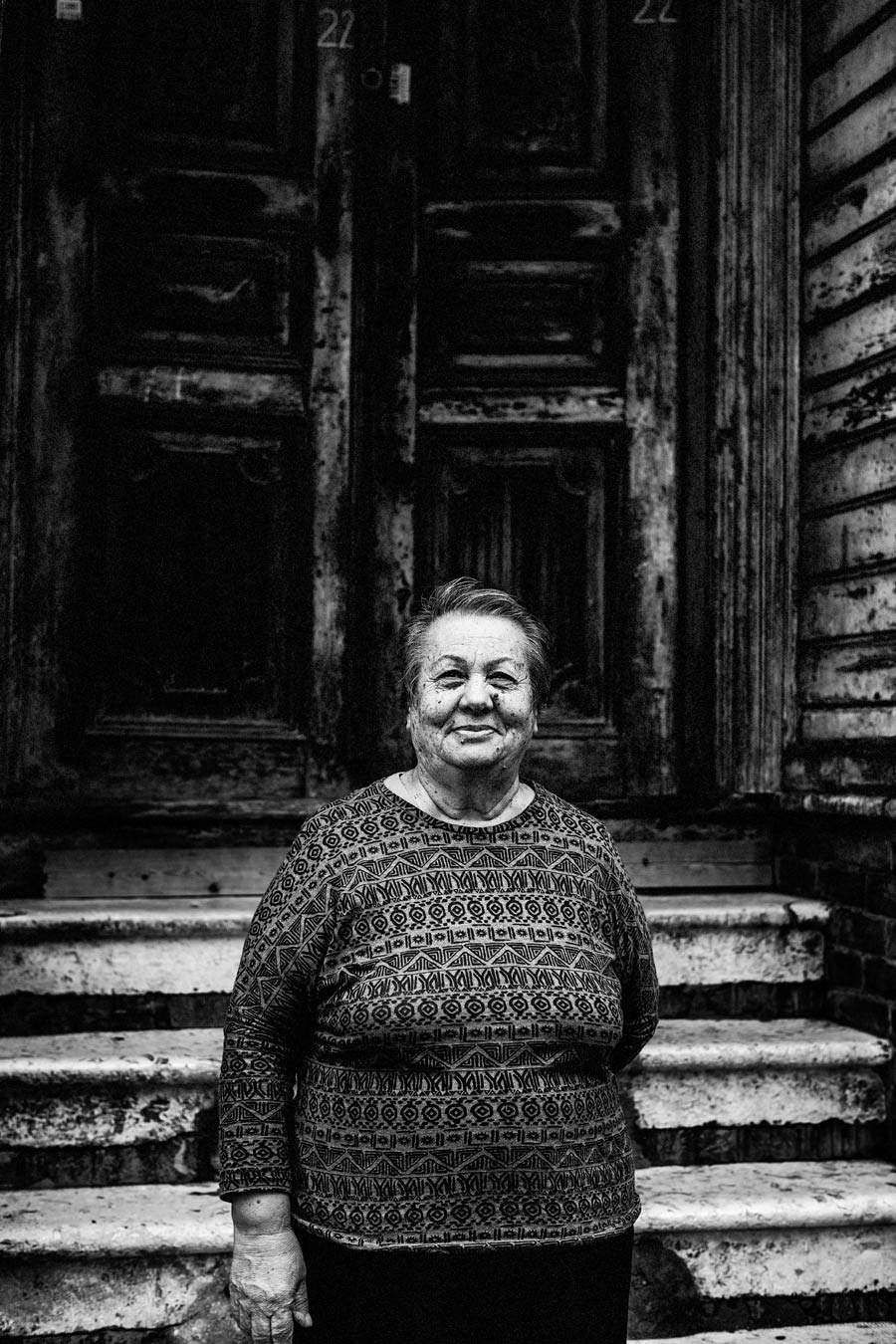
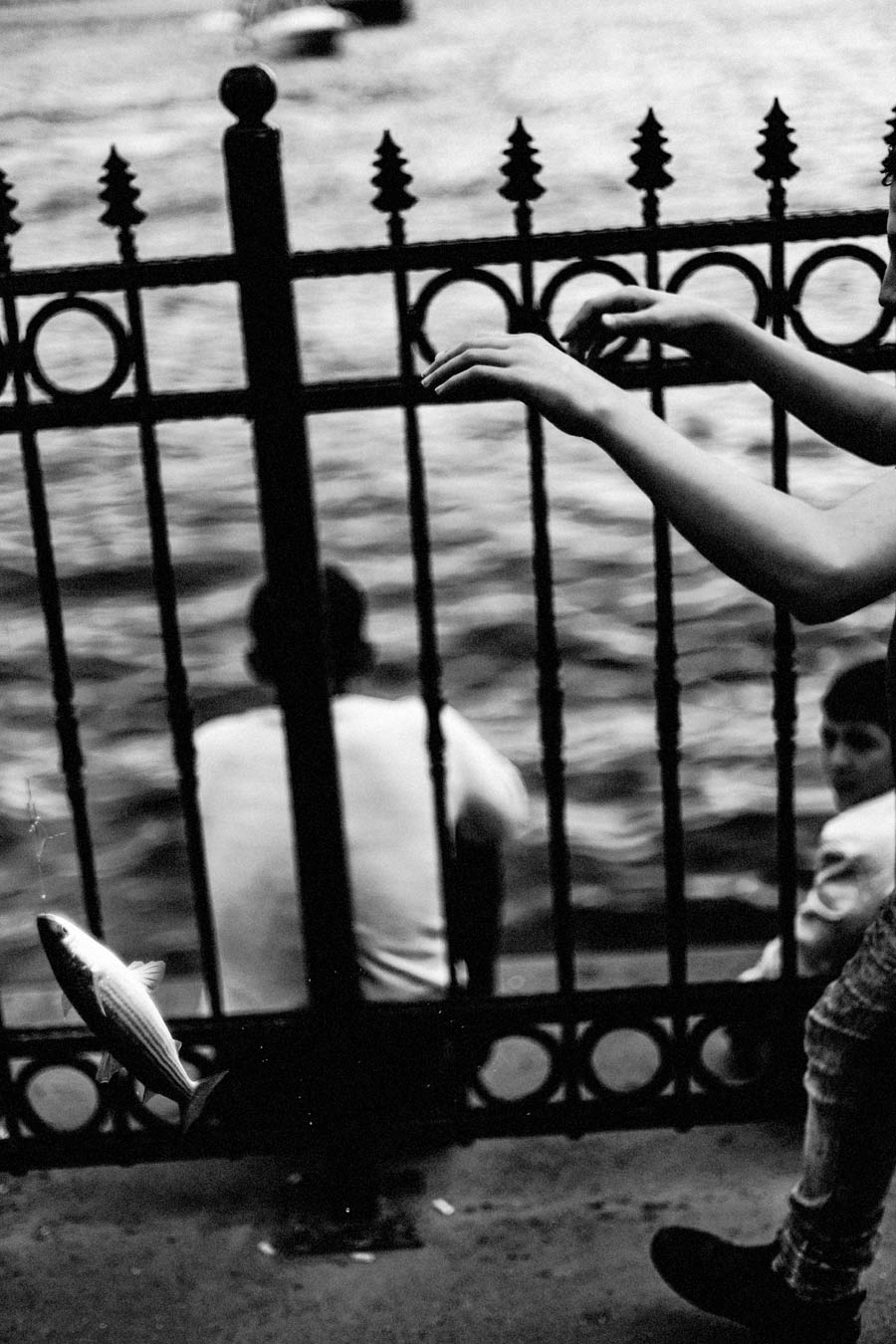
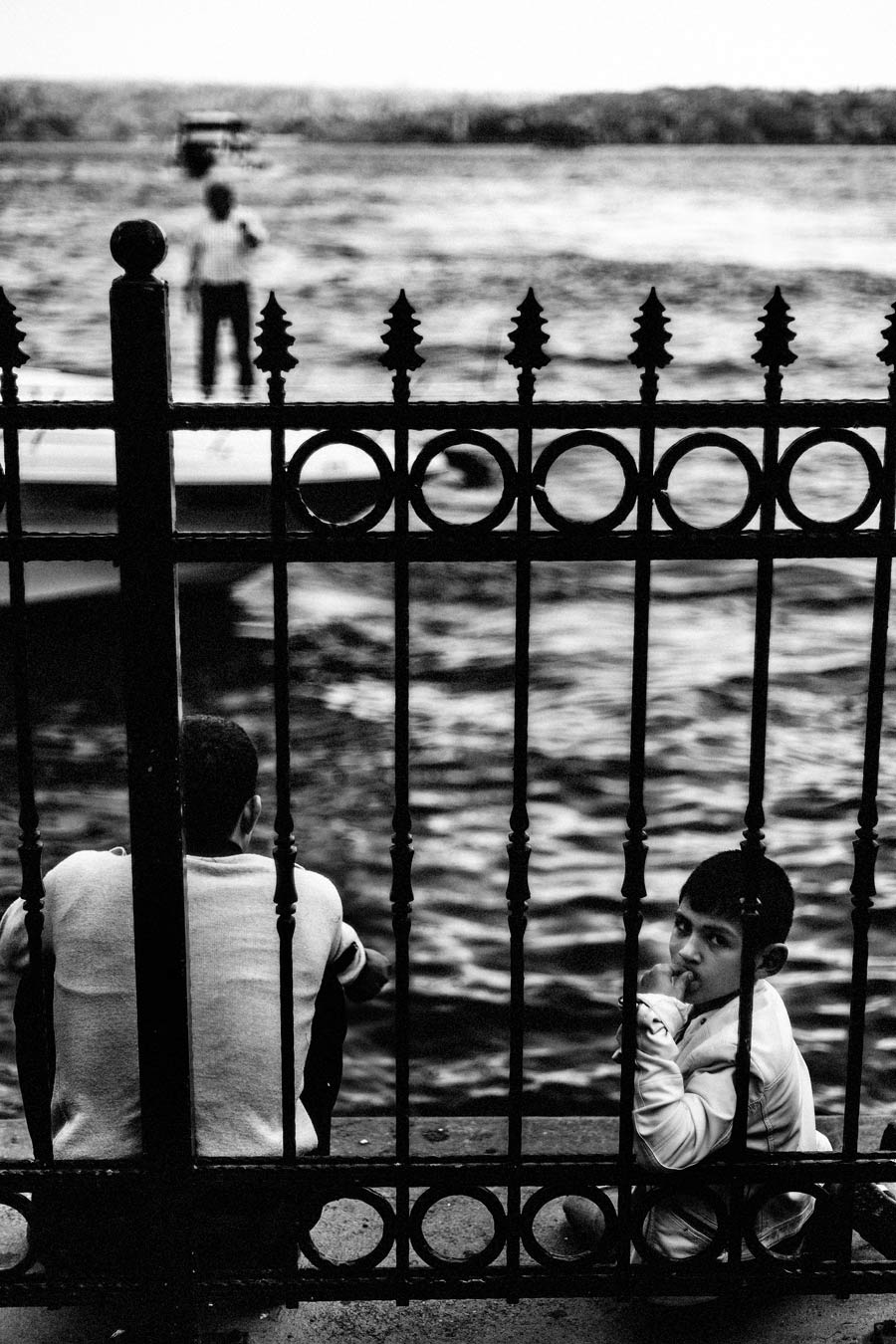
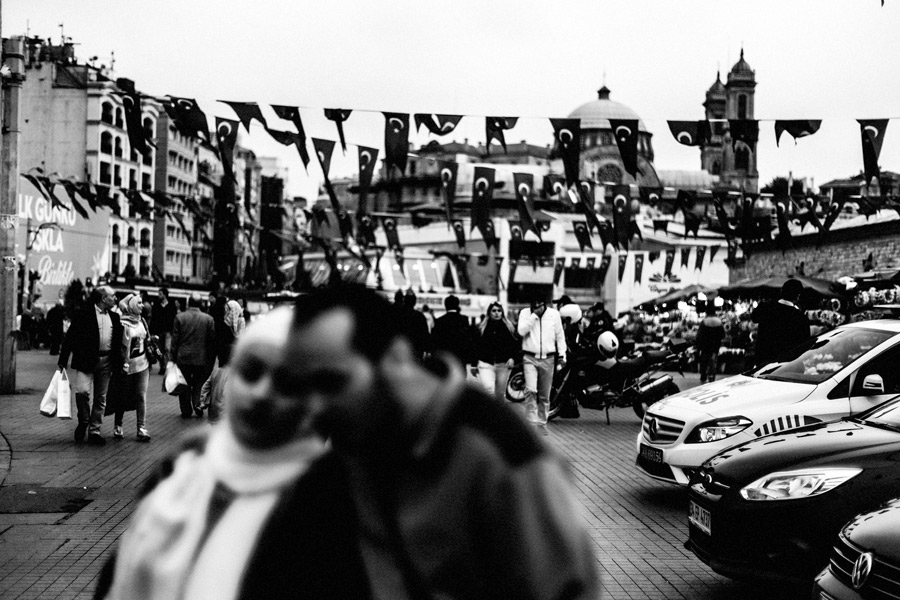
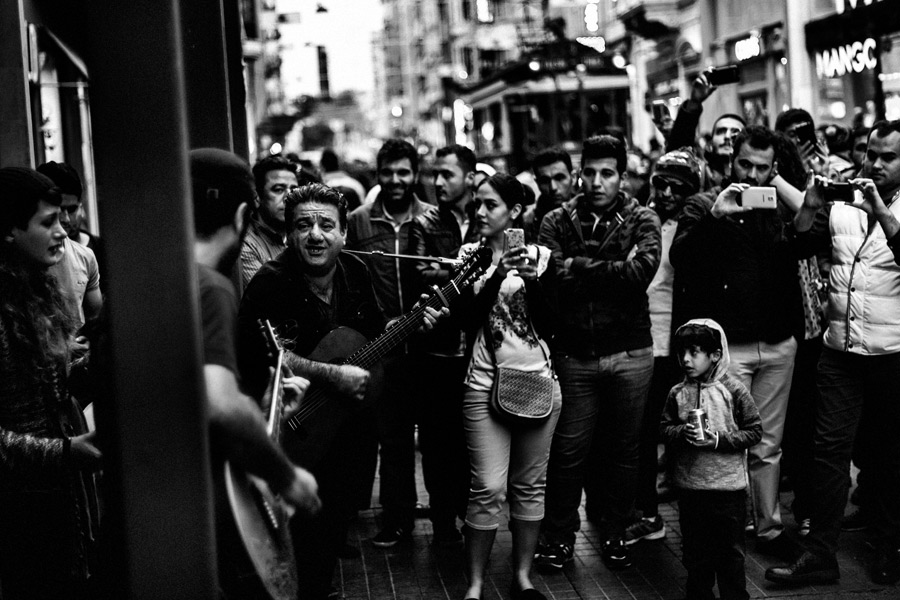

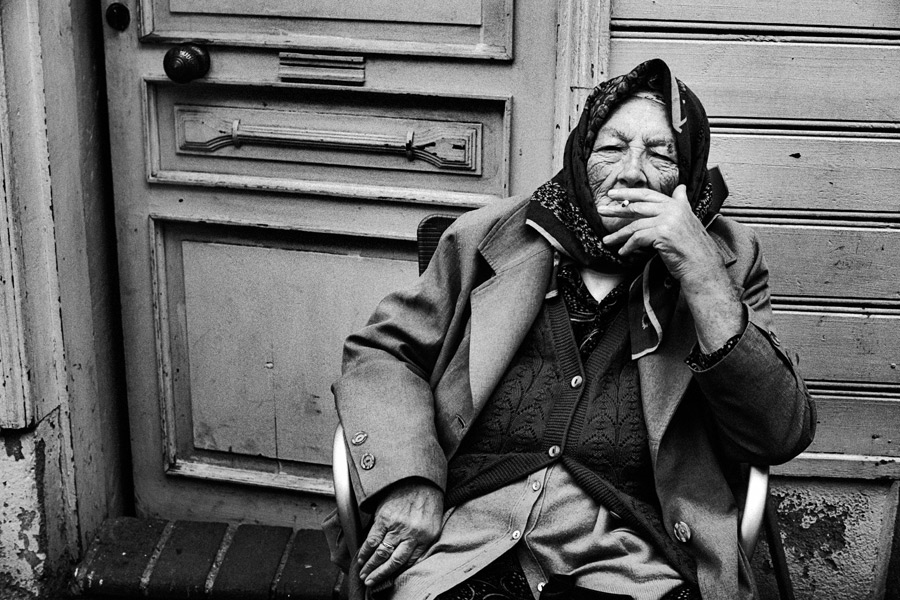
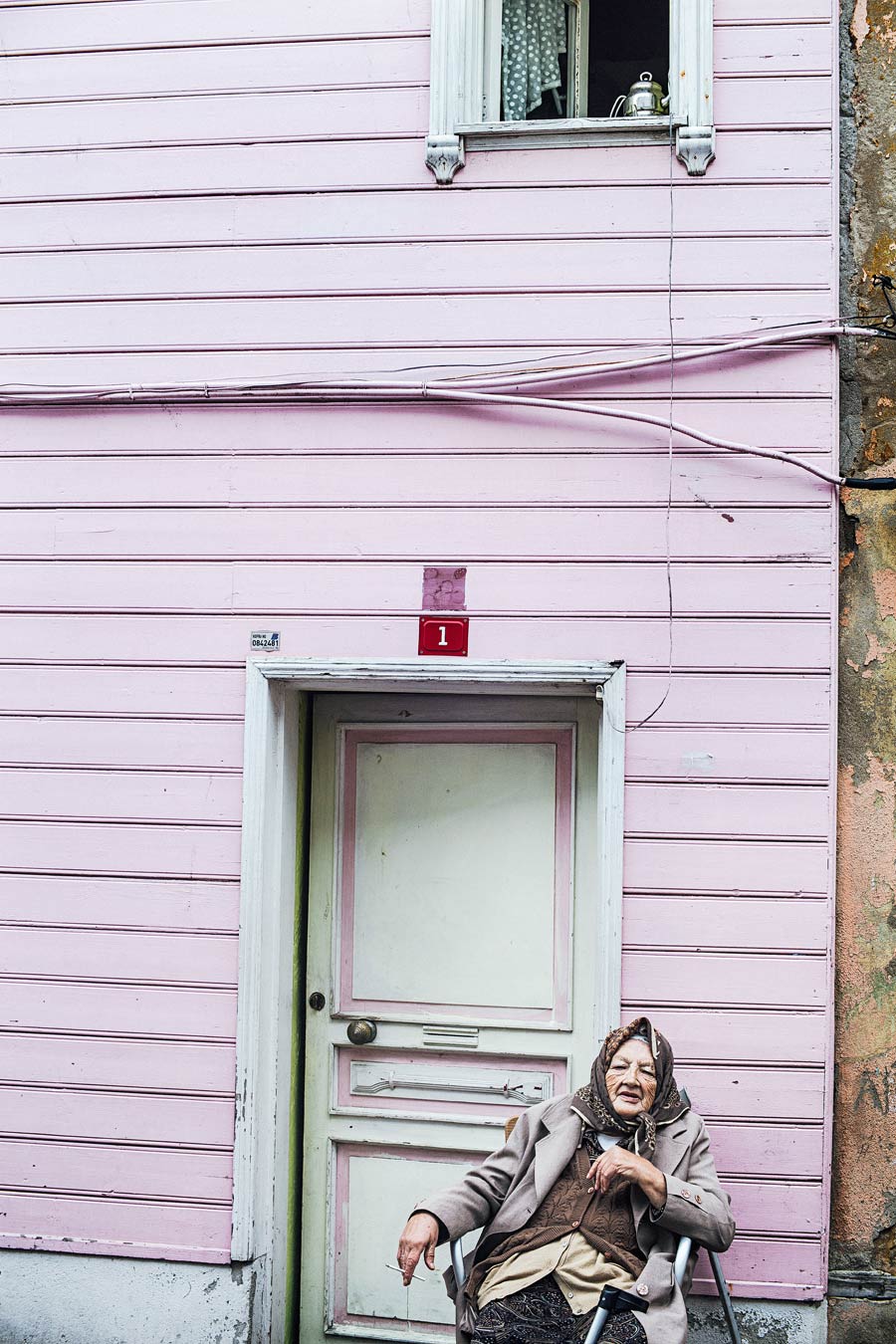
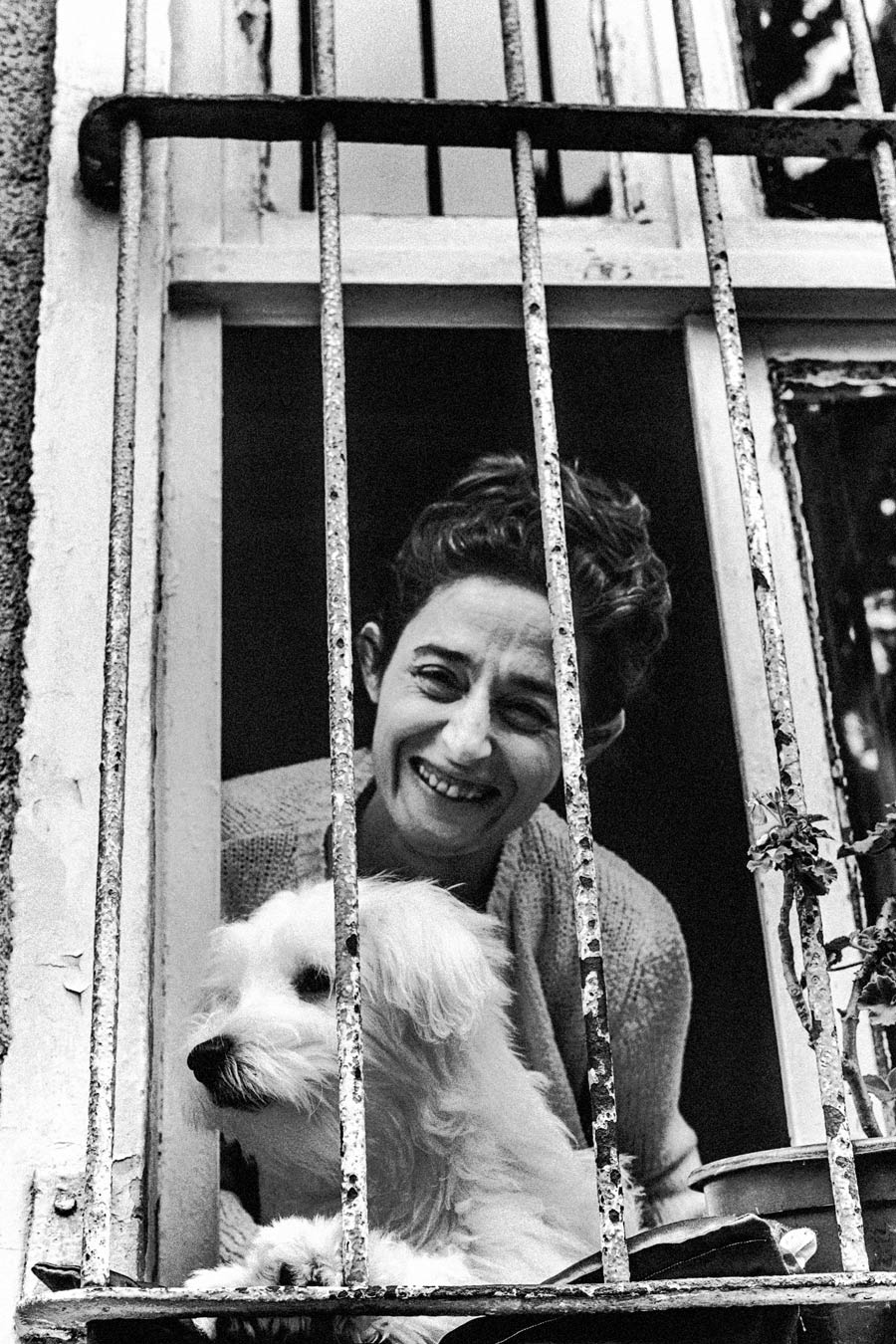
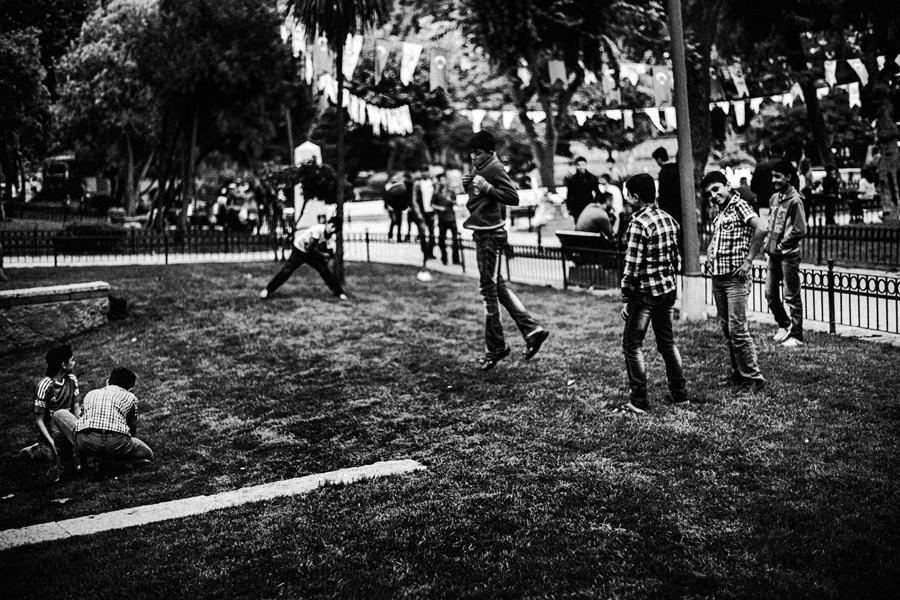
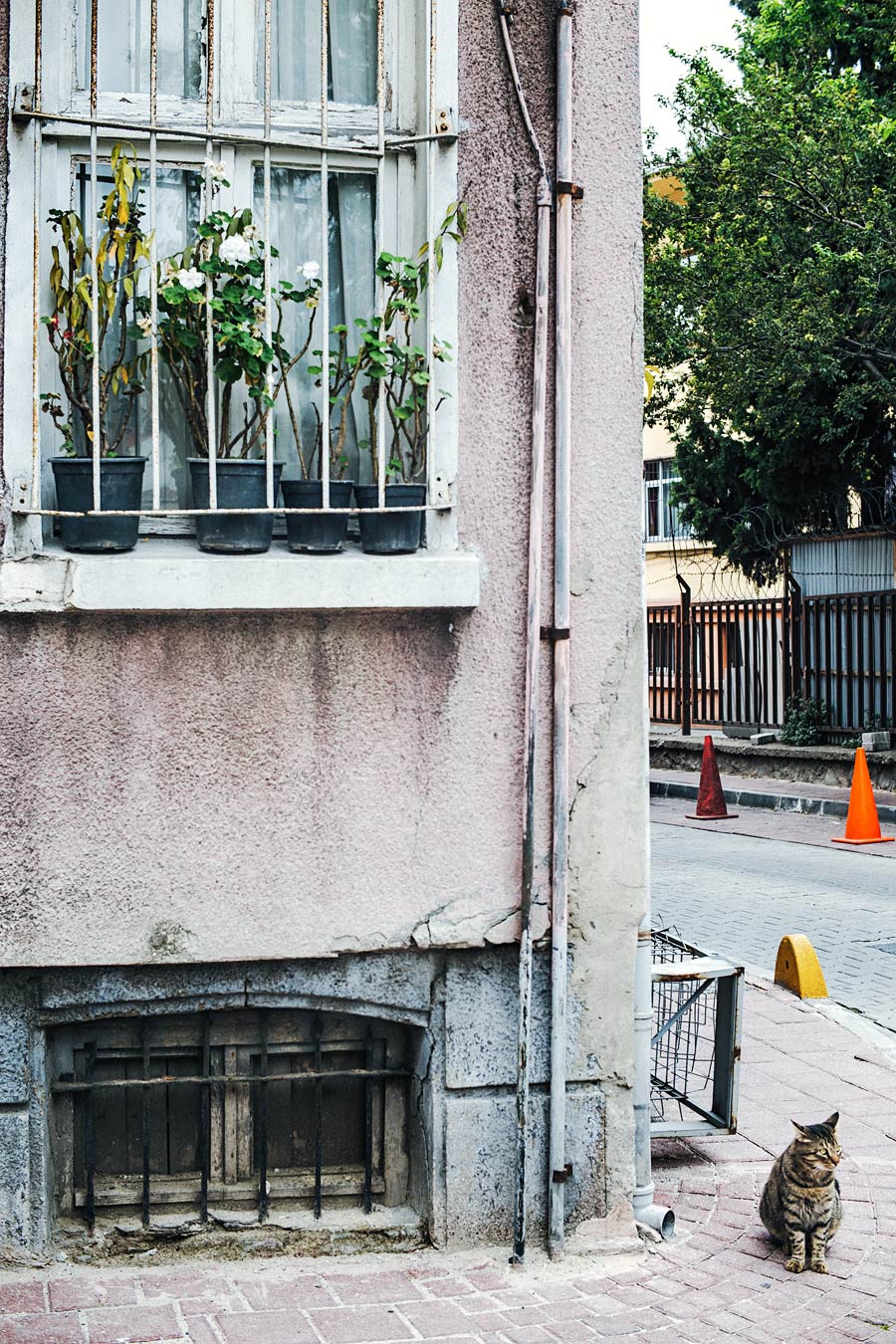
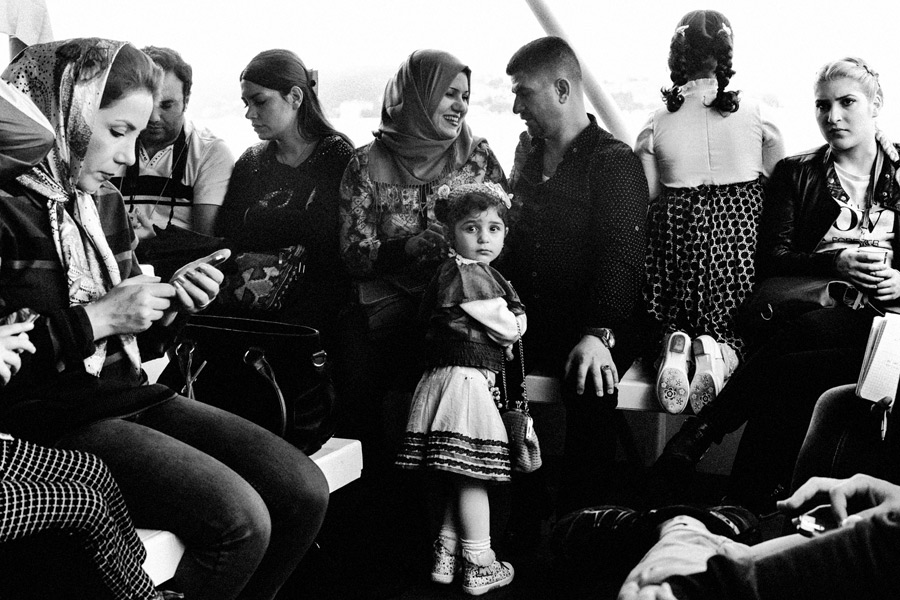


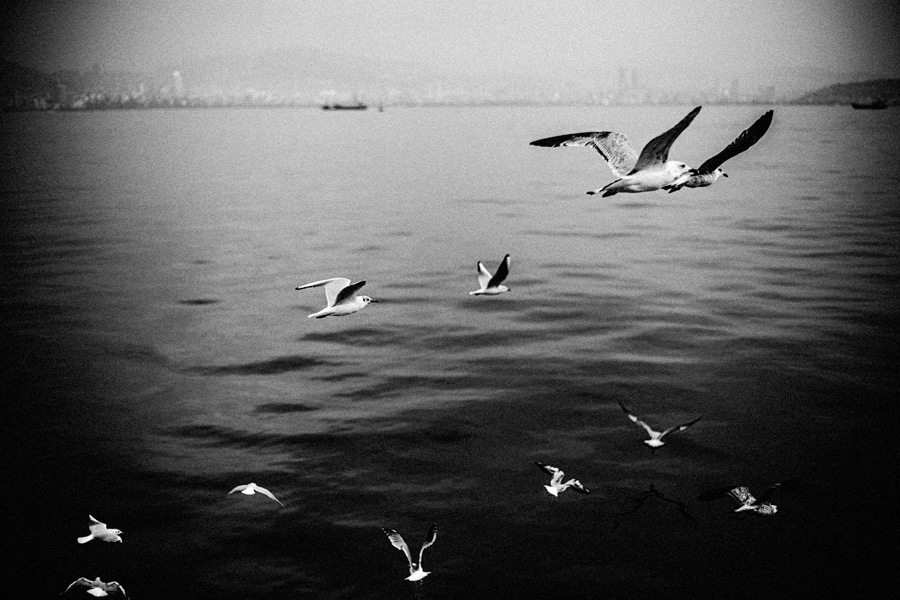
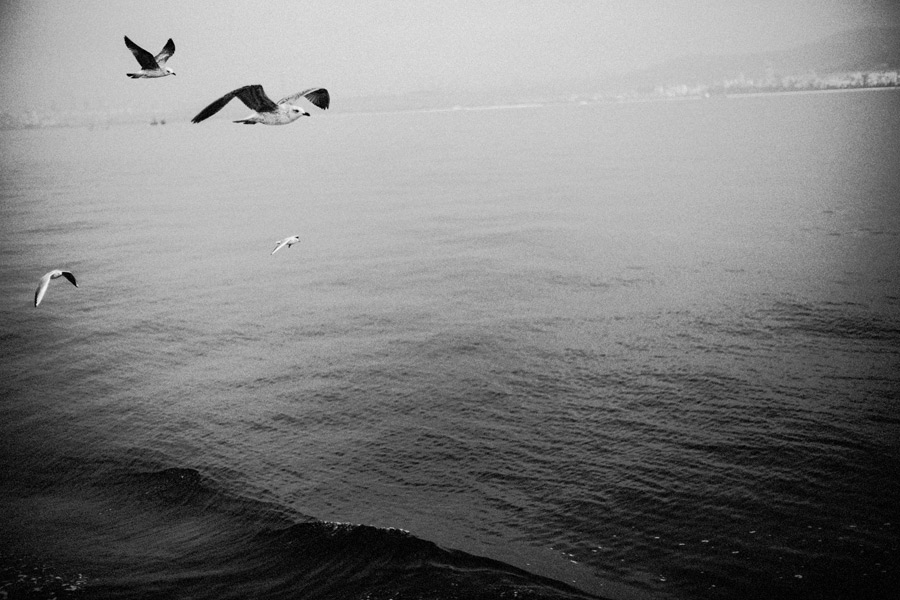
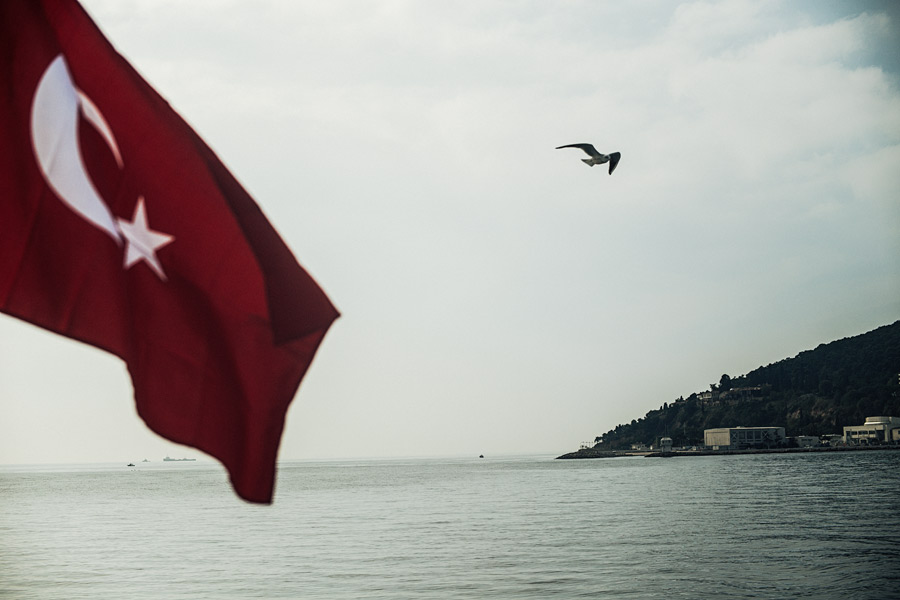

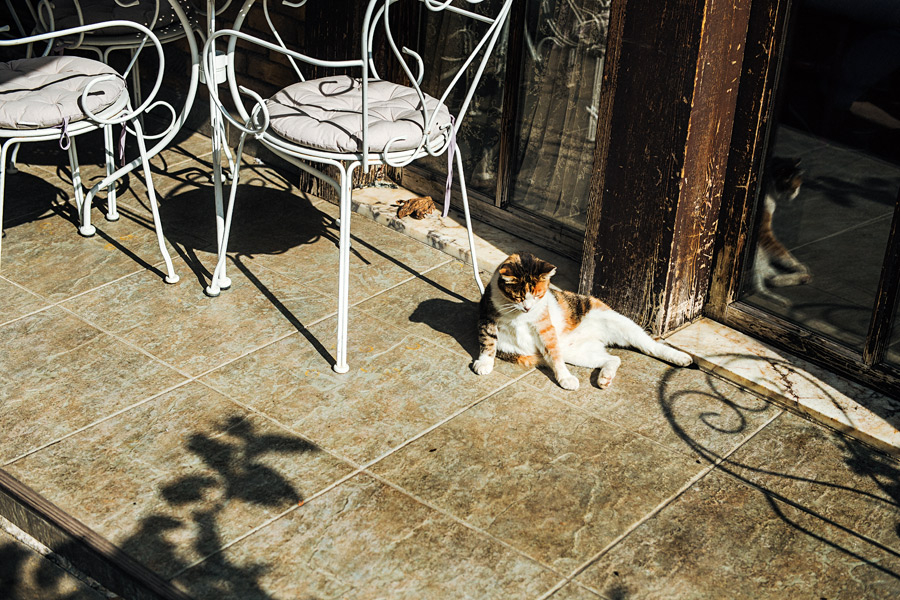
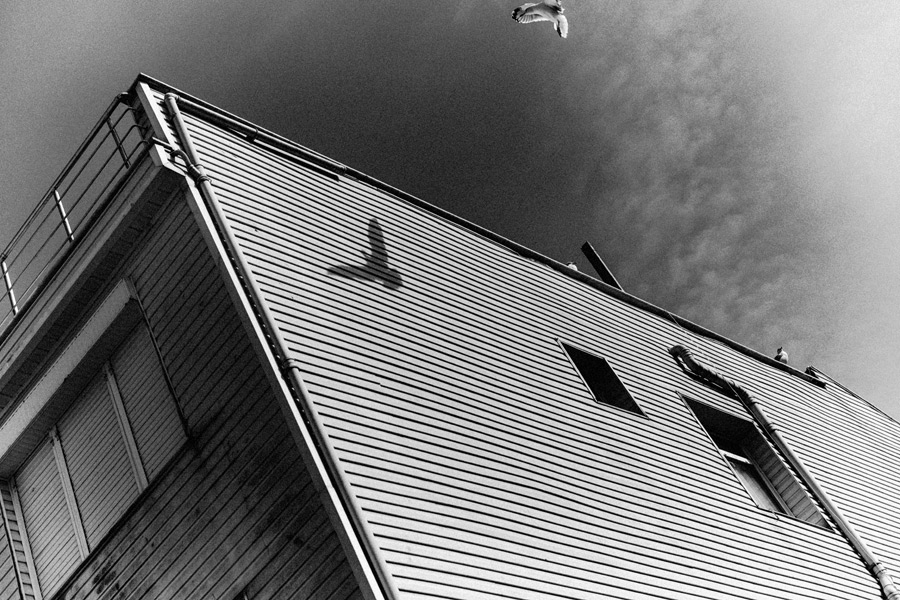
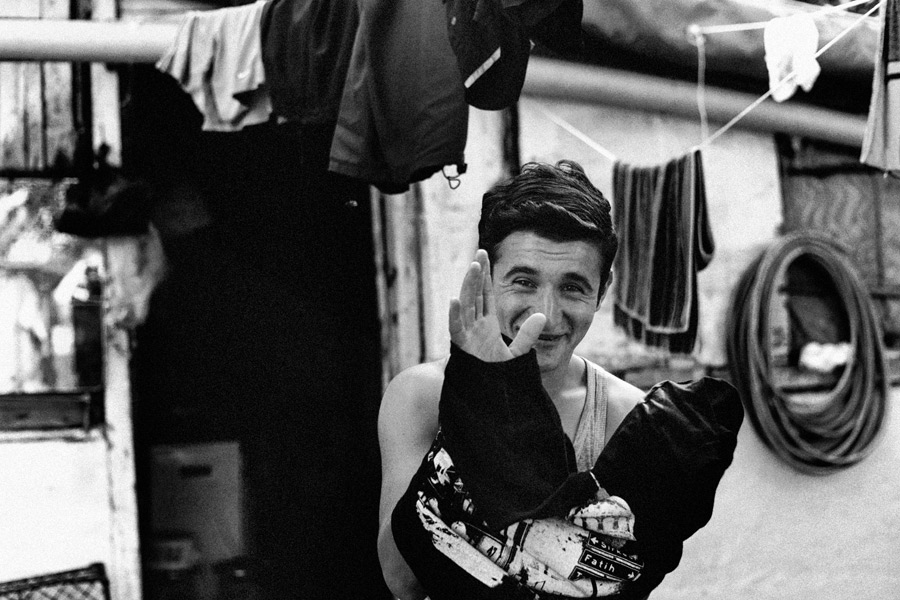
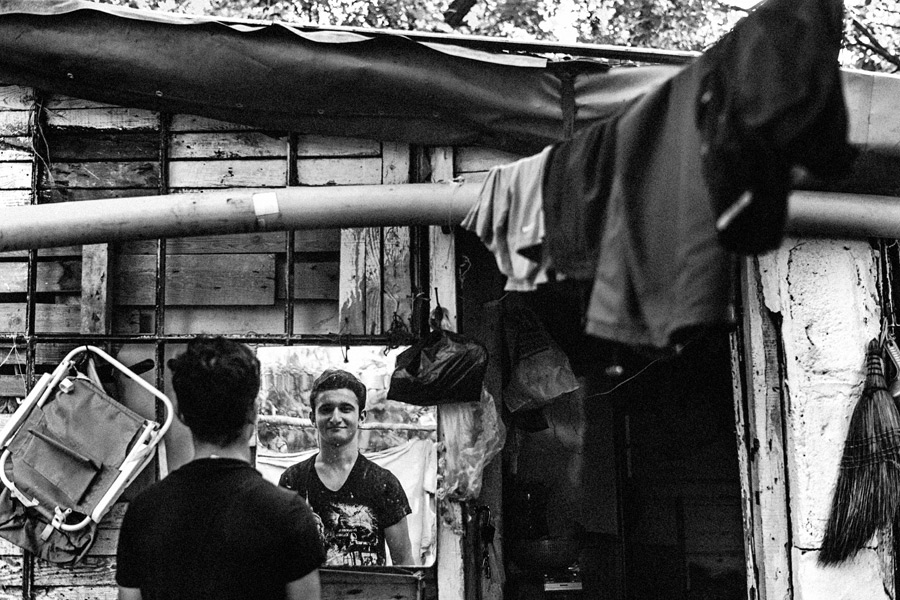
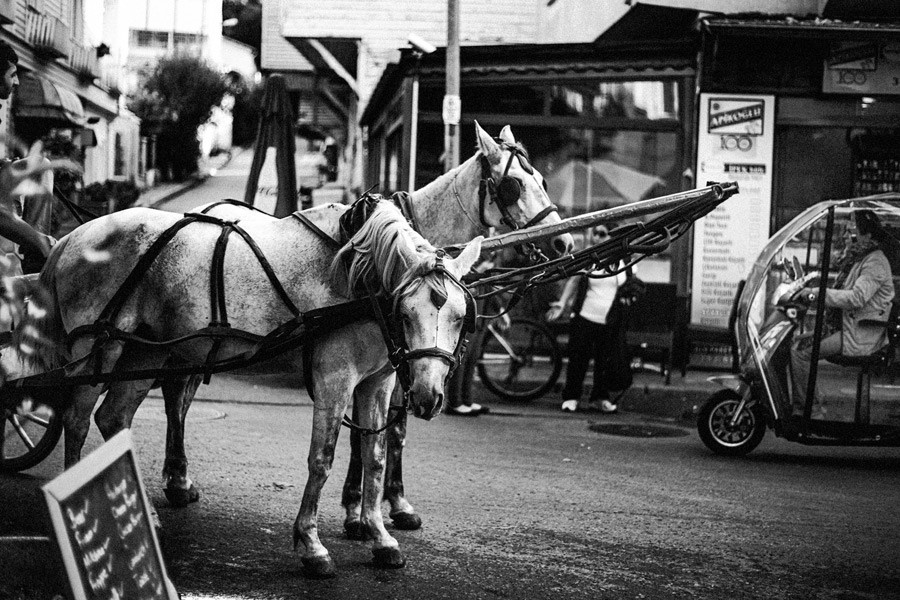
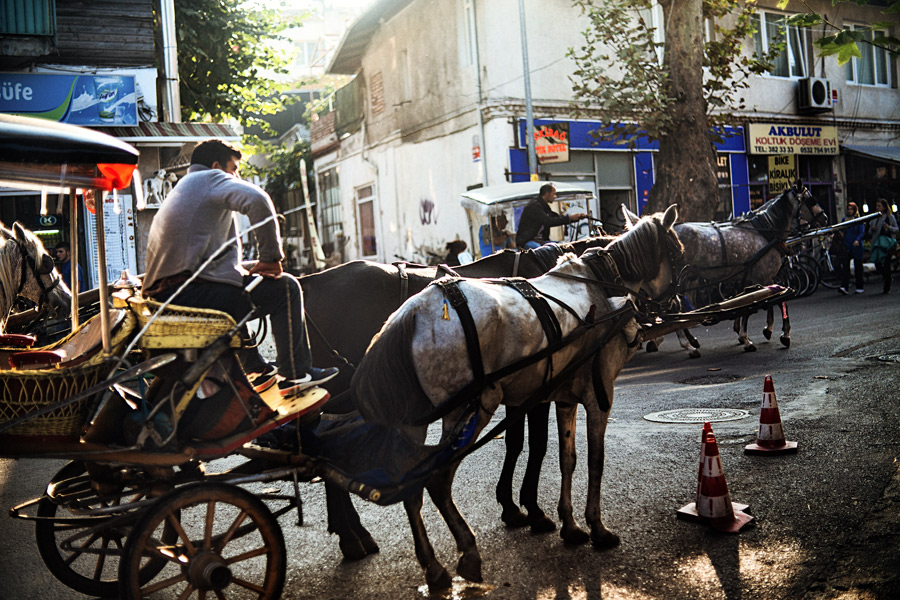
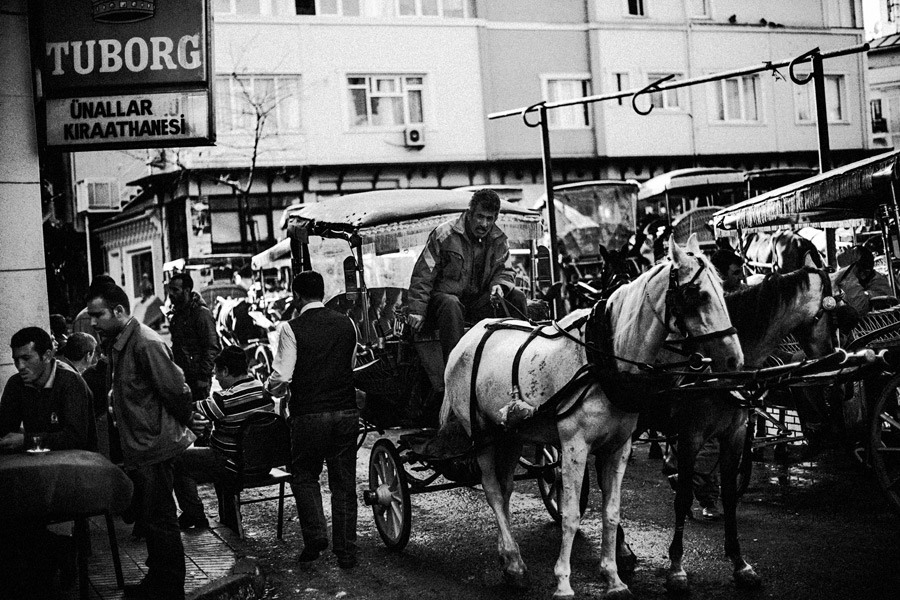
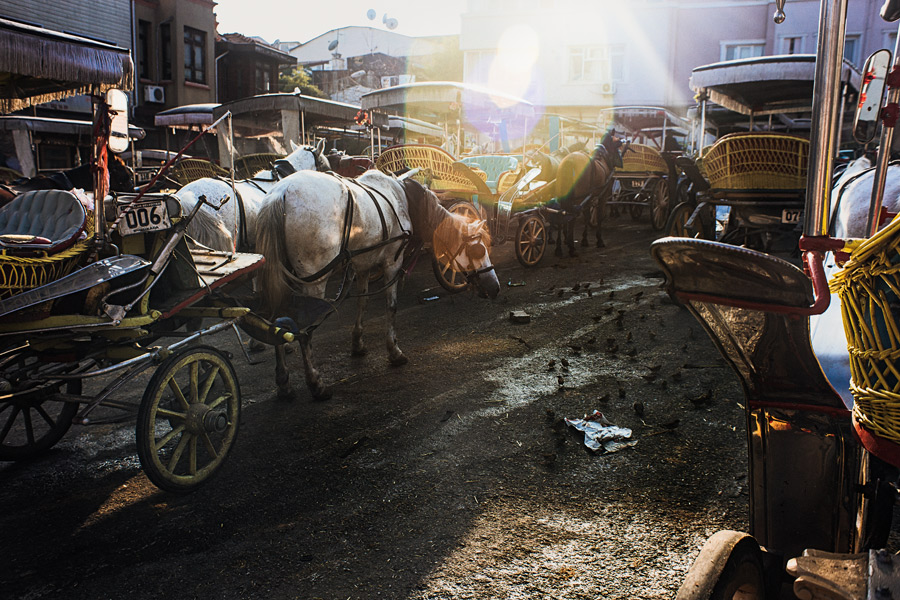
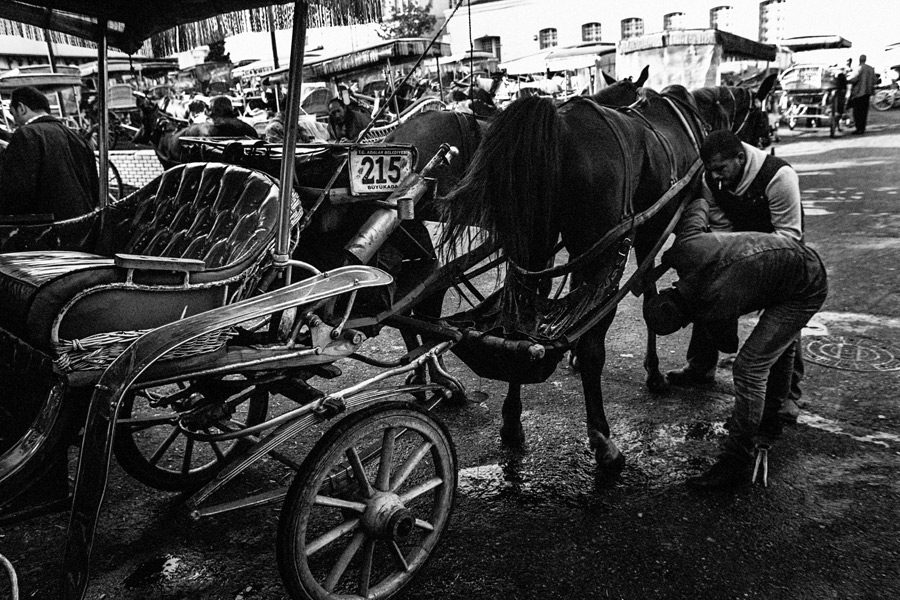
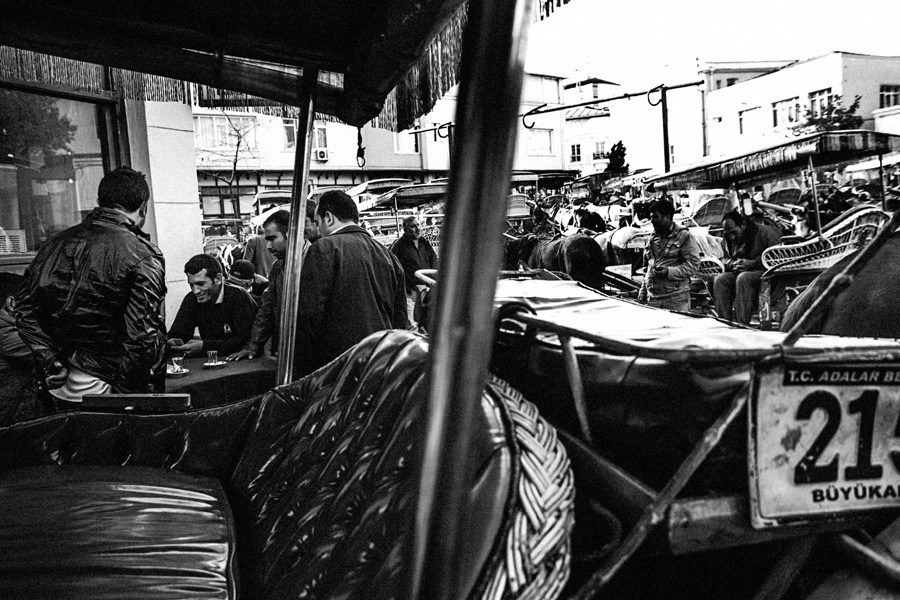
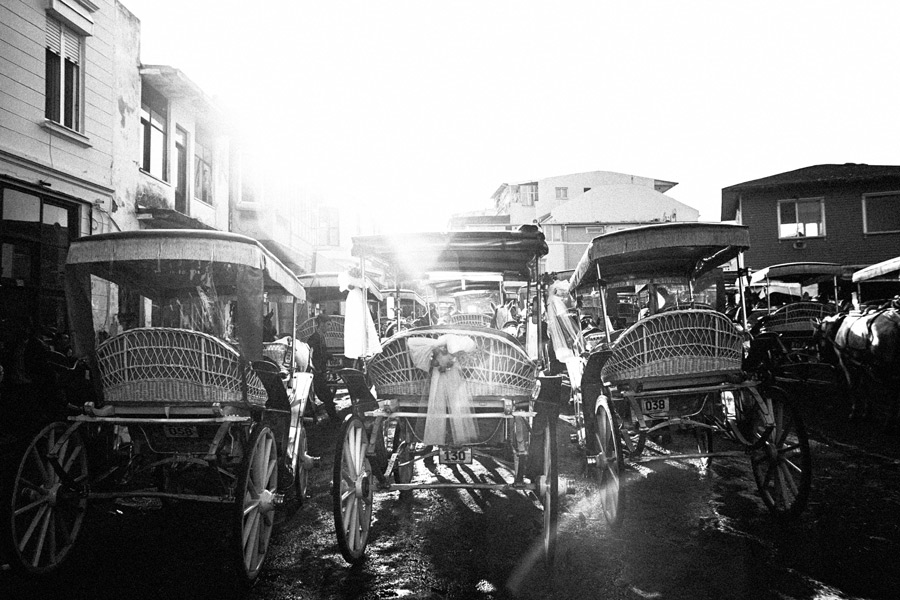
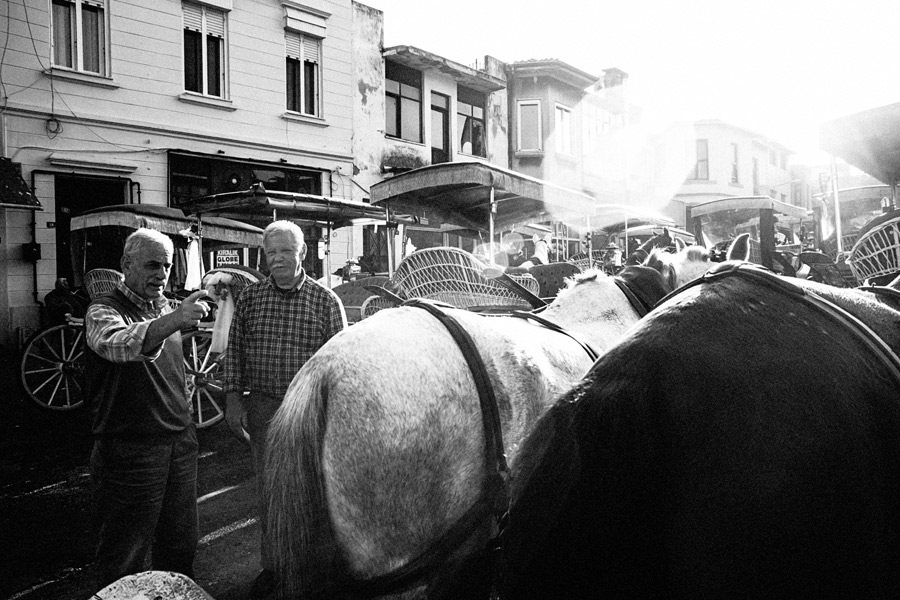
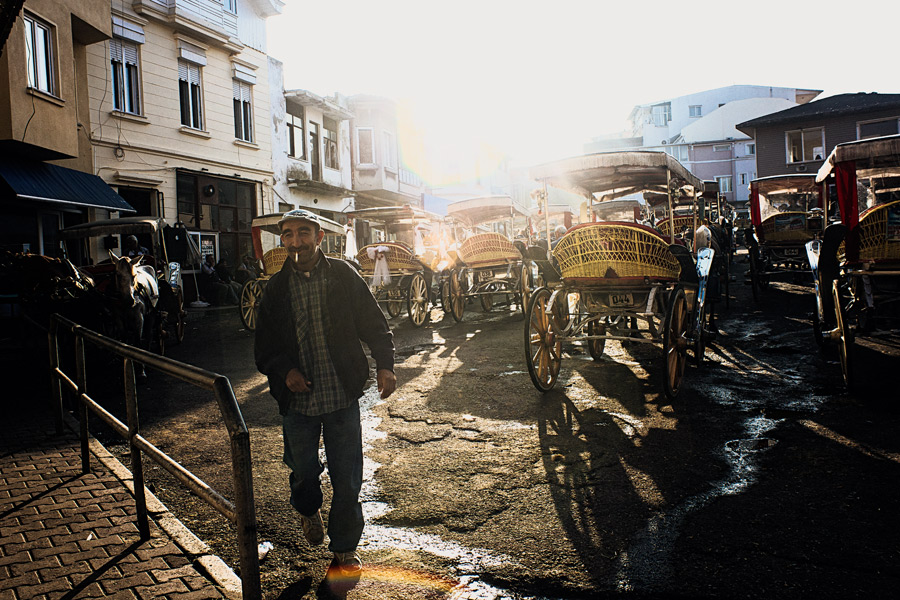
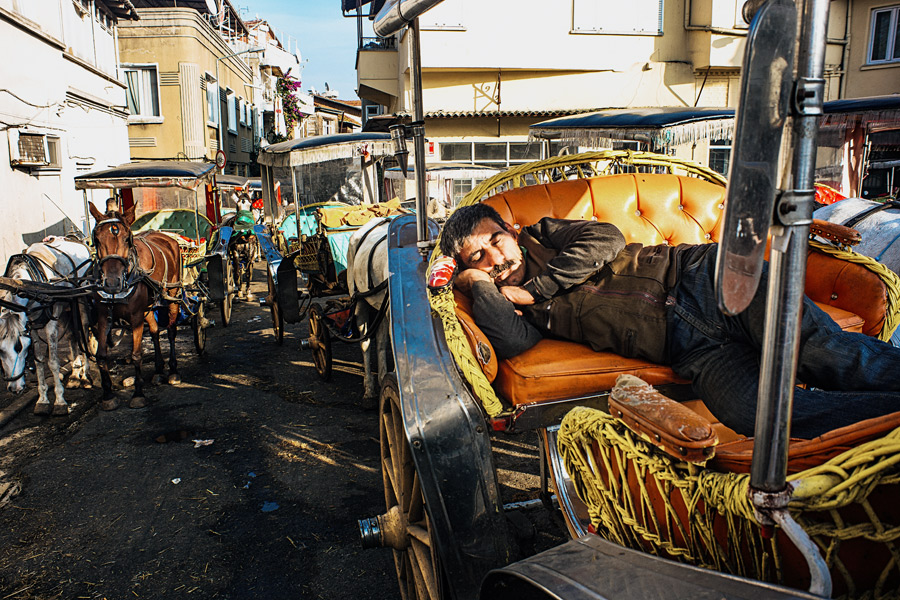
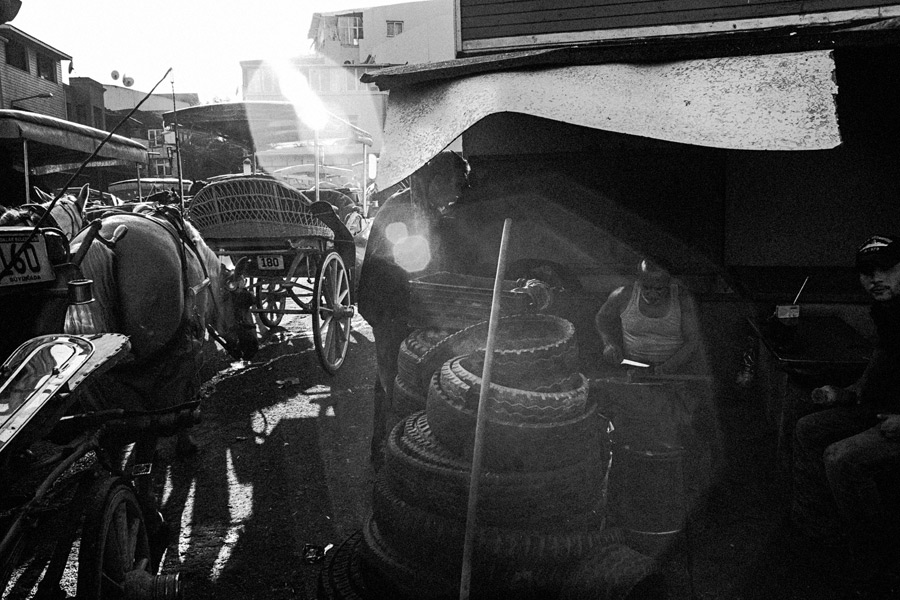
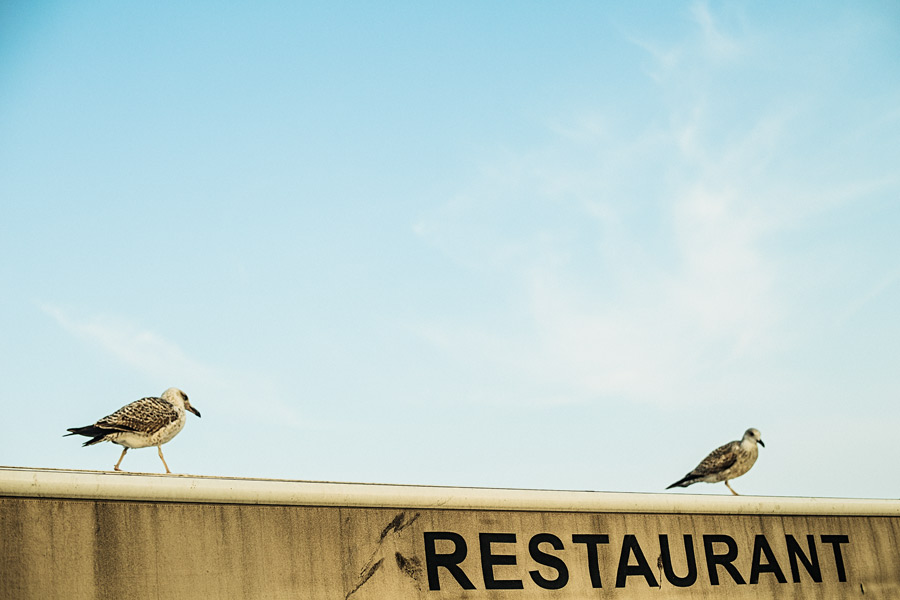
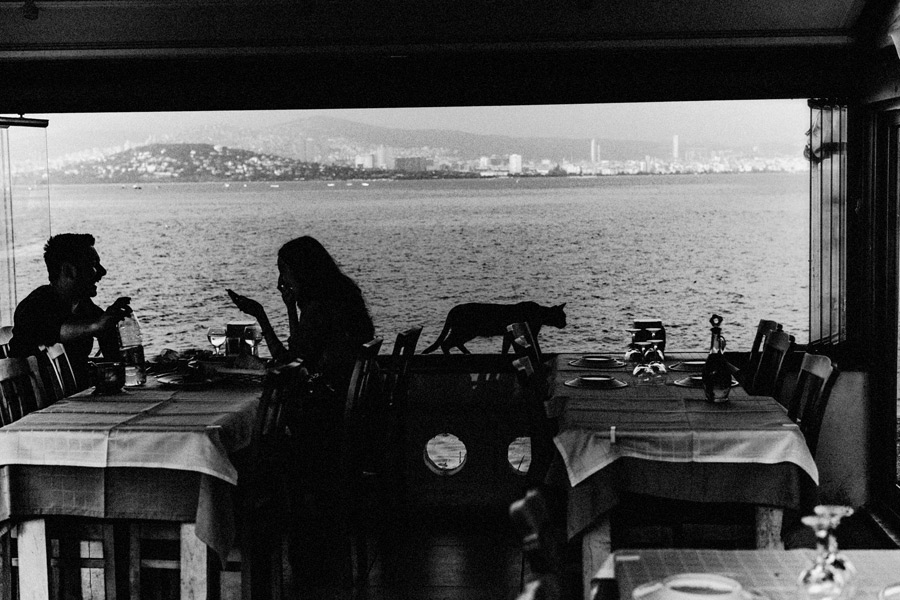
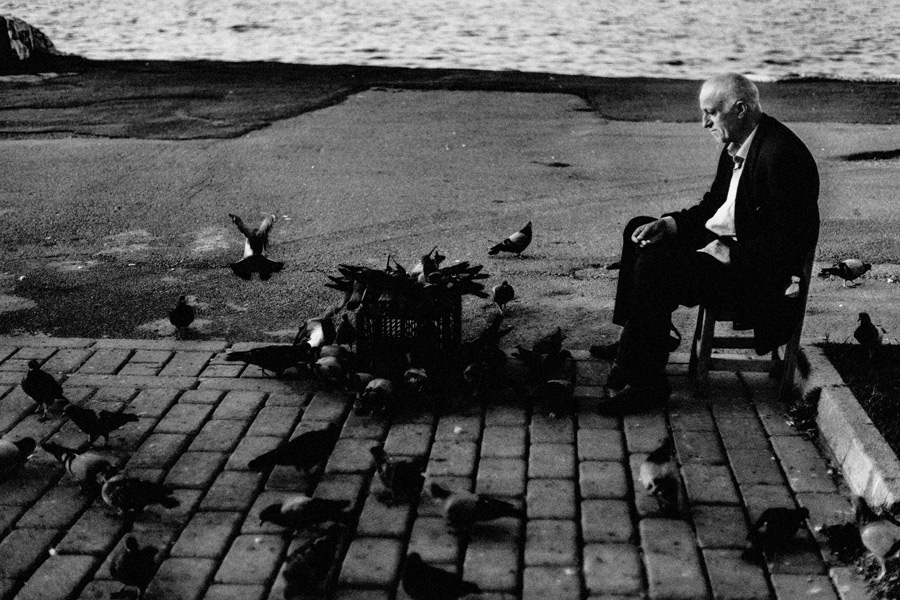
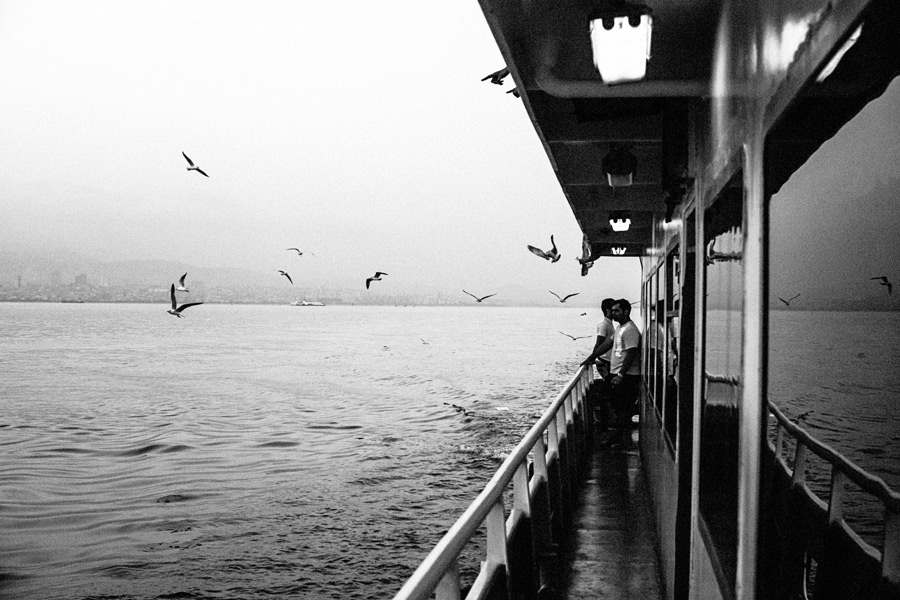
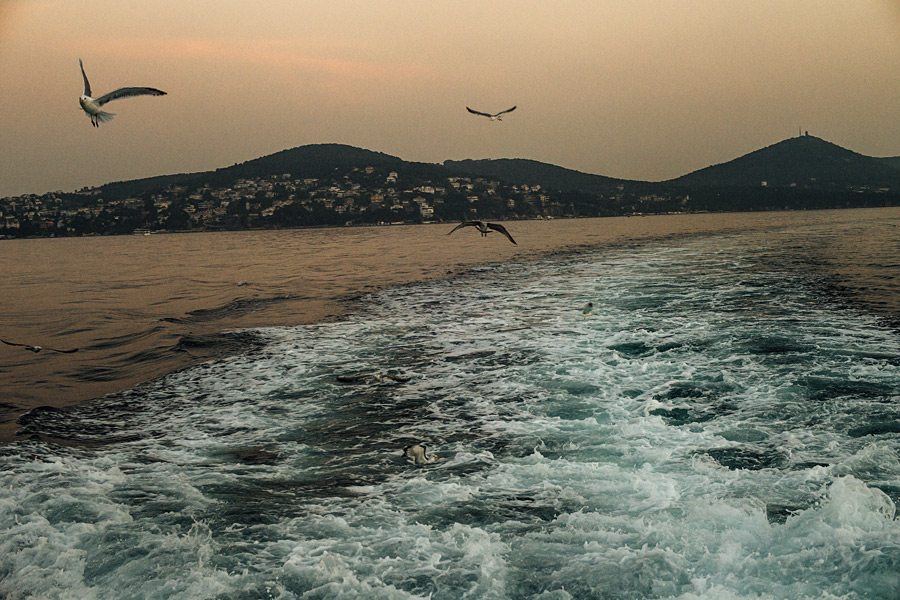
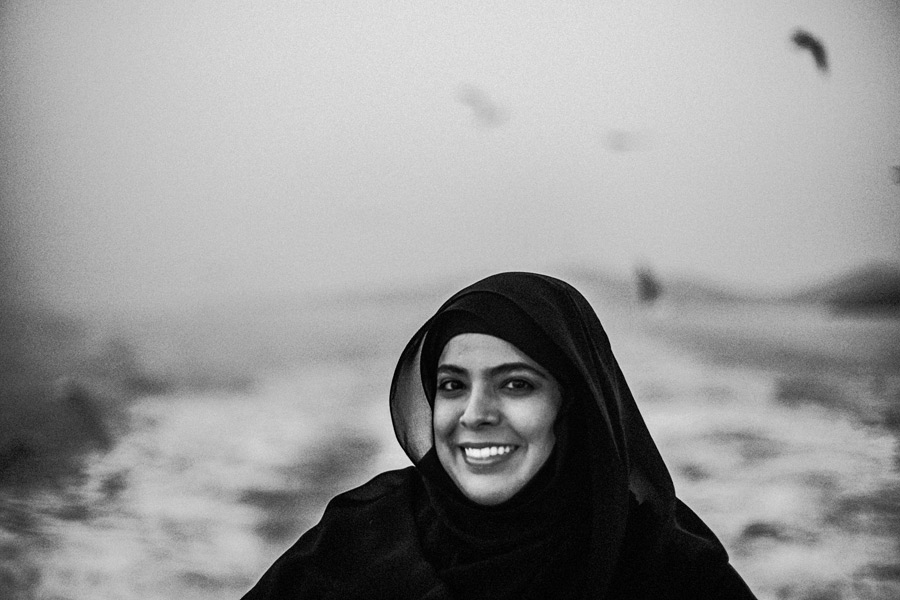
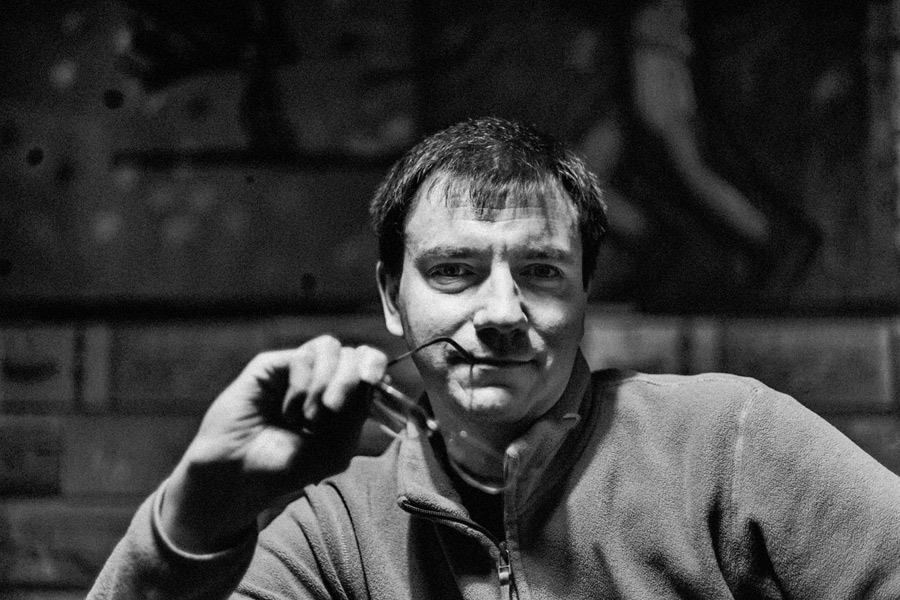
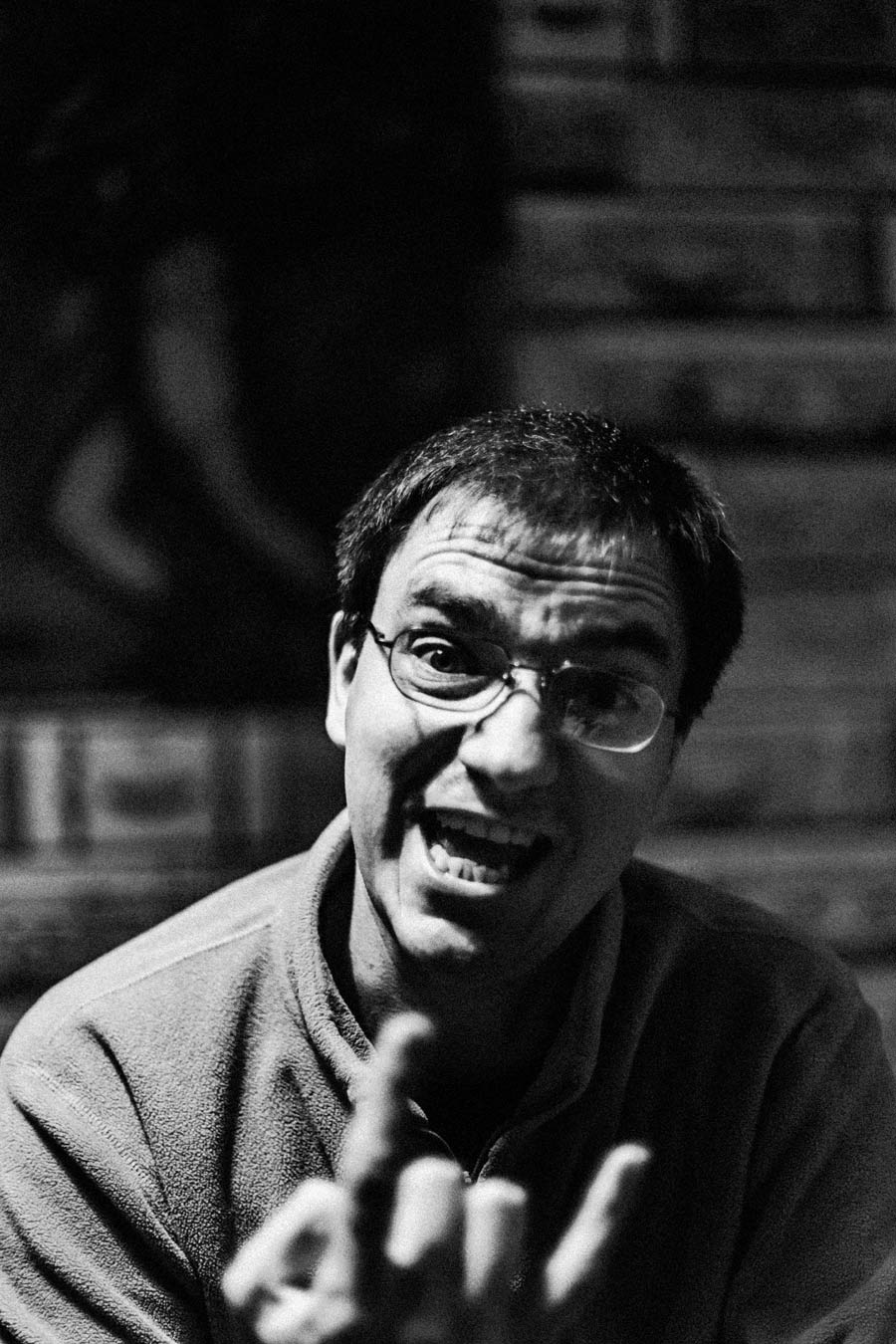
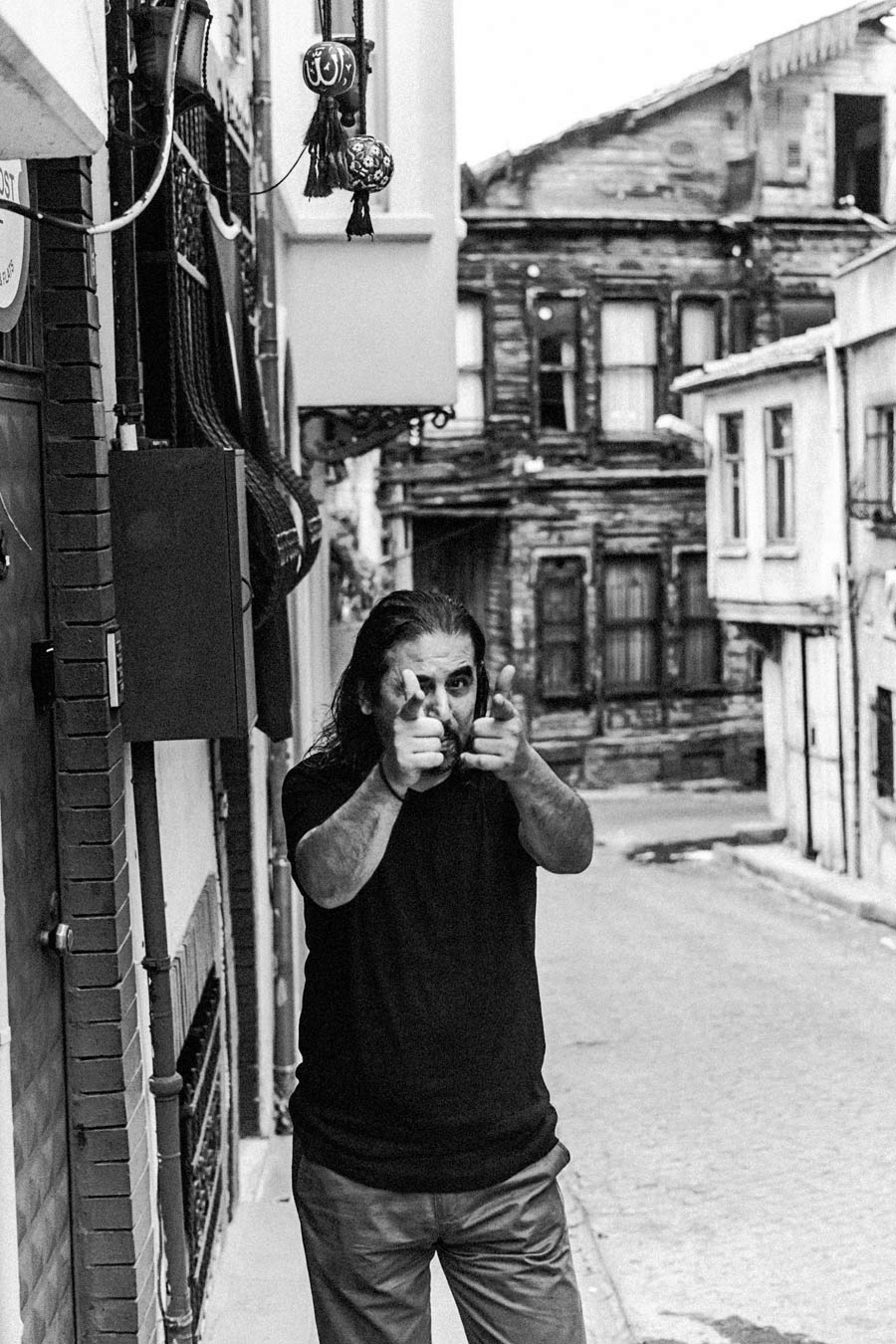
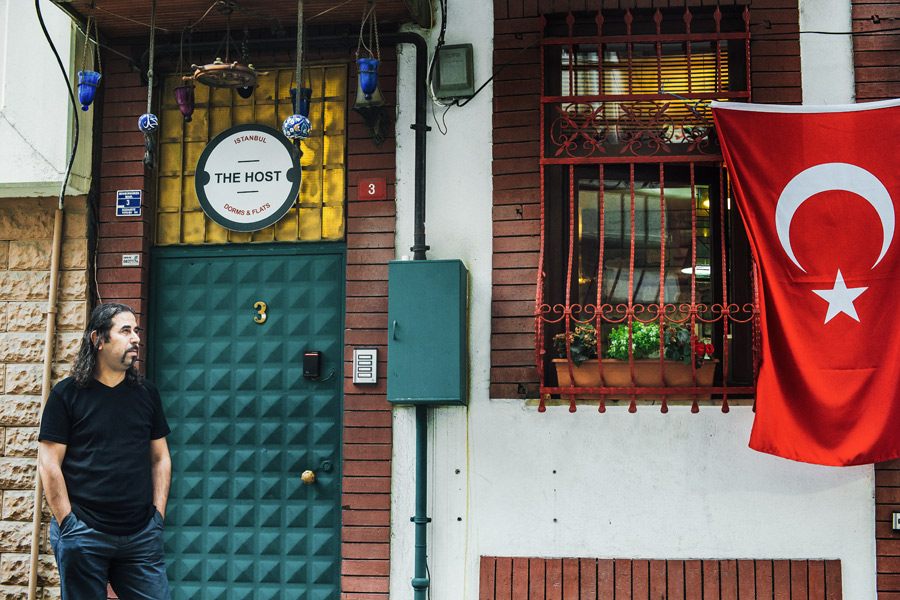

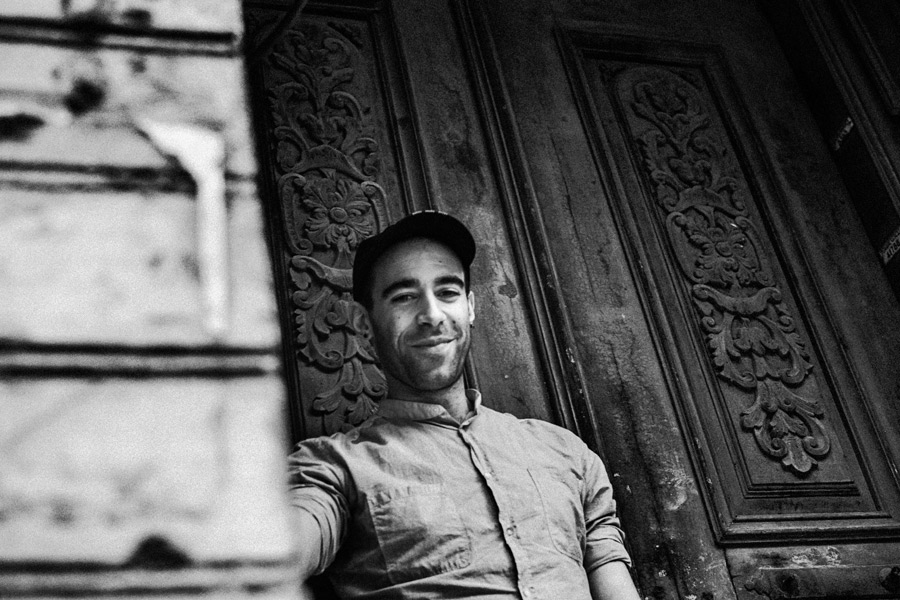
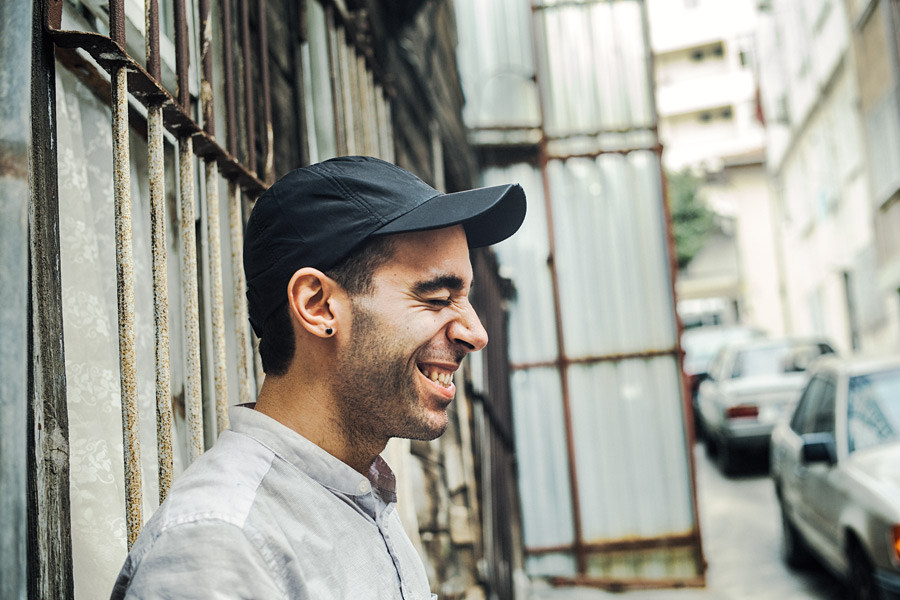


Comments
Trackbacks and Pingbacks
Istanbul (Oktober 2015) › Antje Kröger | Fotokünstlerin
[…] Next post → […]